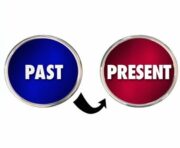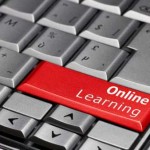Mastering Leadership – Workshop 1 (Key Principles)

The Appleton Greene Corporate Training Program (CTP) for Mastering Leadership is provided by Ms. Tencate Certified Learning Provider (CLP). Program Specifications: Monthly cost USD$2,500.00; Monthly Workshops 6 hours; Monthly Support 4 hours; Program Duration 12 months; Program orders subject to ongoing availability.
If you would like to view the Client Information Hub (CIH) for this program, please Click Here
Learning Provider Profile
With a rich tapestry of leadership spanning over 20 years across government, for-profit, and non-profit sectors, Ms. Tencate stands as a uniquely qualified expert in leadership development. Her illustrious career includes key roles in the U.S. Senate, a successful 16-year tenure as the CEO of a leading healthcare consulting firm, and active participation in executive teams within various organizations.
In the realm of leadership development, Ms. Tencate has carved a distinct niche. For more than two decades, she has provided expert coaching and consultation to CEOs and executives in global healthcare entities, including hospital and healthcare systems, pharmaceuticals, biotechnology and life sciences, medical device, physician groups, and health plans. In addition, she has worked closely with specialty medical societies and healthcare trade associations nationwide.
What sets Ms. Tencate apart is not only her extensive and varied leadership background but also her decades-long experience in coaching and consulting. This unique combination brings a fresh perspective and a nuanced approach to leadership. Armed with a master’s in public health and 25 years of experience in the healthcare industry, Ms. Tencate effortlessly combines her leadership acumen with a profound understanding of the challenges and opportunities faced by healthcare leaders. Her guidance and insights prove invaluable in navigating the complexities of leadership within the dynamic healthcare landscape.
MOST Analysis
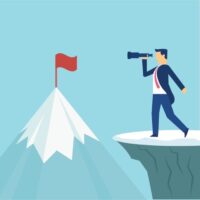
Mission Statement
In this inaugural workshop titled “Key Principles,” our mission is to embark on a comprehensive journey into the heart of leadership, laying a foundational understanding that will serve as the cornerstone for all subsequent learning. Our goal is to demystify leadership by delving into its core definitions, exploring the rich tapestry of its history, and examining the evolution of leadership theories that respond to the complexities of the modern world. This workshop offers a dynamic learning environment where leadership professionals can critically engage with various leadership styles and approaches, understand the nuanced dynamics of power and influence, and appreciate the importance of ethics and values in shaping effective and respected leaders.
This workshop aims to equip participants with the knowledge and skills necessary to navigate the multifaceted landscape of leadership, by fostering an appreciation for the interplay between leadership and organizational culture, and by highlighting the critical role of strategic leadership in driving innovation and change. Furthermore, this workshop is designed to inspire a deep reflection on leader-follower dynamics, the challenges and opportunities presented by adaptive leadership, and the undeniable importance of personal growth, learning, and development in the pursuit of leadership excellence.
This workshop is designed to ignite a transformation within each participant, encouraging not just the acquisition of knowledge but the cultivation of wisdom and insight that can only come from a holistic understanding of leadership principles. We endeavor to create leaders who are not only equipped to lead with integrity, agility, and vision in a rapidly changing environment but who are also inspired to foster environments where continuous learning and development flourish, benefiting individuals, organizations, and communities alike.
In “Key Principles,” we lay the groundwork for a transformative leadership development experience, one that acknowledges the past, engages with the present, and prepares for the future. The workshop guides participants on a journey that goes beyond conventional training, towards a deeper, more profound understanding of what it truly means to lead and make a difference in today’s world.

Objectives
01. Defining Leadership: Establish a foundational understanding of leadership versus management and underscore the critical importance of foundational leadership principles for professional excellence and organizational success.
02. Historical Perspectives: Illuminate the evolution of leadership through the exploration of key historical figures and events, emphasizing the enduring relevance of past leadership theories in contemporary practice.
03. Leadership Evolution: Examine the transformation of leadership practices over time, how they apply in different contexts and influenced modern theories today.
04. Styles and Approaches: Identify and analyze various leadership styles and approaches, facilitating a deeper understanding of their impact on organizational success.
05. Power and Influence: Explore the ethical dimensions of power and influence within leadership, offering strategies for wielding influence responsibly and ethically to achieve positive organizational outcomes.
06. Ethics and Values: Emphasize the non-negotiable nature of ethics and values in leadership, demonstrating their role in building trust, credibility, and fostering a culture of integrity and accountability.
07. Organizational Culture: Examine the symbiotic relationship between leadership and organizational culture, highlighting strategies for leaders to cultivate a positive, inclusive, and empowering workplace environment.
08. Strategic Leadership: Discover the essence of strategic leadership and its significance in navigating today’s fast-paced world, focusing on vision, planning, and execution of strategies for innovation and change.
09. Leader-Follower Dynamics: Delve into the dynamics between leaders and followers, exploring the impact of effective followership and the qualities that define successful leader-follower relationships.
10. Adaptive Leadership: Address the challenges and opportunities of leadership in a rapidly changing environment, emphasizing the importance of utilizing specific skills that support and promote positive change.
11. Learning and Development: Highlight the importance of fostering a culture of continuous learning and development, showcasing how it contributes to organizational resilience, innovation, and personal growth.
12. Personal Development: Focus on the impact of personal growth on professional leadership, offering practical tools and strategies for leaders to continuously evolve and enhance their leadership soft skills and growth areas.

Strategies
01. Defining Leadership: Self-reflection and assessment of leadership and management responsibilities within a participant’s role.
02. Historical Perspectives: Connecting the wisdom of past leaders and theories with today’s leadership challenges through group exercises.
03. Leadership Evolution: Exploring and discussing leadership practices and their application to current leadership challenges.
04. Styles and Approaches: Assigning and applying leadership styles to real-world business scenarios, evaluating for fit and effectiveness.
05. Power and Influence: Identifying and reflecting on the types of power used in the participant’s current roles.
06. Ethics and Values: Sharpening understanding and application by assigning ethical leadership principles to specific business dilemmas.
07. Organizational Culture: Identifying misalignments in teams and organizations and assessing each participant’s personal impact on their own team or organization.
08. Strategic Leadership: Developing a vision statement that aligns with each participant’s team strengths, values and goals.
09. Leader-Follower Dynamics: Identify and assess leader-follower dynamics within each participant’s team.
10. Adaptive Leadership: Testing application of adaptive leadership skills in simulated environments of businesses undergoing significant change.
11. Learning and Development: Identify growth, learning and development that has been initiated in each participant’s own team or organization, and the impact.
12. Personal Development: Perform an assessment of leadership soft skills and personal growth strategies, including the development of action plans for enhancing both.
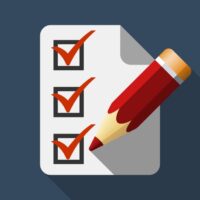
Tasks
01. Defining Leadership: Identify 1-3 areas within your leadership and management responsibilities that you would like to improve, balance more strategically, or incorporate more fully, and list the specific actions you can take to do so.
02. Historical Perspectives: Pick one historical leader you admire, and list three leadership qualities that inspire you and why.
03. Leadership Evolution: Choose one type of leadership practice that applies most to your current role and one that does not – summarize why or why not. 04. Styles and Approaches: Reflect on a recent leadership challenge you faced and identify which leadership style you used to address it.
05. Power and Influence: Describe a scenario where you needed to use influence to achieve a goal and evaluate which source of power was most effective.
06. Ethics and Values: Write a short reflection on a time when one or more of your ethical principles were tested in a leadership context, and how you responded.
07. Organizational Culture: Identify one cultural aspect of your organization that aligns with your leadership style and one that conflicts, noting ideas for bridging the gaps.
08. Strategic Leadership: Choose one of the eight elements of strategic leadership that you’d like to strengthen, and briefly outline steps to implement this.
09. Leader-Follower Dynamics: Analyze your approach to the five successful traits of leader-follower relationships and identify which ones you do well and which ones need improvement.
10. Adaptive Leadership: Think of a change in your work environment (past, recent, or upcoming) and note down two ways you have helped or can help your team adapt to the change more smoothly.
11. Learning and Development: Identify a learning and development initiative you feel is important and timely for your team or organization, listing specific challenges or obstacles you may encounter, and how to overcome them.12. Personal Development: Map out specific resources (books, programs, in-house trainings, etc.) that you can employ to improve one leadership soft skill and one personal growth area.
Introduction

Welcome to the threshold of transformation and insight – the inaugural workshop of our leadership development program that sets the stage for a comprehensive exploration of the key principles and foundational concepts that underpin dynamic leadership. This workshop is meticulously designed to set a solid foundation for the workshops ahead. Through insightful discussions and engaging activities, participants will learn the critical distinctions between leadership and management, and the importance of grasping foundational leadership principles for professional success.
We will weave through the historical tapestry that has sculpted leadership’s study and practice over millennia. Our exploratory path will take us through the ages, where we will encounter the pivotal figures and seminal studies that have shaped contemporary leadership paradigms. Transitioning seamlessly into the present, we embark on an examination of current trends and practices in leadership.
Throughout the workshop, participants will have the opportunity to reflect on their own leadership styles and preferences, identifying areas for growth and development. This introspective process is complemented by a comprehensive look into leadership’s power dynamics—its sources, ethical implications, and strategies for wielding influence with integrity. We then take a deep dive into the core principles of ethical leadership, underscoring its crucial role in establishing trust, credibility, and fostering a culture of positivity and inclusivity within organizations.
As the workshop draws to a close, you will find yourself enlightened with a plethora of practical tools, resources, and insights via an engaging and immersive experience that combines thoughtful presentations, interactive discussions, and hands-on activities. This workshop isn’t just a learning opportunity; it is a transformative episode that lays the groundwork for participants to excel as leaders in their respective fields.
“In a world of constant change, the fundamentals are more important than ever.”
– Jim Collins
Purpose Beyond Education
The primary purpose of this workshop extends beyond the conventional bounds of education. Its purpose is twofold. First, it aims to equip participants with a deep understanding of leadership principles that are universally recognized as markers of effective leadership. Second, it seeks to empower leaders to apply these principles in a way that is authentic to their personal style and aligned with their organizational culture. It aims to instigate a profound transformation within participants, encouraging a shift from traditional leadership paradigms to a more nuanced and effective leadership model.
By tackling formative questions in an engaging and interactive manner, we can foster a profound personal and professional metamorphosis among participants.
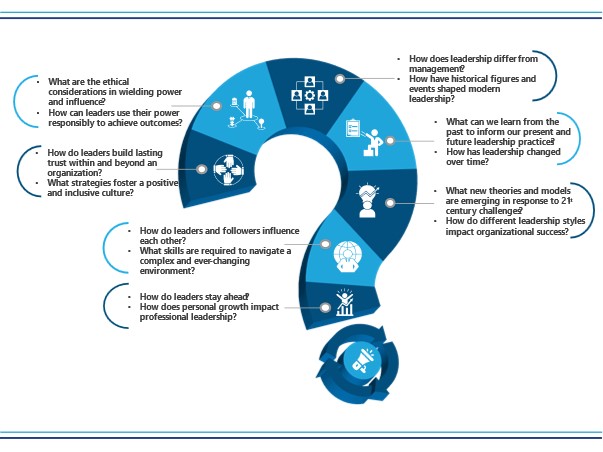
By diving into the core principles of leadership through the lens of thought-provoking and insightful question, the workshop cultivates fertile ground for self-discovery, challenging leaders to introspect, question, and ultimately refine their leadership identity. The aspiration is for each leader to emerge from this experience with a renewed sense of purpose, clarity of vision, and an enhanced ability to effect change, thereby contributing to a legacy of positive impact.
In this workshop, leaders are not only informed but fundamentally changed, equipped with the insights and tools necessary to navigate the complexities of contemporary leadership. It goes beyond acquiring information; it’s about internalizing a mindset that values, understands, and incorporates the core principles of leadership that have been foundational throughout history.
The Importance of Leadership Principles
We embark on a journey not just to explore what leadership entails but to deeply understand the pillars that hold it up. The quest for mastery is both ancient and urgently contemporary.
This workshop serves as a vital first stepping stone in leadership development, addressing a significant gap in traditional leadership training. Too often, the core principles, foundational concepts and historical perspectives of leadership are assumed to be understood, with little formal education provided on their nuances. Yet, understanding these pieces is critical for any leader seeking to navigate the complex landscape of modern organizations effectively.
At the heart of every decision, every strategy, and every interaction lies a principle or foundational concept. Understanding them allows leaders to make informed choices, build stronger teams, and foster a culture of excellence. But what happens when this is overlooked? Leadership without a solid foundation can lead to misaligned goals, ethical lapses, and a lack of trust from within the organization.
Understanding these principles and foundational concepts requires delving into the essence of what leadership truly entails. It equips leaders with the knowledge to lead with intention, ethics, and effectiveness. It helps leaders not only to inspire and guide but also to adapt and grow alongside their organizations. Each principle, from defining leadership to personal development, offers a lens through which to view challenges and opportunities, making them indispensable tools for any leader.
Leadership is more than the act of guiding or directing; it’s about inspiring trust, fostering innovation, and nurturing an environment conducive to growth and resilience. The principles of leadership serve as the compass that guides leaders through the complexities of human dynamics, organizational challenges, and the ever-changing global landscape.
The Fragmentation of Leadership Education
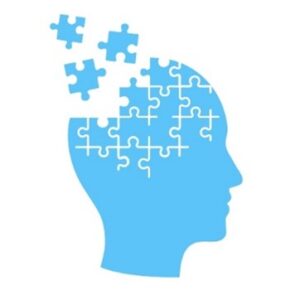
In many settings, leadership education is fragmented, focusing on isolated skills or theories without integrating them into a cohesive whole. It often resembles a patchwork quilt – a collection of disparate skills and theories taught in isolation, lacking coherence and context. This piecemeal approach can leave aspiring leaders with gaps in their understanding and application of essential leadership qualities. They are given a toolbox full of tools but no blueprint on how to effectively use them in concert. This first workshop seeks to bridge these gaps by providing a comprehensive framework that ties together the diverse strands of leadership thought and practice, providing a holistic view that is both rare and invaluable in leadership development.
By starting with a comprehensive review, participants gain a deep and nuanced understanding of leadership as a multifaceted discipline. By presenting leadership principles within a structured, integrated framework, leaders are better positioned to understand how different aspects of leadership interconnect and influence one another. This holistic understanding is crucial for applying leadership principles effectively in real-world scenarios, where the ability to think critically and adaptively is paramount.
By moving beyond the superficial treatment of leadership skills to a more profound exploration of underlying principles and foundational concepts, we can transform the way leaders perceive and enact leadership. This workshop aims to foster a generation of leaders who are not just proficient in technical aspects of leadership but are also thoughtful, ethical, and innovative. The ultimate aim is to empower leaders to navigate the complexities of the modern world with agility, foresight, and a deep sense of purpose.
An Integrated Approach
The need for an integrated approach to leadership education has never been more pressing. In an era marked by rapid technological advancement, global interconnectedness, and complex socio-economic challenges, leaders require a robust, adaptable framework of principles to guide their decisions and actions. The workshop’s comprehensive curriculum is designed to address this need, offering insights into both timeless leadership philosophies and contemporary models that are responsive to today’s dynamic environment.
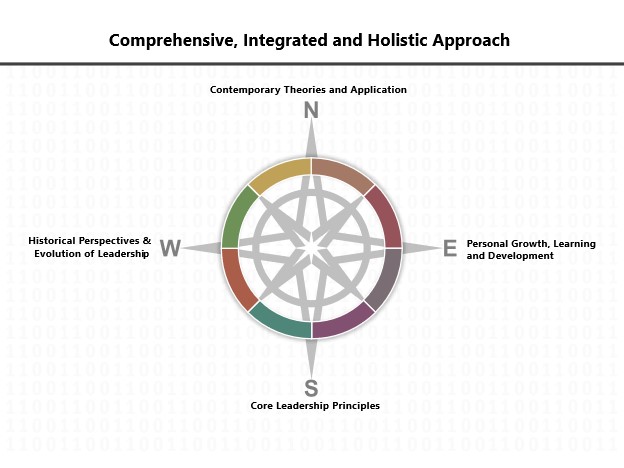
This workshop draws upon a wide range of case studies and historical examples, from transformational leaders who leveraged moral authority and non-violent resistance to lead social change, to modern executives who navigate the intricacies of digital transformation and corporate social responsibility. Each example underscores the utility of a cohesive leadership framework that embraces the full spectrum of leadership principles.
This cohesive approach is not just an educational methodology; it’s a commitment to cultivating leaders who are capable of seeing the bigger picture, connecting the dots between different leadership domains, and crafting innovative solutions to complex problems. By offering a panoramic view of leadership principles, woven into a coherent and comprehensive framework, this workshop sets the stage for profound personal and professional growth, preparing leaders to make a meaningful impact in their organizations and beyond.
Learning from the Past
The study of leadership principles through the lens of history is not merely an academic exercise; it is a vital exploration that grounds our understanding of leadership in the rich soil of human experience. We dive deeper into the rationale behind learning leadership principles from historical perspectives, emphasizing their timeless relevance and the wisdom they impart for navigating contemporary leadership challenges.
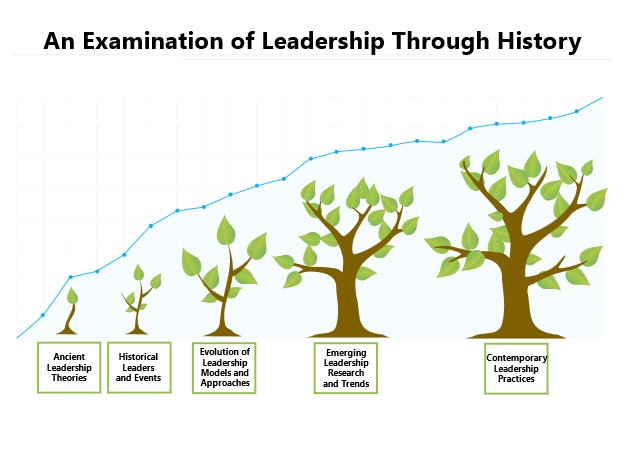
The primary purpose is to extract timeless lessons that transcend specific eras or contexts. History provides a vast array of scenarios where leadership was tested under extreme pressures, through transformative changes, and in the pursuit of groundbreaking visions. Studying these instances helps current and future leaders appreciate the diversity of leadership styles and the myriad ways successful leadership can manifest.
The goal is to equip today’s leaders with a more profound sense of perspective, resilience, and adaptability. By understanding how leaders of the past navigated their challenges, made strategic decisions, and inspired collective action, we can derive valuable insights for leading in an increasingly complex and interconnected world. Historical examples serve as both warnings and guides, offering clarity on the consequences of certain leadership behaviors and strategies, while also illuminating paths that lead to lasting impact and success.
In an era characterized by rapid change and uncertainty, the lessons gleaned from history help modern leaders understand that certain leadership qualities—such as integrity, vision, empathy, and courage—have always been, and will continue to be, central to effective leadership. These principles act as a compass, providing direction and purpose amidst the flux of contemporary challenges.
While the contexts and technologies have evolved, the core challenges of leadership—such as making difficult decisions, dealing with opposition, and inspiring a shared vision—remain constant. Leaders today can draw on historical examples to navigate contemporary issues, from managing organizational change to addressing global crises. For instance, the strategic acumen of leaders throughout history who have navigated political turmoil and established peace and prosperity, offer insights into strategic decision-making, diplomacy, and the cultivation of alliances that are relevant for today’s leaders in both political and corporate arenas.
Studying the leadership principles that have guided successful leaders through history is not just about looking back; it’s about moving forward with a deeper understanding and a richer toolkit of strategies and perspectives. The lessons of the past, when applied with discernment and adaptability, can inform and inspire the leaders of today and tomorrow. By revisiting key figures and epochs, we not only honor the legacy of those who have shaped our present but also arm ourselves with the knowledge to lead more effectively in the future, ensuring that the core tenets of visionary leadership continue to endure and evolve.
Leadership Evolution in Theory and Practice
The dynamic nature of leadership, characterized by its evolution alongside societal shifts, technological advancements, and cultural transformations, underscores the imperative for leaders to continuously learn and adapt. The journey through the evolution of leadership theories and practices offers more than historical insight; it provides leaders with a roadmap for navigating the complexities of the modern world while anticipating the challenges and opportunities that lie ahead.

The primary purpose of studying the evolution of leadership is to recognize that effective leadership is contextual and influenced by a myriad of factors external to the leader themselves. This exploration allows leaders to see beyond the confines of their current environment and understand the forces that have shaped leadership thought over time. It highlights the importance of adaptability and the need for leaders to be lifelong learners who are not only reactive but also proactive in the face of change.
It is critical to cultivate a generation of leaders who are not only aware of the historical trajectories of leadership thought but are also equipped to apply this knowledge in crafting innovative solutions to contemporary challenges. By understanding how leadership theories have responded to different eras, leaders can better appreciate the diverse range of approaches available to them and understand how these strategies were implemented in varying contexts.
In an era marked by rapid technological change, globalization, and evolving societal expectations, the need for agile leadership has never been more pronounced. The accelerating pace of innovation and the increasing complexity of global issues require leaders who can think critically, embrace ambiguity, and lead with foresight. Studying the evolution of leadership helps leaders develop these competencies, making them more effective in guiding their organizations through uncharted territories.
The rise of the digital age has ushered in a new era of leadership characterized by openness, collaboration, and innovation. Understanding the evolution of leadership principles empowers today’s leaders to draw on a rich repository of knowledge and adapt these lessons to the needs of the present. For instance, the servant leadership model, which emphasizes the leader’s role in serving their team, has found renewed relevance in today’s emphasis on employee well-being and organizational culture.
The study of the evolution of leadership is not just an academic endeavor; it is a critical exercise in preparing leaders to navigate the future with confidence and insight. By charting the development of leadership theories and practices over time, leaders gain the agility needed to adapt to change, the wisdom to anticipate future trends, and the versatility to remain effective across diverse settings. This knowledge is indispensable in equipping leaders to meet the demands of the 21st century, ensuring they can lead with vision, adaptability, and an unwavering commitment to progress.
This workshop stands as a gateway to understanding not just the mechanics but the soul of leadership, designed to cater to those poised to leave an indelible mark on their teams, organizations, and the broader tapestry of society.
A Comprehensive First Step

In today’s fast-paced and intricately connected world, the demands on leaders are unprecedented in both scope and complexity. This workshop addresses the acute need for a foundational yet comprehensive first step that prepares leaders to meet these challenges head-on. By offering a holistic overview of leadership principles, it lays the groundwork for deeper exploration and specialization in subsequent phases of a leader’s development journey.
Consider the story of a leader who, through learning the principles of empathetic leadership within the workshop, revolutionized their approach to team management, leading to increased morale, creativity, and productivity. Or the executive who, inspired by lessons on ethical leadership, spearheaded initiatives that not only boosted their company’s bottom line but also significantly contributed to social and environmental causes, setting new industry standards for corporate responsibility.
The “Key Principles” workshop is designed to be a catalyst for this kind of transformation. It encourages leaders to reevaluate their assumptions, broaden their perspectives, and embrace innovative approaches to leadership. Through a combination of theoretical insights, practical exercises, and reflective practices, participants are guided on a journey of growth that impacts not just their professional lives but also their personal development.
Taking the first step with the “Key Principles” workshop is more than beginning another training program; it’s embarking on a journey of transformation. It’s about committing to a process of continual growth and striving for excellence in leadership. For leaders ready to make a meaningful impact, this workshop offers the knowledge, skills, and insights necessary to navigate the complexities of leadership with confidence and integrity. As such, it stands as an indispensable ally for anyone dedicated to refining their leadership approach, inspiring their teams, and steering their organizations toward a brighter, more sustainable future.

Case Study: Harvard’s Model of Excellence: Incorporating Foundational Leadership Concepts and Principles
Harvard University, particularly through its Harvard Business School (HBS) and the Harvard Kennedy School (HKS), offers a compelling real-life example of an institution that intricately weaves leadership principles, the evolution of leadership, historical perspectives, and similar foundational concepts into its curriculum. These elements are central to Harvard’s approach to cultivating the next generation of leaders across various sectors, including business, government, and nonprofit organizations.
While it is noted and well understood that Harvard University’s model stands as an exemplary approach to leadership development, it is recognized that it is not accessible to most. The financial and time commitments required to enroll in and complete such comprehensive programs at an Ivy League institution place it out of reach for many aspiring leaders and organizations. Despite these constraints, however, it is still worth noting that Harvard’s integrated approach serves as a valuable representation of how leadership development can be enriched through a more comprehensive methodology. It underscores the importance of not just understanding current leadership practices but also connecting with the historical roots and evolving theories that shape effective leadership today.
Harvard’s commitment to weaving these foundational elements into its educational framework serves not only as validation of their importance but also as a beacon for other organizations, academic or otherwise, to follow suit. The initiative taken by Harvard illuminates the understanding that leadership transcends mere administrative or managerial capabilities. It is an art and science that benefits immensely from a deep dive into the lessons of the past, the adaptability fostered by understanding leadership’s evolution, and the personal growth that is essential for visionary leadership.
We explore how Harvard’s dedication to integrating these comprehensive leadership components into its programs is not just an enhancement of its curriculum but a necessary evolution in preparing leaders who are equipped to navigate the complexities of the 21st century. Through this approach, Harvard affirms the critical need for leaders who are not only knowledgeable about current trends and practices but who are also grounded in the timeless principles that have guided great leaders through history. This forward-thinking educational philosophy signifies a pivotal shift towards nurturing leaders who are prepared to contribute positively to their fields, embody ethical standards, and drive meaningful change in an ever-evolving world.
Curriculum Integration
• Foundational Leadership Principles: Courses across HBS and HKS start with the bedrock of leadership principles, delving into theories of management, ethical leadership, and organizational behavior. These foundational courses equip students with a broad understanding of what leadership entails in various contexts.
• Historical Perspectives: Harvard’s curriculum often incorporates case studies and analyses of historical leaders and their decision-making processes. This approach allows students to glean insights from past successes and failures, understanding the contextual forces that have shaped leadership across ages.
• Evolution of Leadership: Both HBS and HKS regularly update their curricula to reflect the latest research and theories in leadership. This includes exploring contemporary leadership models such as transformational, servant, and adaptive leadership, ensuring students are well-versed in current trends and practices.
• Personal Growth and Development: Personal development is a critical component of Harvard’s leadership education. Courses and extracurricular activities are designed to foster self-awareness, emotional intelligence, and a growth mindset, encouraging students to reflect on their values, goals, and leadership style.
• Learning and Development: Harvard emphasizes continuous learning and development through its rigorous academic programs, leadership labs, and experiential learning opportunities. Students engage in simulations, fieldwork, and internships that challenge them to apply their learning in real-world settings.
Harvard University exemplifies how integrating leadership principles, historical insights, and personal growth into a comprehensive curriculum plays an integral role in leadership development. While the opportunity to experience this level of education is highly valued, it highlights the challenge for leadership professionals and organizations in accessing similar depth and quality of leadership development outside such esteemed academic settings. Harvard’s model underscores the importance of seeking innovative and accessible ways to bring a comprehensive leadership approach to a broader audience.
This is the primary focus of this first workshop on “Key Principles”, which takes the broader comprehensive and foundational platform, and offers it more easily accessible and absorbable pieces for leadership professionals to consume in a single workshop.
Executive Summary

Chapter 1: Defining Leadership
Leadership is at the core of organizational success. It is more than just a title – it’s the driving force that propels businesses, communities, and teams toward greatness. Understanding the definition of leadership and its significance within organizational contexts is a cornerstone of leadership development. By differentiating between leadership and management, you can harness the unique roles they play in steering the course of organizations and guiding teams toward success.
Moreover, recognizing the pivotal importance of understanding foundational leadership principles is essential. These principles not only empower you to navigate challenges with confidence but also lay the groundwork for creating a culture of excellence and inspiring lasting change. It is through understanding and embracing these foundational leadership principles that you can put yourself on a trajectory of continued growth, setting the stage for your leadership journey ahead.
Chapter 2: Historical Perspectives
Step into the past and unearth the rich tapestry of leadership’s evolution. From the ancient rulers who shaped empires to modern visionaries who transformed industries, we’ll journey through history to understand how leadership theories and concepts have emerged and evolved over time.
Understanding historical perspectives and theories in leadership is crucial for leaders today as it provides a roadmap for effective leadership in contemporary settings. By studying the legacies of past leaders and the evolution of leadership theories, you will gain invaluable insights that inform your decision-making, inspire innovation, and shape your leadership style. Moreover, historical perspectives show timeless leadership ideas that have weathered the ages, offering profound wisdom that today’s leaders can incorporate into their strategies for navigating the complex challenges of the modern business landscape.
Delving into historical contexts also fosters a deep understanding of how leadership has adapted to societal, technological, and economic changes, offering valuable lessons on resilience, adaptability, and forward-thinking strategies. We will unravel the depths of trait theory, behavioral theory, and contingency theory, tracing their roots and relevance in today’s dynamic world. Ultimately, these perspectives not only serve as a source of inspiration and guidance but also provide a solid foundation to forge your own path, armed with the wisdom of the past to drive future success.
In the words of Winston Churchill, “The farther backward you can look, the farther forward you are likely to see.” As we decipher the threads of history, we will ponder how the lessons of the past inform our present leadership practices.

Chapter 3: Leadership Evolution
How do the diverse models and philosophies throughout history intersect with leadership today? What meaning and influence do they have in the present? We will answer these questions and more as we embark on a journey through the annals of leadership evolution.
Traverse the landscape of leadership thought and practice, exploring its transformation from antiquity to modernity. With a keen eye on influential figures and groundbreaking studies, we’ll uncover how their contributions have sculpted the very essence of contemporary leadership thinking. From the enigmatic allure of transformational leadership to the pragmatic allure of transactional leadership, and the altruistic appeal of servant leadership, we’ll dissect emerging theories and trends that shape the realm of leadership today.
By thoroughly examining the evolution of leadership thought and practice, you will gain a deeper understanding of the dynamic and ever-changing landscape of leadership. This exploration will provide you with the insights to infuse your leadership style with the wisdom and innovation that stem from centuries of leadership evolution.
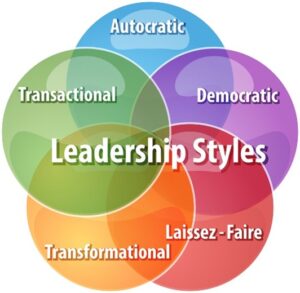
Chapter 4: Style and Approaches
From the authoritative stance of autocratic leadership to the collaborative essence of democratic leadership, and the adaptable nature of situational leadership, we’ll explore a diverse array of leadership styles and their distinctive characteristics. Uncover the nuances of each approach, examining their effectiveness, strengths, and weaknesses across various organizational contexts.
In addition, this workshop will guide you in identifying your personal leadership style preferences, allowing you to refine and tailor your leadership approach. By fostering a deeper understanding of different leadership styles, you can cultivate an authentic and impactful leadership method. As we navigate this terrain, you will gain a deeper understanding of what style resonates with you and how it shapes your leadership philosophy, as well as how understanding different leadership styles enhances your effectiveness as a leader.

Chapter 5: Power and Influence
In a world where power and influence often walk hand in hand, ethical leadership stands as a beacon of integrity and responsibility. As leaders navigate the complexities of their roles, ethical leadership emerges as an essential guiding principle, anchoring their decisions, actions, and relationships in integrity and accountability. It is against this backdrop that this workshop is based, dedicated to understanding the intricate dynamics of ethical leadership and the profound impact it has within organizational realms.
Imagine a leader who, through a blend of expertise, credibility, and unwavering ethical standards, cultivates admiration and respect, harnessing the potent force of referent power to steer their team toward collective goals and shared success. This compelling scenario serves as the canvas upon which we will paint the portrait of ethical leadership’s significance in today’s professional sphere. This workshop will serve as a bridge to understanding and navigating the complexities of leadership dynamics, offering a comprehensive exploration of the diverse sources of power and influence in a leadership context.
From the authoritative assertion of coercive power to the magnetic allure of referent power, we will dissect each element, examining its ethical implications and offering strategies to effectively leverage influence with an unwavering commitment to ethical conduct. You will learn the art of harnessing influence ethically, ensuring a positive impact on both individuals and organizations and laying the foundation for a culture steeped in integrity and authenticity. It will transcend mere academic discourse, providing actionable insights and best practices that you can readily integrate into your leadership approach, enriching your capacity to lead with ethical clarity and authenticity in an evolving professional landscape.
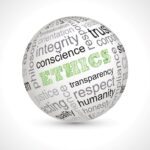
Chapter 6: Ethics and Values
Ethical leadership stands as a guiding light, fostering trust, credibility, and unwavering respect. Consider the renowned leader, Mahatma Gandhi, whose commitment to nonviolence and integrity propelled a nation towards liberation. His words echo through time, “The best way to find yourself is to lose yourself in the service of others,” encapsulating the essence of ethical leadership. In this thought-provoking journey, we will embark on a deep exploration of the significance of ethical leadership in today’s ever-evolving organizational landscape.
As leaders, we are faced with a myriad of ethical challenges and decisions that shape the course of our organizations and the lives of our team members. How do we navigate these complexities with unwavering integrity, transparency, and accountability? What are the inherent ethical principles that define our leadership approach, and how can we harness these principles to inspire positive change and foster a culture of ethics within our organizations? Through engaging case studies and thought-provoking scenarios, we will draw insights from real-world examples, sharpening our ethical decision-making prowess and enriching our leadership acumen.
As leaders, it is our responsibility to pave the path toward a future where ethical leadership reigns supreme, transforming organizations and inspiring positive change, and this workshop is a foundational step in that direction.
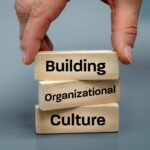
Chapter 7: Organizational Culture
How does your leadership style contribute to your organization’s culture? What values do you prioritize, and how do they manifest in your leadership approach? How can leaders effectively shape a culture that aligns with the organization’s goals and values?
In the realm of organizational leadership, the dynamic interplay between leadership and organizational culture stands as a linchpin that can significantly influence an organization’s success. Leaders hold a pivotal role in shaping the fabric of organizational culture, and their influence permeates every aspect of the workplace environment. This immersive workshop offers a deep dive into the fundamental relationship between leadership and organizational culture, providing invaluable insights into how leaders craft and impact the values, norms, and behaviors that define a workplace.
During this session, we will explore strategic and effective leadership strategies that are instrumental in shaping a positive, inclusive, and dynamic organizational culture. By embracing the pivotal role that leaders play in guiding and fostering a workplace environment that cherishes diversity, fosters collaboration, and inspires collective achievement, this workshop provides a blueprint for cultivating a vibrant and resilient organizational culture that resonates with the organization’s mission and values.
Ultimately, this session will help set the foundation to shape and support a leadership approach that fuels organizational success and creates a workplace environment that empowers every team member to thrive and contribute positively to the organizational mission.

Chapter 8: Strategic Leadership
Uncover the heartbeat of strategic leadership through this session, designed to immerse you in the practical elements of leading with vision, planning thoughtfully, and executing with agility. Our journey will unveil the role of strategic leadership as the cornerstone of organizational innovation and lasting success. By traversing the essentials of strategic leadership, we embark on an exploration that empowers leaders to navigate challenges, foster growth, and drive meaningful change within their organizations.
The workshop will introduce the concept of strategic leadership and its far-reaching significance, underscoring the pivotal role of strategic visioning, planning, and execution. Delve into the elements that form the essential building blocks for driving innovation, growth, and change within organizations, and unveil the key practices that propel organizations forward. We’ll address pressing questions, including how strategic leadership shapes organizations today, and what strategies help leaders confront uncertainties and embrace opportunities for progress. As we demystify the essentials of strategic leadership, our collective goal is to equip you with a profound understanding of strategic leadership, enabling you to emerge as a transformative leader capable of steering your organization to new dimensions of success through strategic visioning, planning, and execution.

Chapter 9: Leader-Follower Dynamics
Dive into the intriguing world of leader-follower dynamics and uncover the secrets to successful relationships that drive organizational success. In this enlightening workshop, we’ll redefine the very essence of leader-follower relationships and shed light on their profound significance. Together, we’ll explore the intricacies of follower behavior and dissect the various types of followers – from active and independent to passive and dependent – understanding how these dynamics deeply impact the fabric of any organization.
We explore real-world examples of leader-follower dynamics in action, drawing insights from both successful and unsuccessful relationships. By analyzing these case studies, we’ll uncover the critical lessons that can transform your approach to leadership. This workshop is not just about understanding the dynamics and roles of leaders and followers, but about discovering the art of fostering strong, harmonious relationships that drive performance and success. Engage in thought-provoking discussions and activities to uncover the secrets behind effective collaboration and harness the power of leader-follower synergy. This is an opportunity to deepen understanding of leader-follower dynamics and the important, yet often overlooked, role it plays in leadership.
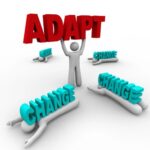
Chapter 10: Adaptive Leadership
In today’s fast-paced business environment, leaders must understand the critical importance of navigating challenges and seizing opportunities as they arise. Globalization, technological advancements, and socio-economic shifts significantly impact leadership practices, requiring leaders to adapt and innovate. Moreover, leading change, fostering innovation, and managing uncertainty are essential strategies for thriving in this dynamic landscape. Resilience, adaptability, and agility are no longer just useful traits but have become indispensable competencies for effective leadership in a rapidly evolving world. To excel in this environment, leaders must be ready to embrace change, foster innovative thinking, and cultivate a resilient and adaptable mindset, ensuring their ability to lead their teams and organizations toward continued success. As Charles Darwin famously said, “It is not the strongest of the species that survives, nor the most intelligent, but the one most adaptable to change.”
In this workshop, we will dive into the art of adaptable leadership and uncover the skills to thrive amidst constant change, discovering strategies for leading change, fostering innovation, and navigating uncertainty with resilience, adaptability, and agility.

Chapter 11: Learning and Development
“The growth and development of people is the highest calling of leadership.”
-Harvey S. Firestone
Fostering a culture of continuous learning and growth is pivotal for leaders as it drives innovation, adaptability, and success within teams and organizations. In today’s rapidly evolving business world, standing still means falling behind. Just as athletes train rigorously to stay at the top of their game, leaders must embrace a similar mindset of constant improvement. By prioritizing ongoing development, leaders empower their workforce to stay ahead of the curve, seamlessly adapt to industry shifts, and navigate change effectively. Additionally, a commitment to learning boosts team engagement, satisfaction, and productivity, leading to stronger morale and improved organizational performance. It’s vital for leaders to champion this culture, whether through training programs, mentorship initiatives, or promoting a growth mindset, ensuring their organization’s relevance and prosperity in a competitive landscape.
At GE, former CEO Jack Welch was known for his emphasis on leadership development. By prioritizing leadership growth, GE not only ensured a pipeline of skilled leaders but also fostered a culture of continuous improvement and innovation. In this workshop, we discover the strategies and practices that foster a culture of continuous improvement, providing you with clarity on how to lead your team to new levels of success.

Chapter 12: Personal Development
As the great John Maxwell said, “Personal growth doesn’t just happen – it’s a result of the choices you make. If you want to change your life, change your choices.”
When it comes to personal growth, the power lies squarely in our hands. Every decision we make, every choice we embrace, shapes the trajectory of our lives. It’s about taking deliberate action and making a conscious effort toward change. We all have the ability to steer our life in the direction we desire, simply by making the right choices. So, if you’re seeking transformation, start by transforming your choices. Choose to invest in your development and watch your life expand in ways you never imagined possible.
In this workshop, we offer a roadmap for personal development in your leadership role. Through insightful self-assessment, you’ll gain a deeper understanding of your leadership style, identifying strengths to leverage and areas for growth. Personal development in leadership is about taking ownership of your growth journey. This workshop provides practical tools, resources, and strategies to enhance your leadership qualities, fostering self-awareness, continuous learning, and professional development. It is a culmination of the insights and learning gained throughout the previous 11 sessions in order to craft an invaluable path toward becoming the leader you aspire to be.
Curriculum
Mastering Leadership – Workshop 1 – Key Principles
- Defining Leadership
- Historical Perspectives
- Leadership Evolution
- Style and Approaches
- Power and Influence
- Ethics and Values
- Organizational Culture
- Strategic Leadership
- Leader-Follower Dynamics
- Adaptive Leadership
- Learning and Development
- Personal Development
Distance Learning
Introduction
Welcome to Appleton Greene and thank you for enrolling on the Mastering Leadership corporate training program. You will be learning through our unique facilitation via distance-learning method, which will enable you to practically implement everything that you learn academically. The methods and materials used in your program have been designed and developed to ensure that you derive the maximum benefits and enjoyment possible. We hope that you find the program challenging and fun to do. However, if you have never been a distance-learner before, you may be experiencing some trepidation at the task before you. So we will get you started by giving you some basic information and guidance on how you can make the best use of the modules, how you should manage the materials and what you should be doing as you work through them. This guide is designed to point you in the right direction and help you to become an effective distance-learner. Take a few hours or so to study this guide and your guide to tutorial support for students, while making notes, before you start to study in earnest.
Study environment
You will need to locate a quiet and private place to study, preferably a room where you can easily be isolated from external disturbances or distractions. Make sure the room is well-lit and incorporates a relaxed, pleasant feel. If you can spoil yourself within your study environment, you will have much more of a chance to ensure that you are always in the right frame of mind when you do devote time to study. For example, a nice fire, the ability to play soft soothing background music, soft but effective lighting, perhaps a nice view if possible and a good size desk with a comfortable chair. Make sure that your family know when you are studying and understand your study rules. Your study environment is very important. The ideal situation, if at all possible, is to have a separate study, which can be devoted to you. If this is not possible then you will need to pay a lot more attention to developing and managing your study schedule, because it will affect other people as well as yourself. The better your study environment, the more productive you will be.
Study tools & rules
Try and make sure that your study tools are sufficient and in good working order. You will need to have access to a computer, scanner and printer, with access to the internet. You will need a very comfortable chair, which supports your lower back, and you will need a good filing system. It can be very frustrating if you are spending valuable study time trying to fix study tools that are unreliable, or unsuitable for the task. Make sure that your study tools are up to date. You will also need to consider some study rules. Some of these rules will apply to you and will be intended to help you to be more disciplined about when and how you study. This distance-learning guide will help you and after you have read it you can put some thought into what your study rules should be. You will also need to negotiate some study rules for your family, friends or anyone who lives with you. They too will need to be disciplined in order to ensure that they can support you while you study. It is important to ensure that your family and friends are an integral part of your study team. Having their support and encouragement can prove to be a crucial contribution to your successful completion of the program. Involve them in as much as you can.
Successful distance-learning
Distance-learners are freed from the necessity of attending regular classes or workshops, since they can study in their own way, at their own pace and for their own purposes. But unlike traditional internal training courses, it is the student’s responsibility, with a distance-learning program, to ensure that they manage their own study contribution. This requires strong self-discipline and self-motivation skills and there must be a clear will to succeed. Those students who are used to managing themselves, are good at managing others and who enjoy working in isolation, are more likely to be good distance-learners. It is also important to be aware of the main reasons why you are studying and of the main objectives that you are hoping to achieve as a result. You will need to remind yourself of these objectives at times when you need to motivate yourself. Never lose sight of your long-term goals and your short-term objectives. There is nobody available here to pamper you, or to look after you, or to spoon-feed you with information, so you will need to find ways to encourage and appreciate yourself while you are studying. Make sure that you chart your study progress, so that you can be sure of your achievements and re-evaluate your goals and objectives regularly.
Self-assessment
Appleton Greene training programs are in all cases post-graduate programs. Consequently, you should already have obtained a business-related degree and be an experienced learner. You should therefore already be aware of your study strengths and weaknesses. For example, which time of the day are you at your most productive? Are you a lark or an owl? What study methods do you respond to the most? Are you a consistent learner? How do you discipline yourself? How do you ensure that you enjoy yourself while studying? It is important to understand yourself as a learner and so some self-assessment early on will be necessary if you are to apply yourself correctly. Perform a SWOT analysis on yourself as a student. List your internal strengths and weaknesses as a student and your external opportunities and threats. This will help you later on when you are creating a study plan. You can then incorporate features within your study plan that can ensure that you are playing to your strengths, while compensating for your weaknesses. You can also ensure that you make the most of your opportunities, while avoiding the potential threats to your success.
Accepting responsibility as a student
Training programs invariably require a significant investment, both in terms of what they cost and in the time that you need to contribute to study and the responsibility for successful completion of training programs rests entirely with the student. This is never more apparent than when a student is learning via distance-learning. Accepting responsibility as a student is an important step towards ensuring that you can successfully complete your training program. It is easy to instantly blame other people or factors when things go wrong. But the fact of the matter is that if a failure is your failure, then you have the power to do something about it, it is entirely in your own hands. If it is always someone else’s failure, then you are powerless to do anything about it. All students study in entirely different ways, this is because we are all individuals and what is right for one student, is not necessarily right for another. In order to succeed, you will have to accept personal responsibility for finding a way to plan, implement and manage a personal study plan that works for you. If you do not succeed, you only have yourself to blame.
Planning
By far the most critical contribution to stress, is the feeling of not being in control. In the absence of planning we tend to be reactive and can stumble from pillar to post in the hope that things will turn out fine in the end. Invariably they don’t! In order to be in control, we need to have firm ideas about how and when we want to do things. We also need to consider as many possible eventualities as we can, so that we are prepared for them when they happen. Prescriptive Change, is far easier to manage and control, than Emergent Change. The same is true with distance-learning. It is much easier and much more enjoyable, if you feel that you are in control and that things are going to plan. Even when things do go wrong, you are prepared for them and can act accordingly without any unnecessary stress. It is important therefore that you do take time to plan your studies properly.
Management
Once you have developed a clear study plan, it is of equal importance to ensure that you manage the implementation of it. Most of us usually enjoy planning, but it is usually during implementation when things go wrong. Targets are not met and we do not understand why. Sometimes we do not even know if targets are being met. It is not enough for us to conclude that the study plan just failed. If it is failing, you will need to understand what you can do about it. Similarly if your study plan is succeeding, it is still important to understand why, so that you can improve upon your success. You therefore need to have guidelines for self-assessment so that you can be consistent with performance improvement throughout the program. If you manage things correctly, then your performance should constantly improve throughout the program.
Study objectives & tasks
The first place to start is developing your program objectives. These should feature your reasons for undertaking the training program in order of priority. Keep them succinct and to the point in order to avoid confusion. Do not just write the first things that come into your head because they are likely to be too similar to each other. Make a list of possible departmental headings, such as: Customer Service; E-business; Finance; Globalization; Human Resources; Technology; Legal; Management; Marketing and Production. Then brainstorm for ideas by listing as many things that you want to achieve under each heading and later re-arrange these things in order of priority. Finally, select the top item from each department heading and choose these as your program objectives. Try and restrict yourself to five because it will enable you to focus clearly. It is likely that the other things that you listed will be achieved if each of the top objectives are achieved. If this does not prove to be the case, then simply work through the process again.
Study forecast
As a guide, the Appleton Greene Mastering Leadership corporate training program should take 12-18 months to complete, depending upon your availability and current commitments. The reason why there is such a variance in time estimates is because every student is an individual, with differing productivity levels and different commitments. These differentiations are then exaggerated by the fact that this is a distance-learning program, which incorporates the practical integration of academic theory as an as a part of the training program. Consequently all of the project studies are real, which means that important decisions and compromises need to be made. You will want to get things right and will need to be patient with your expectations in order to ensure that they are. We would always recommend that you are prudent with your own task and time forecasts, but you still need to develop them and have a clear indication of what are realistic expectations in your case. With reference to your time planning: consider the time that you can realistically dedicate towards study with the program every week; calculate how long it should take you to complete the program, using the guidelines featured here; then break the program down into logical modules and allocate a suitable proportion of time to each of them, these will be your milestones; you can create a time plan by using a spreadsheet on your computer, or a personal organizer such as MS Outlook, you could also use a financial forecasting software; break your time forecasts down into manageable chunks of time, the more specific you can be, the more productive and accurate your time management will be; finally, use formulas where possible to do your time calculations for you, because this will help later on when your forecasts need to change in line with actual performance. With reference to your task planning: refer to your list of tasks that need to be undertaken in order to achieve your program objectives; with reference to your time plan, calculate when each task should be implemented; remember that you are not estimating when your objectives will be achieved, but when you will need to focus upon implementing the corresponding tasks; you also need to ensure that each task is implemented in conjunction with the associated training modules which are relevant; then break each single task down into a list of specific to do’s, say approximately ten to do’s for each task and enter these into your study plan; once again you could use MS Outlook to incorporate both your time and task planning and this could constitute your study plan; you could also use a project management software like MS Project. You should now have a clear and realistic forecast detailing when you can expect to be able to do something about undertaking the tasks to achieve your program objectives.
Performance management
It is one thing to develop your study forecast, it is quite another to monitor your progress. Ultimately it is less important whether you achieve your original study forecast and more important that you update it so that it constantly remains realistic in line with your performance. As you begin to work through the program, you will begin to have more of an idea about your own personal performance and productivity levels as a distance-learner. Once you have completed your first study module, you should re-evaluate your study forecast for both time and tasks, so that they reflect your actual performance level achieved. In order to achieve this you must first time yourself while training by using an alarm clock. Set the alarm for hourly intervals and make a note of how far you have come within that time. You can then make a note of your actual performance on your study plan and then compare your performance against your forecast. Then consider the reasons that have contributed towards your performance level, whether they are positive or negative and make a considered adjustment to your future forecasts as a result. Given time, you should start achieving your forecasts regularly.
With reference to time management: time yourself while you are studying and make a note of the actual time taken in your study plan; consider your successes with time-efficiency and the reasons for the success in each case and take this into consideration when reviewing future time planning; consider your failures with time-efficiency and the reasons for the failures in each case and take this into consideration when reviewing future time planning; re-evaluate your study forecast in relation to time planning for the remainder of your training program to ensure that you continue to be realistic about your time expectations. You need to be consistent with your time management, otherwise you will never complete your studies. This will either be because you are not contributing enough time to your studies, or you will become less efficient with the time that you do allocate to your studies. Remember, if you are not in control of your studies, they can just become yet another cause of stress for you.
With reference to your task management: time yourself while you are studying and make a note of the actual tasks that you have undertaken in your study plan; consider your successes with task-efficiency and the reasons for the success in each case; take this into consideration when reviewing future task planning; consider your failures with task-efficiency and the reasons for the failures in each case and take this into consideration when reviewing future task planning; re-evaluate your study forecast in relation to task planning for the remainder of your training program to ensure that you continue to be realistic about your task expectations. You need to be consistent with your task management, otherwise you will never know whether you are achieving your program objectives or not.
Keeping in touch
You will have access to qualified and experienced professors and tutors who are responsible for providing tutorial support for your particular training program. So don’t be shy about letting them know how you are getting on. We keep electronic records of all tutorial support emails so that professors and tutors can review previous correspondence before considering an individual response. It also means that there is a record of all communications between you and your professors and tutors and this helps to avoid any unnecessary duplication, misunderstanding, or misinterpretation. If you have a problem relating to the program, share it with them via email. It is likely that they have come across the same problem before and are usually able to make helpful suggestions and steer you in the right direction. To learn more about when and how to use tutorial support, please refer to the Tutorial Support section of this student information guide. This will help you to ensure that you are making the most of tutorial support that is available to you and will ultimately contribute towards your success and enjoyment with your training program.
Work colleagues and family
You should certainly discuss your program study progress with your colleagues, friends and your family. Appleton Greene training programs are very practical. They require you to seek information from other people, to plan, develop and implement processes with other people and to achieve feedback from other people in relation to viability and productivity. You will therefore have plenty of opportunities to test your ideas and enlist the views of others. People tend to be sympathetic towards distance-learners, so don’t bottle it all up in yourself. Get out there and share it! It is also likely that your family and colleagues are going to benefit from your labors with the program, so they are likely to be much more interested in being involved than you might think. Be bold about delegating work to those who might benefit themselves. This is a great way to achieve understanding and commitment from people who you may later rely upon for process implementation. Share your experiences with your friends and family.
Making it relevant
The key to successful learning is to make it relevant to your own individual circumstances. At all times you should be trying to make bridges between the content of the program and your own situation. Whether you achieve this through quiet reflection or through interactive discussion with your colleagues, client partners or your family, remember that it is the most important and rewarding aspect of translating your studies into real self-improvement. You should be clear about how you want the program to benefit you. This involves setting clear study objectives in relation to the content of the course in terms of understanding, concepts, completing research or reviewing activities and relating the content of the modules to your own situation. Your objectives may understandably change as you work through the program, in which case you should enter the revised objectives on your study plan so that you have a permanent reminder of what you are trying to achieve, when and why.
Distance-learning check-list
Prepare your study environment, your study tools and rules.
Undertake detailed self-assessment in terms of your ability as a learner.
Create a format for your study plan.
Consider your study objectives and tasks.
Create a study forecast.
Assess your study performance.
Re-evaluate your study forecast.
Be consistent when managing your study plan.
Use your Appleton Greene Certified Learning Provider (CLP) for tutorial support.
Make sure you keep in touch with those around you.

Tutorial Support
Programs
Appleton Greene uses standard and bespoke corporate training programs as vessels to transfer business process improvement knowledge into the heart of our clients’ organizations. Each individual program focuses upon the implementation of a specific business process, which enables clients to easily quantify their return on investment. There are hundreds of established Appleton Greene corporate training products now available to clients within customer services, e-business, finance, globalization, human resources, information technology, legal, management, marketing and production. It does not matter whether a client’s employees are located within one office, or an unlimited number of international offices, we can still bring them together to learn and implement specific business processes collectively. Our approach to global localization enables us to provide clients with a truly international service with that all important personal touch. Appleton Greene corporate training programs can be provided virtually or locally and they are all unique in that they individually focus upon a specific business function. They are implemented over a sustainable period of time and professional support is consistently provided by qualified learning providers and specialist consultants.
Support available
You will have a designated Certified Learning Provider (CLP) and an Accredited Consultant and we encourage you to communicate with them as much as possible. In all cases tutorial support is provided online because we can then keep a record of all communications to ensure that tutorial support remains consistent. You would also be forwarding your work to the tutorial support unit for evaluation and assessment. You will receive individual feedback on all of the work that you undertake on a one-to-one basis, together with specific recommendations for anything that may need to be changed in order to achieve a pass with merit or a pass with distinction and you then have as many opportunities as you may need to re-submit project studies until they meet with the required standard. Consequently the only reason that you should really fail (CLP) is if you do not do the work. It makes no difference to us whether a student takes 12 months or 18 months to complete the program, what matters is that in all cases the same quality standard will have been achieved.
Support Process
Please forward all of your future emails to the designated (CLP) Tutorial Support Unit email address that has been provided and please do not duplicate or copy your emails to other AGC email accounts as this will just cause unnecessary administration. Please note that emails are always answered as quickly as possible but you will need to allow a period of up to 20 business days for responses to general tutorial support emails during busy periods, because emails are answered strictly within the order in which they are received. You will also need to allow a period of up to 30 business days for the evaluation and assessment of project studies. This does not include weekends or public holidays. Please therefore kindly allow for this within your time planning. All communications are managed online via email because it enables tutorial service support managers to review other communications which have been received before responding and it ensures that there is a copy of all communications retained on file for future reference. All communications will be stored within your personal (CLP) study file here at Appleton Greene throughout your designated study period. If you need any assistance or clarification at any time, please do not hesitate to contact us by forwarding an email and remember that we are here to help. If you have any questions, please list and number your questions succinctly and you can then be sure of receiving specific answers to each and every query.
Time Management
It takes approximately 1 Year to complete the Mastering Leadership corporate training program, incorporating 12 x 6-hour monthly workshops. Each student will also need to contribute approximately 4 hours per week over 1 Year of their personal time. Students can study from home or work at their own pace and are responsible for managing their own study plan. There are no formal examinations and students are evaluated and assessed based upon their project study submissions, together with the quality of their internal analysis and supporting documents. They can contribute more time towards study when they have the time to do so and can contribute less time when they are busy. All students tend to be in full time employment while studying and the Mastering Leadership program is purposely designed to accommodate this, so there is plenty of flexibility in terms of time management. It makes no difference to us at Appleton Greene, whether individuals take 12-18 months to complete this program. What matters is that in all cases the same standard of quality will have been achieved with the standard and bespoke programs that have been developed.
Distance Learning Guide
The distance learning guide should be your first port of call when starting your training program. It will help you when you are planning how and when to study, how to create the right environment and how to establish the right frame of mind. If you can lay the foundations properly during the planning stage, then it will contribute to your enjoyment and productivity while training later. The guide helps to change your lifestyle in order to accommodate time for study and to cultivate good study habits. It helps you to chart your progress so that you can measure your performance and achieve your goals. It explains the tools that you will need for study and how to make them work. It also explains how to translate academic theory into practical reality. Spend some time now working through your distance learning guide and make sure that you have firm foundations in place so that you can make the most of your distance learning program. There is no requirement for you to attend training workshops or classes at Appleton Greene offices. The entire program is undertaken online, program course manuals and project studies are administered via the Appleton Greene web site and via email, so you are able to study at your own pace and in the comfort of your own home or office as long as you have a computer and access to the internet.
How To Study
The how to study guide provides students with a clear understanding of the Appleton Greene facilitation via distance learning training methods and enables students to obtain a clear overview of the training program content. It enables students to understand the step-by-step training methods used by Appleton Greene and how course manuals are integrated with project studies. It explains the research and development that is required and the need to provide evidence and references to support your statements. It also enables students to understand precisely what will be required of them in order to achieve a pass with merit and a pass with distinction for individual project studies and provides useful guidance on how to be innovative and creative when developing your Unique Program Proposition (UPP).
Tutorial Support
Tutorial support for the Appleton Greene Mastering Leadership corporate training program is provided online either through the Appleton Greene Client Support Portal (CSP), or via email. All tutorial support requests are facilitated by a designated Program Administration Manager (PAM). They are responsible for deciding which professor or tutor is the most appropriate option relating to the support required and then the tutorial support request is forwarded onto them. Once the professor or tutor has completed the tutorial support request and answered any questions that have been asked, this communication is then returned to the student via email by the designated Program Administration Manager (PAM). This enables all tutorial support, between students, professors and tutors, to be facilitated by the designated Program Administration Manager (PAM) efficiently and securely through the email account. You will therefore need to allow a period of up to 20 business days for responses to general support queries and up to 30 business days for the evaluation and assessment of project studies, because all tutorial support requests are answered strictly within the order in which they are received. This does not include weekends or public holidays. Consequently you need to put some thought into the management of your tutorial support procedure in order to ensure that your study plan is feasible and to obtain the maximum possible benefit from tutorial support during your period of study. Please retain copies of your tutorial support emails for future reference. Please ensure that ALL of your tutorial support emails are set out using the format as suggested within your guide to tutorial support. Your tutorial support emails need to be referenced clearly to the specific part of the course manual or project study which you are working on at any given time. You also need to list and number any questions that you would like to ask, up to a maximum of five questions within each tutorial support email. Remember the more specific you can be with your questions the more specific your answers will be too and this will help you to avoid any unnecessary misunderstanding, misinterpretation, or duplication. The guide to tutorial support is intended to help you to understand how and when to use support in order to ensure that you get the most out of your training program. Appleton Greene training programs are designed to enable you to do things for yourself. They provide you with a structure or a framework and we use tutorial support to facilitate students while they practically implement what they learn. In other words, we are enabling students to do things for themselves. The benefits of distance learning via facilitation are considerable and are much more sustainable in the long-term than traditional short-term knowledge sharing programs. Consequently you should learn how and when to use tutorial support so that you can maximize the benefits from your learning experience with Appleton Greene. This guide describes the purpose of each training function and how to use them and how to use tutorial support in relation to each aspect of the training program. It also provides useful tips and guidance with regard to best practice.
Tutorial Support Tips
Students are often unsure about how and when to use tutorial support with Appleton Greene. This Tip List will help you to understand more about how to achieve the most from using tutorial support. Refer to it regularly to ensure that you are continuing to use the service properly. Tutorial support is critical to the success of your training experience, but it is important to understand when and how to use it in order to maximize the benefit that you receive. It is no coincidence that those students who succeed are those that learn how to be positive, proactive and productive when using tutorial support.
Be positive and friendly with your tutorial support emails
Remember that if you forward an email to the tutorial support unit, you are dealing with real people. “Do unto others as you would expect others to do unto you”. If you are positive, complimentary and generally friendly in your emails, you will generate a similar response in return. This will be more enjoyable, productive and rewarding for you in the long-term.
Think about the impression that you want to create
Every time that you communicate, you create an impression, which can be either positive or negative, so put some thought into the impression that you want to create. Remember that copies of all tutorial support emails are stored electronically and tutors will always refer to prior correspondence before responding to any current emails. Over a period of time, a general opinion will be arrived at in relation to your character, attitude and ability. Try to manage your own frustrations, mood swings and temperament professionally, without involving the tutorial support team. Demonstrating frustration or a lack of patience is a weakness and will be interpreted as such. The good thing about communicating in writing, is that you will have the time to consider your content carefully, you can review it and proof-read it before sending your email to Appleton Greene and this should help you to communicate more professionally, consistently and to avoid any unnecessary knee-jerk reactions to individual situations as and when they may arise. Please also remember that the CLP Tutorial Support Unit will not just be responsible for evaluating and assessing the quality of your work, they will also be responsible for providing recommendations to other learning providers and to client contacts within the Appleton Greene global client network, so do be in control of your own emotions and try to create a good impression.
Remember that quality is preferred to quantity
Please remember that when you send an email to the tutorial support team, you are not using Twitter or Text Messaging. Try not to forward an email every time that you have a thought. This will not prove to be productive either for you or for the tutorial support team. Take time to prepare your communications properly, as if you were writing a professional letter to a business colleague and make a list of queries that you are likely to have and then incorporate them within one email, say once every month, so that the tutorial support team can understand more about context, application and your methodology for study. Get yourself into a consistent routine with your tutorial support requests and use the tutorial support template provided with ALL of your emails. The (CLP) Tutorial Support Unit will not spoon-feed you with information. They need to be able to evaluate and assess your tutorial support requests carefully and professionally.
Be specific about your questions in order to receive specific answers
Try not to write essays by thinking as you are writing tutorial support emails. The tutorial support unit can be unclear about what in fact you are asking, or what you are looking to achieve. Be specific about asking questions that you want answers to. Number your questions. You will then receive specific answers to each and every question. This is the main purpose of tutorial support via email.
Keep a record of your tutorial support emails
It is important that you keep a record of all tutorial support emails that are forwarded to you. You can then refer to them when necessary and it avoids any unnecessary duplication, misunderstanding, or misinterpretation.
Individual training workshops or telephone support
Please be advised that Appleton Greene does not provide separate or individual tutorial support meetings, workshops, or provide telephone support for individual students. Appleton Greene is an equal opportunities learning and service provider and we are therefore understandably bound to treat all students equally. We cannot therefore broker special financial or study arrangements with individual students regardless of the circumstances. All tutorial support is provided online and this enables Appleton Greene to keep a record of all communications between students, professors and tutors on file for future reference, in accordance with our quality management procedure and your terms and conditions of enrolment. All tutorial support is provided online via email because it enables us to have time to consider support content carefully, it ensures that you receive a considered and detailed response to your queries. You can number questions that you would like to ask, which relate to things that you do not understand or where clarification may be required. You can then be sure of receiving specific answers to each individual query. You will also then have a record of these communications and of all tutorial support, which has been provided to you. This makes tutorial support administration more productive by avoiding any unnecessary duplication, misunderstanding, or misinterpretation.
Tutorial Support Email Format
You should use this tutorial support format if you need to request clarification or assistance while studying with your training program. Please note that ALL of your tutorial support request emails should use the same format. You should therefore set up a standard email template, which you can then use as and when you need to. Emails that are forwarded to Appleton Greene, which do not use the following format, may be rejected and returned to you by the (CLP) Program Administration Manager. A detailed response will then be forwarded to you via email usually within 20 business days of receipt for general support queries and 30 business days for the evaluation and assessment of project studies. This does not include weekends or public holidays. Your tutorial support request, together with the corresponding TSU reply, will then be saved and stored within your electronic TSU file at Appleton Greene for future reference.
Subject line of your email
Please insert: Appleton Greene (CLP) Tutorial Support Request: (Your Full Name) (Date), within the subject line of your email.
Main body of your email
Please insert:
1. Appleton Greene Certified Learning Provider (CLP) Tutorial Support Request
2. Your Full Name
3. Date of TS request
4. Preferred email address
5. Backup email address
6. Course manual page name or number (reference)
7. Project study page name or number (reference)
Subject of enquiry
Please insert a maximum of 50 words (please be succinct)
Briefly outline the subject matter of your inquiry, or what your questions relate to.
Question 1
Maximum of 50 words (please be succinct)
Maximum of 50 words (please be succinct)
Question 3
Maximum of 50 words (please be succinct)
Question 4
Maximum of 50 words (please be succinct)
Question 5
Maximum of 50 words (please be succinct)
Please note that a maximum of 5 questions is permitted with each individual tutorial support request email.
Procedure
* List the questions that you want to ask first, then re-arrange them in order of priority. Make sure that you reference them, where necessary, to the course manuals or project studies.
* Make sure that you are specific about your questions and number them. Try to plan the content within your emails to make sure that it is relevant.
* Make sure that your tutorial support emails are set out correctly, using the Tutorial Support Email Format provided here.
* Save a copy of your email and incorporate the date sent after the subject title. Keep your tutorial support emails within the same file and in date order for easy reference.
* Allow up to 20 business days for a response to general tutorial support emails and up to 30 business days for the evaluation and assessment of project studies, because detailed individual responses will be made in all cases and tutorial support emails are answered strictly within the order in which they are received.
* Emails can and do get lost. So if you have not received a reply within the appropriate time, forward another copy or a reminder to the tutorial support unit to be sure that it has been received but do not forward reminders unless the appropriate time has elapsed.
* When you receive a reply, save it immediately featuring the date of receipt after the subject heading for easy reference. In most cases the tutorial support unit replies to your questions individually, so you will have a record of the questions that you asked as well as the answers offered. With project studies however, separate emails are usually forwarded by the tutorial support unit, so do keep a record of your own original emails as well.
* Remember to be positive and friendly in your emails. You are dealing with real people who will respond to the same things that you respond to.
* Try not to repeat questions that have already been asked in previous emails. If this happens the tutorial support unit will probably just refer you to the appropriate answers that have already been provided within previous emails.
* If you lose your tutorial support email records you can write to Appleton Greene to receive a copy of your tutorial support file, but a separate administration charge may be levied for this service.

How To Study
Your Certified Learning Provider (CLP) and Accredited Consultant can help you to plan a task list for getting started so that you can be clear about your direction and your priorities in relation to your training program. It is also a good way to introduce yourself to the tutorial support team.
Planning your study environment
Your study conditions are of great importance and will have a direct effect on how much you enjoy your training program. Consider how much space you will have, whether it is comfortable and private and whether you are likely to be disturbed. The study tools and facilities at your disposal are also important to the success of your distance-learning experience. Your tutorial support unit can help with useful tips and guidance, regardless of your starting position. It is important to get this right before you start working on your training program.
Planning your program objectives
It is important that you have a clear list of study objectives, in order of priority, before you start working on your training program. Your tutorial support unit can offer assistance here to ensure that your study objectives have been afforded due consideration and priority.
Planning how and when to study
Distance-learners are freed from the necessity of attending regular classes, since they can study in their own way, at their own pace and for their own purposes. This approach is designed to let you study efficiently away from the traditional classroom environment. It is important however, that you plan how and when to study, so that you are making the most of your natural attributes, strengths and opportunities. Your tutorial support unit can offer assistance and useful tips to ensure that you are playing to your strengths.
Planning your study tasks
You should have a clear understanding of the study tasks that you should be undertaking and the priority associated with each task. These tasks should also be integrated with your program objectives. The distance learning guide and the guide to tutorial support for students should help you here, but if you need any clarification or assistance, please contact your tutorial support unit.
Planning your time
You will need to allocate specific times during your calendar when you intend to study if you are to have a realistic chance of completing your program on time. You are responsible for planning and managing your own study time, so it is important that you are successful with this. Your tutorial support unit can help you with this if your time plan is not working.
Keeping in touch
Consistency is the key here. If you communicate too frequently in short bursts, or too infrequently with no pattern, then your management ability with your studies will be questioned, both by you and by your tutorial support unit. It is obvious when a student is in control and when one is not and this will depend how able you are at sticking with your study plan. Inconsistency invariably leads to in-completion.
Charting your progress
Your tutorial support team can help you to chart your own study progress. Refer to your distance learning guide for further details.
Making it work
To succeed, all that you will need to do is apply yourself to undertaking your training program and interpreting it correctly. Success or failure lies in your hands and your hands alone, so be sure that you have a strategy for making it work. Your Certified Learning Provider (CLP) and Accredited Consultant can guide you through the process of program planning, development and implementation.
Reading methods
Interpretation is often unique to the individual but it can be improved and even quantified by implementing consistent interpretation methods. Interpretation can be affected by outside interference such as family members, TV, or the Internet, or simply by other thoughts which are demanding priority in our minds. One thing that can improve our productivity is using recognized reading methods. This helps us to focus and to be more structured when reading information for reasons of importance, rather than relaxation.
Speed reading
When reading through course manuals for the first time, subconsciously set your reading speed to be just fast enough that you cannot dwell on individual words or tables. With practice, you should be able to read an A4 sheet of paper in one minute. You will not achieve much in the way of a detailed understanding, but your brain will retain a useful overview. This overview will be important later on and will enable you to keep individual issues in perspective with a more generic picture because speed reading appeals to the memory part of the brain. Do not worry about what you do or do not remember at this stage.
Content reading
Once you have speed read everything, you can then start work in earnest. You now need to read a particular section of your course manual thoroughly, by making detailed notes while you read. This process is called Content Reading and it will help to consolidate your understanding and interpretation of the information that has been provided.
Making structured notes on the course manuals
When you are content reading, you should be making detailed notes, which are both structured and informative. Make these notes in a MS Word document on your computer, because you can then amend and update these as and when you deem it to be necessary. List your notes under three headings: 1. Interpretation – 2. Questions – 3. Tasks. The purpose of the 1st section is to clarify your interpretation by writing it down. The purpose of the 2nd section is to list any questions that the issue raises for you. The purpose of the 3rd section is to list any tasks that you should undertake as a result. Anyone who has graduated with a business-related degree should already be familiar with this process.
Organizing structured notes separately
You should then transfer your notes to a separate study notebook, preferably one that enables easy referencing, such as a MS Word Document, a MS Excel Spreadsheet, a MS Access Database, or a personal organizer on your cell phone. Transferring your notes allows you to have the opportunity of cross-checking and verifying them, which assists considerably with understanding and interpretation. You will also find that the better you are at doing this, the more chance you will have of ensuring that you achieve your study objectives.
Question your understanding
Do challenge your understanding. Explain things to yourself in your own words by writing things down.
Clarifying your understanding
If you are at all unsure, forward an email to your tutorial support unit and they will help to clarify your understanding.
Question your interpretation
Do challenge your interpretation. Qualify your interpretation by writing it down.
Clarifying your interpretation
If you are at all unsure, forward an email to your tutorial support unit and they will help to clarify your interpretation.
Qualification Requirements
The student will need to successfully complete the project study and all of the exercises relating to the Mastering Leadership corporate training program, achieving a pass with merit or distinction in each case, in order to qualify as an Accredited Mastering Leadership Specialist (APTS). All monthly workshops need to be tried and tested within your company. These project studies can be completed in your own time and at your own pace and in the comfort of your own home or office. There are no formal examinations, assessment is based upon the successful completion of the project studies. They are called project studies because, unlike case studies, these projects are not theoretical, they incorporate real program processes that need to be properly researched and developed. The project studies assist us in measuring your understanding and interpretation of the training program and enable us to assess qualification merits. All of the project studies are based entirely upon the content within the training program and they enable you to integrate what you have learnt into your corporate training practice.
Mastering Leadership – Grading Contribution
Project Study – Grading Contribution
Customer Service – 10%
E-business – 05%
Finance – 10%
Globalization – 10%
Human Resources – 10%
Information Technology – 10%
Legal – 05%
Management – 10%
Marketing – 10%
Production – 10%
Education – 05%
Logistics – 05%
TOTAL GRADING – 100%
Qualification grades
A mark of 90% = Pass with Distinction.
A mark of 75% = Pass with Merit.
A mark of less than 75% = Fail.
If you fail to achieve a mark of 75% with a project study, you will receive detailed feedback from the Certified Learning Provider (CLP) and/or Accredited Consultant, together with a list of tasks which you will need to complete, in order to ensure that your project study meets with the minimum quality standard that is required by Appleton Greene. You can then re-submit your project study for further evaluation and assessment. Indeed you can re-submit as many drafts of your project studies as you need to, until such a time as they eventually meet with the required standard by Appleton Greene, so you need not worry about this, it is all part of the learning process.
When marking project studies, Appleton Greene is looking for sufficient evidence of the following:
Pass with merit
A satisfactory level of program understanding
A satisfactory level of program interpretation
A satisfactory level of project study content presentation
A satisfactory level of Unique Program Proposition (UPP) quality
A satisfactory level of the practical integration of academic theory
Pass with distinction
An exceptional level of program understanding
An exceptional level of program interpretation
An exceptional level of project study content presentation
An exceptional level of Unique Program Proposition (UPP) quality
An exceptional level of the practical integration of academic theory
Preliminary Analysis
Pre-workshop Reflection
As you prepare to embark on this leadership development journey, it’s a pivotal moment to pause and reflect on your path thus far and the aspirations that guide you forward. This workshop isn’t just another item on your professional development checklist; it’s an opportunity to delve deep into the essence of leadership and emerge with insights that will shape your future.
The questions laid out for you are intended not just to prepare you for what lies ahead but to harness the full power of this experience. They’re designed to spark deep reflection on your leadership path. Think of this as a moment to tune in to your leadership compass, to gauge your strengths, pinpoint your challenges, and set a course toward your goals. This is a chance to pause and take stock of where you are in your leadership journey and where you aspire to be.
Engage with these questions with curiosity and openness and let them prepare you to dive into the workshop with a mindset primed for breakthroughs and advancement. You’re not just learning about leadership; you’re actively shaping your future as a leader.
1. Personal Leadership Meaning: What does being a leader mean to you? Reflect on your understanding of leadership and its role in both professional and personal contexts.
2. Self-Assessment of Strengths and Weaknesses: What do you consider to be your key leadership strengths, and in which areas do you feel less confident?
3. Workshop Expectations: Entering this workshop, what are you hoping to achieve or learn? Pinpoint specific skills or knowledge you wish to gain to enhance your leadership.
4. Leadership Challenges: Think about the current challenges or obstacles you face as a leader. What specific situations or dynamics are you looking to improve or navigate more effectively?
5. Setting Personal Goals (see Crafting SMART Leadership Development Goals below): As you step into this workshop, what are one or two specific leadership goals you’re setting for yourself? How do these goals align with your aspirations or the needs of your team or organization?

Crafting SMART Leadership Development Goals
The SMART framework offers a comprehensive approach to goal-setting that ensures your objectives are well-defined, trackable, and poised for success. This framework will aid in shaping your goals for Question 5 and guide the setting of future objectives as you progress on your leadership development path.
• Specific: Clearly define your leadership improvement areas. Instead of a broad aim like “become a better leader,” narrow down your focus to specific skills, such as “enhance my ability to motivate my team.”
• Measurable: Establish criteria for tracking your progress. Whether it’s through positive feedback from your team or achieving milestones in a leadership course, identify clear indicators of success.
• Achievable: Set realistic goals considering your current resources and constraints. Choose objectives that stretch your capabilities but are within your reach, such as attending a leadership workshop that fits into your schedule.
• Relevant: Ensure your goals align with your personal and professional aspirations, as well as the needs of your team or organization. Your objectives should not only resonate with you personally but also contribute positively to those you lead.
• Time-bound: Assign a specific deadline to your goals to foster a sense of urgency and maintain focus. Whether you aim to achieve certain outcomes within three months or by the end of the year, setting a clear timeframe will help keep you on track.

Suggested Reading
Embarking on your leadership development journey opens the door to a wealth of knowledge beyond our workshop’s scope. You are encouraged to explore the recommended reading list at your leisure. These selected books, while not required, are invaluable resources. They promise to deepen your insights and inspire practical applications in your leadership practice. Essentially, this supplementary reading is designed to complement your learning experience, offering a broader understanding and further enriching your journey toward.
• The 21 Irrefutable Laws of Leadership by John Maxwell
• On Becoming A Leader by Warren Bennis
• Good to Great by Jim Collins
• The Leadership Challenge: How to Make Extraordinary Things Happen in Organizations by James M. Kouzes and Barry Z. Posner
Course Manuals 1-12
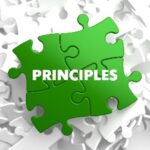
Course Manual 1: Defining Leadership
Definition of Leadership and Its Significance
Leadership, at its core, represents the nuanced art of guiding and inspiring individuals or groups toward achieving shared visions and goals. It stretches far beyond the rudimentary management of tasks, embodying the profound capacity to shape others’ behaviors, attitudes, and actions in a way that ignites positive change and accomplishes desired outcomes.
The hallmark of effective leadership lies in its ability to inspire, not coerce; to motivate action rather than wield authority. This form of influence, when applied within an organizational framework, acts as a powerful catalyst for innovation, collaboration, and the collective pursuit of goals that transcend individual achievements.
One fundamental aspect that sets leadership apart is its detachment from position or title. Leadership is not confined to those holding executive roles; it’s a quality that can be exhibited at any level of an organization. This concept challenges the traditional notion that leadership is synonymous with authority. In today’s dynamic workplaces, leadership can emerge from any corner, from entry-level employees to seasoned executives. It’s about recognizing opportunities, taking initiative, and influencing positive change regardless of one’s formal title.
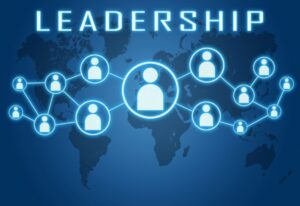
Leadership plays a pivotal role in shaping the culture of an organization. It is the driving force behind the establishment of shared values, norms, and behaviors. Leaders, irrespective of their position, contribute to creating an environment that fosters a commitment to excellence. Understanding the significance of leadership in this context empowers professionals to actively contribute to and shape the cultural fabric of their organizations.
Leadership is not a passive role; it’s an active force that propels organizational performance. Leaders guide their teams to achieve strategic objectives by aligning individual efforts with overarching goals. It involves effective communication, strategic decision-making, and a commitment to continuous improvement. By understanding the intricacies of leadership, professionals can position themselves as key contributors to organizational success.
In essence, leadership is a dynamic and multi-dimensional concept that stretches beyond a simplified definition. It fundamentally encompasses influence, transformation, and the capability to shepherd teams towards common objectives. Importantly, leadership is not tethered to any specific job title or position but emerges as a potential embedded in individuals across all levels of the organizational ladder.
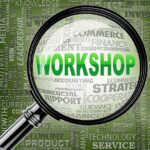
Exercise 1.1 Dynamic Leadership Snapshot: Elevate Your Perspective
1. Immediate Reflection: Picture someone in your professional circle who doesn’t hold a formal leadership title but consistently demonstrates leadership qualities such as recognizing opportunities, taking initiative, or influencing positive change. It could be a colleague, a mentor, or even yourself.
2. Quick Identification: Take a moment to identify and write down what sets them apart as a leader, despite their title or role, and write this down.
3. Group Sharing: Allow each person to briefly share their insights with the group – specifically the role, what attributes showed leadership, and how it inspired you or others (for example, “Alex, a junior developer, continually goes beyond his assigned tasks by mentoring new team members exemplifying how passion and knowledge-sharing can inspire excellence across a team”).
Importance of Leadership in Various Contexts
In our exploration of leadership, it’s crucial to recognize its far-reaching impact beyond organizational boundaries. Effective leadership is not confined to boardrooms and office settings; it permeates every facet of society, from local communities to global governance.
Within an organizational setting, leadership emerges as the cornerstone of success, embodying the strategic vision, direction, and drive that propel an entity toward its objectives. It’s through effective leadership that organizations find their path to growth, innovation, and resilience, navigating the complex waters of market competition and internal challenges with adeptness and foresight. Leaders, by virtue of their role, are entrusted with the critical task of charting the course, setting the sails towards ambitious yet achievable targets that stretch the capabilities of their teams while aligning with overarching organizational goals. This navigational prowess is not just about steering away from foreseeable obstacles but also about seizing the opportunities that lie in unexplored waters, thereby ensuring that the organization remains vibrant, competitive, and forward-moving.
Moreover, the essence of leadership within an organizational setting transcends the mere execution of tasks or attainment of financial metrics; it is fundamentally about cultivating a culture that resonates with excellence, ethical integrity, and continuous learning. Leaders instill a sense of purpose and belonging among employees, fostering an environment where innovation is encouraged, efforts are recognized, and achievements are celebrated. This cultural foundation is pivotal in maximizing employee engagement and productivity, which in turn, contributes to the organization’s ability to maintain agility and adaptability in dynamic market environments. In essence, leadership is the linchpin that connects the aspirations of the organization with the potential of its people, transforming visions into realities through the collective effort, commitment, and creativity of its workforce. Thus, leadership in an organizational setting is not just a role but a profound responsibility, one that demands a blend of strategic insight, empathetic engagement, and an unwavering commitment to excellence.

Transitioning from the organizational realm to community leadership unveils a different yet equally imperative dimension, where leaders transcend traditional roles to become catalysts for change and beacons of hope within their communities. This form of leadership is characterized by a deep-rooted commitment to societal progress, embodying the drive to initiate, guide, and sustain meaningful transformations that address the collective needs and aspirations of the community. Community leaders possess a unique blend of vision, empathy, and resilience, qualities that enable them to mobilize resources, unite diverse groups, and foster a shared sense of purpose. Their role extends beyond mere management or administration; they are the architects of community cohesion, working tirelessly to weave the social fabric into a stronger, more vibrant tapestry. Through their efforts, community leaders empower individuals and groups, encouraging active participation and engagement in civic life, thus ensuring that the community’s voice is heard, respected, and acted upon.
The impact of effective community leadership is profound and far-reaching, creating ripples that extend beyond immediate projects or initiatives to instill a lasting legacy of empowerment, equity, and unity. These leaders navigate the complexities of social dynamics with grace, advocating for policies and practices that promote inclusivity, justice, and sustainability. They are adept at building bridges, breaking down barriers, and creating platforms for dialogue and collaboration, all while keeping the community’s welfare at the heart of their actions. In doing so, they not only address current challenges but also lay the groundwork for future generations to thrive. Community leadership, therefore, is not just about achieving short-term goals; it’s about shaping the future of communities, ensuring they are resilient, adaptive, and reflective of the values and needs of their members. As change agents, community leaders inspire a collective vision for a better future, demonstrating that through unity, determination, and compassion, communities can overcome obstacles and achieve remarkable progress.
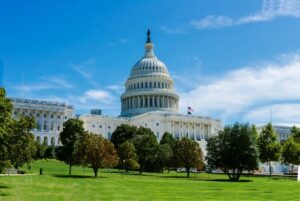
Leadership within governmental and policymaking spheres assumes a pivotal position, transcending mere partisan divides to prioritize stewardship and an unwavering dedication to the collective welfare of society. This realm demands leaders who are not only adept at navigating the complex landscape of political ideologies and interests but are also committed to the principles of equity, justice, and sustainable development. Such leaders champion the cause of the public good, employing a vision that seeks to harmonize diverse viewpoints into cohesive policies that foster long-term societal prosperity. Their work is pivotal in crafting legislative frameworks and initiatives that address pressing societal issues, from healthcare and education to environmental conservation and economic stability. By placing the welfare of the community at the forefront of their agenda, these leaders strive to create a governance model that is inclusive, responsive, and resilient, capable of adapting to the ever-evolving needs of the populace.
Moreover, the impact of leadership within governmental and policymaking spheres is magnified by its potential to inspire trust and confidence in public institutions. Through transparent, ethical, and accountable practices, leaders in this domain can bridge the gap between government and citizens, fostering a sense of collective ownership and responsibility towards societal progress. This relationship is fundamental in cultivating a participatory democracy where citizens feel empowered to contribute to the decision-making process, ensuring that governance truly reflects the will and interests of the people it serves. The challenges are manifold, requiring leaders to exhibit not only strategic foresight and diplomatic acumen but also a profound sense of empathy and humility. In doing so, they underscore the essence of public service as a noble calling, one that demands a deep commitment to improving the lives of individuals and communities alike. As such, leadership in government and policymaking is not merely about holding a position of power; it is about embodying the values of stewardship and dedication to the collective welfare, guiding society towards a future marked by peace, prosperity, and unity. By examining leadership’s role across these various domains, we unlock insights into the transformative power of adept leadership and its capacity to forge positive societal change. Whether you’re leading a team, volunteering in your local community, or advocating for policy change, the principles of effective leadership remain consistent. By cultivating qualities such as vision, empathy, resilience, and strategic thinking, professionals can lead with integrity and inspire others to action.
Leadership, therefore, is not constrained by organizational borders; it takes on numerous forms and functions across diverse settings. From propelling organizational advancement and driving community mobilization to influencing critical policy formations, effective leadership is the linchpin of societal evolution and collective betterment. By acknowledging leadership’s vast spectrum of influence, we empower professionals to unleash their leadership potential, making significant strides in various spheres and contributing to the overarching narrative of progress and development. This comprehensive understanding encourages not just the practice of leadership but an appreciation of its profound impact on our world.

Case Study: Leadership Impact in a Global Health Crisis
In the context of a global health crisis, the COVID-19 pandemic serves as a poignant illustration of leadership’s critical role across various contexts.
In the organizational sphere, pharmaceutical companies played a pivotal role in responding to the pandemic. The race to develop, produce, and distribute vaccines required exceptional leadership at every level. Companies like Pfizer and Moderna exemplified this by mobilizing resources, accelerating research and development, and collaborating with global health organizations. Their leaders set a tone of urgency and innovation, demonstrating that effective leadership in the corporate world is fundamental to addressing global crises.
At the community level, nonprofit organizations played a crucial role in supporting vulnerable populations affected by the pandemic. Take, for example, Doctors Without Borders (Médecins Sans Frontières), a global humanitarian medical organization. Their leadership demonstrated agility and compassion by swiftly adapting operations, deploying medical teams to affected areas, and providing essential healthcare services. The organization’s community-focused leadership showcased the importance of empathy, resilience, and a commitment to serving those in need during times of crisis.
On the national stage, the leadership of governments played a decisive role in managing the crisis. New Zealand, under the leadership of Prime Minister Jacinda Ardern, emerged as a global example of an effective pandemic response. Ardern’s leadership style, characterized by clear communication, decisive action, and a commitment to prioritizing public health, contributed to New Zealand’s successful containment of the virus. The government’s policies and Ardern’s leadership underscored the importance of proactive decision-making and transparent communication in crisis management.

Understanding the impact of leadership in these diverse areas empowers professionals to apply similar principles in their respective fields. Whether in the corporate sector, nonprofit organizations, or government, the ability to inspire, innovate, and collaborate is paramount. The global response to the COVID-19 pandemic showcases that effective leadership, grounded in core principles, is indispensable for navigating complex challenges and steering societies toward recovery and resilience.
In this real-world example, the leadership exhibited by organizations, communities, and governments during the COVID-19 pandemic highlights the universal importance of leadership across various contexts. The ability to guide, inspire, and make strategic decisions is not confined to a specific sector; it is a cross-cutting skill that can drive positive change on a global scale. By learning from these examples, leadership professionals can draw inspiration and insights to enhance their own leadership impact in diverse settings.
Differentiating Between Leadership and Management
Despite their frequent interchangeability, “leadership” and “management” represent separate ideas with different emphases, priorities, and approaches. As we dive into the essence of these roles, we uncover their complementary nature, a duality that, when harnessed effectively, becomes a driving force for sustainable growth and the achievement of organizational goals.
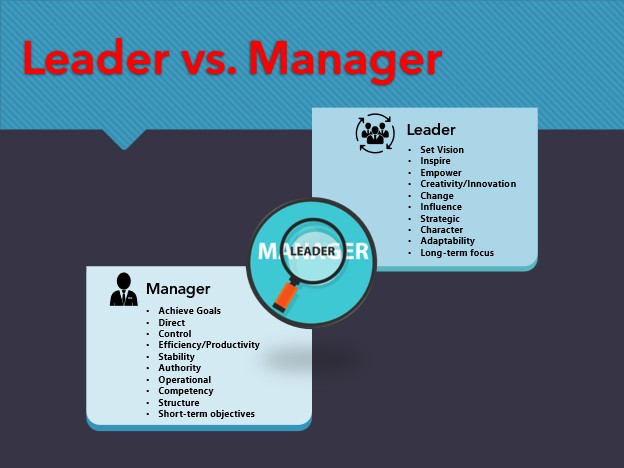
Fundamentally, leadership is the catalytic force that propels individuals and teams toward a shared vision. It goes beyond merely overseeing day-to-day operations and ventures into the realms of inspiration, innovation, and transformative change. Leaders inspire others to think outside the box and take calculated risks, giving them the freedom to move beyond established norms and discover uncharted territory. Building relationships based on trust and respect is a cornerstone, as leaders recognize the importance of cultivating a supportive and inclusive work environment. Ultimately, leadership is about creating a sense of purpose and meaning, aligning individual aspirations with organizational objectives to drive positive change.
Characterized by their ability to inspire and influence, leaders possess a unique skill set:
• Inspiration and Influence: Leaders have the ability to motivate and guide others by appealing to their values and aspirations.
• Innovation: Leaders promote a culture of creativity and continual progress, fostering new ideas and approaches.
• Change Advocacy: Leaders embrace and navigate change, steering their teams through uncertainties with resilience and adaptability.
• Empowerment: Leadership empowers individuals by delegating authority and creating an atmosphere of trust and autonomy.
• Relationship Building: Leaders understand the importance of cultivating strong interpersonal connections and building cohesive teams with a shared sense of purpose.
In contrast, Management, is grounded in the art of turning visions into reality. This involves meticulous planning, organizing, and the stewardship of resources to ensure the seamless execution of day-to-day tasks. Managers are the anchors of operational efficiency, focusing on the meticulous execution of tasks within set parameters, optimizing processes, and ensuring productivity. While leadership is visionary and forward-thinking, management is pragmatic and detail-oriented, ensuring that tasks are executed according to established standards and timelines.
The hallmarks of effective management include:
• Planning and Organization: Masters of strategy, managers craft detailed roadmaps to organizational success, ensuring every resource is leveraged to its fullest potential.
• Coordination: Managers coordinate the efforts of individuals and teams, ensuring that everyone is aligned with organizational objectives.
• Control and Accountability: Managers implement controls to monitor progress, evaluate performance, and ensure adherence to established standards.
• Efficiency: Managers aim for efficiency in processes, with a focus on optimizing resources, time, and budget.
• Problem-Solving: Managers excel in resolving day-to-day challenges, applying systematic problem-solving approaches to keep operations running smoothly.
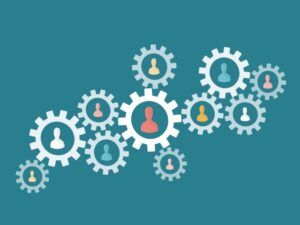
While disparate in focus and approach, leadership and management are far from mutually exclusive; rather, they are synergistic, each playing a crucial role in the other’s efficacy. An effective leader is well-served by management skills to bring their vision to fruition, just as adept managers benefit from the ability to inspire and engage. This interplay is not just beneficial but essential for the realization of organizational aspirations.
Understanding the unique yet complementary nature of leadership and management empowers professionals to wield both with dexterity. Leaders gain an appreciation for the scaffolding provided by robust organizational processes, while managers are reminded of the power of vision and empowerment. This harmonious integration of leadership and management practices propels organizations towards their goals, ensuring not just growth but meaningful, sustainable advancement.

Case Study: Steve Jobs and Apple Inc.
A compelling real-world example of the distinction between leadership and management can be found in the story of Steve Jobs and Apple Inc. Throughout his tenure as CEO, Jobs exemplified visionary leadership, while Tim Cook, his successor, showcased strong management capabilities.
As Apple Inc.’s co-founder and former CEO, Jobs was renowned for his visionary leadership. He possessed a unique ability to inspire and influence others toward a common vision of innovation and excellence. Jobs was not just a manager overseeing day-to-day operations; he was a visionary who transformed entire industries through his bold ideas and relentless pursuit of perfection.
Revolutionizing our ways of communication, media consumption, and technology interaction, Jobs led Apple to release innovative products like the iPod, iPhone, and iPad. His visionary leadership was evident in his ability to anticipate market trends, challenge conventional thinking, and create products that captured the imagination of consumers worldwide.
Jobs’ leadership style was characterized by:
• Inspiration and Influence: He inspired employees and stakeholders with his passion and charisma, rallying them around his vision for the future of technology.
• Innovation: Jobs fostered a culture of innovation at Apple, encouraging employees to think differently and push the boundaries of what was possible.
• Change Advocacy: He embraced change and disruption, leading Apple through numerous product launches and industry shifts with unwavering confidence.
• Empowerment: Jobs empowered his team to take risks and pursue bold ideas, trusting in their creativity and ingenuity to drive success.
• Relationship Building: While known for his demanding demeanor, Jobs built strong relationships with key collaborators and stakeholders, forging partnerships that propelled Apple to new heights.
In contrast to Jobs’ visionary leadership, Tim Cook, Jobs’ successor as CEO of Apple Inc., demonstrated strong management capabilities. While he lacked Jobs’ charismatic persona, Cook’s management prowess was instrumental in sustaining Apple’s growth and profitability.
Under Cook’s management, Apple continued to thrive, achieving record sales and expanding its product line to include new categories such as wearables and services. Cook’s focus on operational excellence, supply chain management, and financial discipline ensured that Apple remained a formidable force in the technology industry.
Cook’s management style was characterized by:
• Planning and Organization: He implemented rigorous planning processes and organizational structures to ensure that Apple’s operations ran smoothly and efficiently.
• Coordination: Cook coordinated cross-functional teams to align efforts and resources toward achieving strategic objectives.
• Control and Accountability: He implemented robust controls and performance metrics to monitor progress and hold teams accountable for results.
• Efficiency: Cook prioritized efficiency and cost-effectiveness in Apple’s operations, driving profitability and shareholder value.
• Problem Solving: He adeptly navigated challenges such as supply chain disruptions, regulatory issues, and competitive threats, applying systematic problem-solving approaches to mitigate risks and capitalize on opportunities.
The contrasting leadership styles of Steve Jobs and Tim Cook at Apple Inc. illustrate the distinction between leadership and management. Jobs’ visionary leadership inspired innovation and transformation, while Cook’s strong management capabilities ensured operational efficiency and sustained growth. Together, their complementary roles contributed to Apple’s success, highlighting the importance of integrating both leadership and management skills in achieving organizational goals and driving sustainable growth.

Exercise 1.2 Dynamic Role Mapping: Unveiling Your Leadership and Management Mix
1. Role Analysis: Think about your current position and the responsibilities
you have. Make a short list of tasks or activities relating to your leadership that involve setting a vision, inspiring others, fostering innovation, or similar.
2. Reflection: Reflect on the list you’ve created. Do you see a balance between leadership and management tasks in your role? Do you naturally gravitate towards one aspect more than the other? What area do you find you have more strengths in – leadership or management?
Importance of Understanding Foundational Leadership Principles
In the realm of leadership, mastering foundational principles is akin to laying a sturdy groundwork upon which to build a successful and impactful leadership journey. These principles do not merely act as guidelines; they serve as a compass, providing direction and clarity amidst uncertainty. They offer a framework for effective leadership practice and decision-making, helping professionals navigate challenging situations with confidence and integrity. By understanding these principles, leaders can cultivate a solid foundation upon which to build their leadership approach, ensuring alignment with organizational values and goals.

At the core of foundational leadership principles lie essential concepts that are integral to effective leadership:
• Integrity: Upholding ethical standards and moral values, even in the face of adversity, fosters trust and credibility among stakeholders.
• Empathy: Understanding and empathizing with the perspectives and emotions of others fosters strong interpersonal connections and promotes a supportive work environment.
• Vision: Casting a compelling vision for the future inspires and motivates individuals to work towards common goals, driving innovation and progress.
• Resilience: Remaining steadfast and resilient in the face of challenges and setbacks enables leaders to persevere and overcome obstacles, fostering a culture of perseverance and growth.
These foundational principles are integral not just for personal leadership development, but also play a pivotal role in building trust and fostering collaboration within teams and organizations. Leaders who exemplify integrity and empathy command respect and engender an atmosphere of openness and transparency. Articulating a clear vision and nourishing a collective sense of purpose galvanizes teamwork and unified efforts, driving breakthroughs and surmounting individual goals.
Moreover, adaptability stands out as a paramount attribute for leadership success in our ever-evolving world. Embracing these guiding principles endows leaders with the resilience and flexibility required to gracefully navigate shifts, fostering an authentic leadership style. This authenticity is instrumental in instilling confidence and trust among team members, empowering them to adapt and flourish amidst dynamic landscapes.

The essence of understanding and mastering foundational leadership principles cannot be overstated for professionals seeking to excel in their leadership roles. By embodying integrity, empathy, vision, and resilience, leaders can build trust, foster collaboration, and drive innovation within their teams and organizations. These principles provide a solid foundation upon which to navigate complex challenges, adapt to change, and lead with authenticity. As you continue your leadership journey, remember that mastering these principles is not just a destination but an ongoing process of growth and development, empowering you to make a meaningful and lasting impact in your sphere of influence.
Course Manual 2: Historical Perspectives
Numerous historical figures and pivotal events throughout history have profoundly influenced the study and practice of leadership. Understanding these roots and branches of leadership not only enriches our knowledge but also equips us with a diverse toolkit for understanding the modern leadership roles of today.
Exploration of Key Figures
Ancient Philosophers and Leadership
The foundations of leadership study can be traced back to ancient civilizations, where eminent philosophers across the globe laid the foundational stones for understanding effective leadership. Confucius in China underscored the significance of moral virtues and ethical governance, while in Greece, Plato envisioned the ideal of the philosopher-king, rooted in wisdom and justice, and Aristotle furthered this dialogue by advocating for virtuous character and practical wisdom in leaders. Contrasting these ideals, Machiavelli from Renaissance Italy introduced a pragmatic approach in “The Prince,” emphasizing state stability over moral imperatives. Together, these thinkers, alongside others like Socrates with his dialectical method and the leadership virtues depicted in India’s Bhagavad Gita, enriched the leadership discourse with their varied perspectives on ethics, pragmatism, and the essence of wise governance. Their collective insights form a tapestry that illustrates the multifaceted nature of leadership, blending moral integrity with strategic acumen, a legacy that continues to inform and guide the principles of contemporary leadership.
Religious and Spiritual Leaders
Spiritual and religious figures such as Moses, Jesus Christ, Muhammad, and the Buddha have also significantly influenced leadership practices. Their lives and teachings introduced concepts of servant leadership, ethical stewardship, and the transformative power of leading by example. These leaders demonstrated that true leadership often involves self-sacrifice, empathy, and a deep commitment to the well-being of others.

Monarchs and Statesmen
Throughout history, monarchs and statesmen like Queen Elizabeth I, Alexander the Great, and Napoleon Bonaparte have demonstrated the complexities of leadership in governance and warfare. Alexander the Great’s ability to inspire and lead his men to conquer much of the known world exemplifies charismatic leadership, while Queen Elizabeth I’s reign is a testament to strategic leadership and political acumen.
The Industrial Revolution and Modern Theories
The Industrial Revolution brought about significant changes in the workplace, necessitating new forms of leadership. Visionaries like Andrew Carnegie and Henry Ford emerged, pioneering leadership in the business world through innovation and the development of management practices. Their work laid the groundwork for modern leadership theories that emphasize vision, strategy, and people management.
The 20th Century and Transformational Leadership
The 20th century introduced groundbreaking changes in the understanding of leadership, marked by the shift towards transformational leadership theories. Leaders like Martin Luther King Jr., Mahatma Gandhi, and Nelson Mandela exemplified transformational leadership through their ability to inspire significant social change by appealing to their followers’ morals and ideals. Their leadership showed the power of vision, inspiration, and the importance of leading by example.
Contemporary Leadership
Today, leadership continues to evolve, influenced by the rapid pace of technological change, globalization, and the growing emphasis on diversity and inclusion. Leaders like Steve Jobs, Malala Yousafzai, and Elon Musk exemplify the diverse facets of contemporary leadership, from innovation and disruption to advocacy for education and human rights. These figures demonstrate that leadership is not static but a dynamic and evolving practice that adapts to the challenges and opportunities of the time.

Case Study: Confucius, Plato, and Machiavelli – Pillars of Leadership Acumen
Confucius, Plato, and Machiavelli provide foundational perspectives on leadership acumen. Each of these historical figures introduced groundbreaking ideas that continue to influence modern leadership thought and practice. By examining their contributions, we can glean timeless insights into effective leadership and its impact on society.
Confucius: The Harmonious Leader
 Confucius (551–479 BCE), a Chinese philosopher, laid the groundwork for ethical leadership grounded in virtue, integrity, and empathy. His philosophy, known as Confucianism, emphasized the importance of moral character in leaders and the role of leadership in creating a harmonious society. Confucius championed the idea of the “Junzi” or “Superior Man,” a leader who leads by example, demonstrating virtues such as righteousness, propriety, and benevolence. His teachings underscored the significance of personal development and ethical conduct in leadership, advocating for a leadership style that prioritizes the welfare of the people and the cultivation of a just and orderly society.
Confucius (551–479 BCE), a Chinese philosopher, laid the groundwork for ethical leadership grounded in virtue, integrity, and empathy. His philosophy, known as Confucianism, emphasized the importance of moral character in leaders and the role of leadership in creating a harmonious society. Confucius championed the idea of the “Junzi” or “Superior Man,” a leader who leads by example, demonstrating virtues such as righteousness, propriety, and benevolence. His teachings underscored the significance of personal development and ethical conduct in leadership, advocating for a leadership style that prioritizes the welfare of the people and the cultivation of a just and orderly society.
Leadership Insights from Confucius:
• Ethical Leadership: Confucius highlighted the importance of virtue and morality in leadership, asserting that leaders must first be virtuous individuals to inspire and guide others effectively.
• Lead by Example: The principle of leading by example is central to Confucian thought, emphasizing that a leader’s actions and character are paramount in influencing others and shaping the culture of an organization or society.
Plato: The Philosopher-King
Plato (428/427–348/347 BCE), an Athenian philosopher, introduced the concept of the philosopher-king in his work, “The Republic.” Plato envisioned an ideal leader as one who possesses both wisdom and philosophical insight, arguing that only those who truly understand what is good for the polis should lead. The philosopher-king is a guardian of the state, ruling not for personal gain but for the common good, guided by knowledge and reason. Plato’s vision of leadership emphasizes the importance of intellectual and moral excellence, suggesting that effective governance relies on leaders who are committed to ideals of justice and the well-being of their citizens.
Leadership Insights from Plato:
• Visionary Leadership: Plato’s concept of the philosopher-king presents a model of visionary leadership, where leaders are guided by a deep understanding of justice, ethics, and the common good.
• Intellectual Excellence: He underscores the role of education and intellectual development in preparing leaders, advocating for a leadership class that is enlightened and knowledgeable.
Machiavelli: The Pragmatic Ruler
Niccolò Machiavelli (1469–1527), a Renaissance political philosopher, offered a starkly pragmatic approach to leadership in his seminal work, “The Prince.” Unlike Confucius and Plato, Machiavelli focused on the realities of political power and the strategies leaders must employ to maintain authority and achieve success. He is often associated with the notion that “the ends justify the means,” advocating for a leadership style that is adaptable, shrewd, and, at times, ruthless. Machiavelli’s contributions to leadership thought lie in his unvarnished examination of power dynamics, emphasizing the importance of cunning, strategic foresight, and the willingness to make difficult decisions for the sake of preserving the state and achieving greater objectives.
Leadership Insights from Machiavelli:
• Realpolitik: Machiavelli introduced the concept of realpolitik, highlighting the need for leaders to be pragmatic and strategic, even if it means making morally ambiguous decisions.
• Adaptability and Foresight: He stressed the importance of adaptability, urging leaders to be flexible and proactive in navigating the complexities of governance and power.
Confucius, Plato, and Machiavelli each offer distinct perspectives on leadership that have profoundly influenced the discourse on effective governance and ethical conduct. Their teachings remind us that leadership is a multifaceted endeavor, requiring a balance of ethical integrity, intellectual rigor, and strategic savvy to truly make a lasting impact on the world.
Historical Development of Theories and Concepts
The evolution of leadership theories and concepts is a fascinating journey through time, reflecting the changing dynamics of society, organizations, and the understanding of human behavior. By examining the progression of leadership theories and concepts, we gain insights into the complexity of leadership and its critical role in shaping successful organizations and societies.
Early Leadership Theories
The Great Man Theory is a foundational concept in the study of leadership that emerged in the 19th century, rooted in the belief that leaders are born, not made. This theory posits that certain individuals possess innate qualities that predispose them to leadership, suggesting that these “great men” are predestined to rise to leadership positions in times of need. The theory was heavily influenced by the historical context of the time, where societal and political changes often brought dramatic shifts in leadership. Historians and philosophers, notably Thomas Carlyle, championed this idea, arguing that history is shaped by the actions of extraordinary leaders. According to Carlyle, these leaders possess unique characteristics such as charisma, intelligence, wisdom, and moral strength, which enable them to have a disproportionate impact on the course of history. The Great Man Theory elevates these individuals, viewing them as heroes whose personal attributes and innate leadership abilities set them apart from the average person.
Despite its initial popularity, the Great Man Theory has faced significant criticism and scrutiny over the years, primarily for its deterministic approach and its failure to account for the situational contexts and social dynamics that also contribute to leadership. Critics argue that the theory oversimplifies the complex nature of leadership and overlooks the potential for leadership development and growth. It also neglects the contributions of women and non-dominant groups to leadership, reflecting the gender and cultural biases of its time. In response to these criticisms, subsequent leadership theories have shifted focus towards more inclusive, dynamic models that recognize the importance of learned skills, environmental factors, and the interaction between leaders and followers. Despite its limitations, the Great Man Theory laid the groundwork for the systematic study of leadership, sparking a dialogue that has evolved into a rich and multifaceted exploration of what it means to lead and how leadership can be cultivated and expressed in diverse contexts.
The Trait Theory of leadership, emerging in the early 20th century, marked a significant evolution in the study of leadership from the Great Man Theory. It operates on the premise that certain fixed personality traits and characteristics are fundamental to effective leadership, suggesting that these traits can distinguish leaders from non-leaders. This theory proposed a shift from the notion of inborn leadership qualities to identifiable attributes that could potentially be measured and analyzed. Researchers embarked on extensive studies to create lists of characteristics that were thought to be predictive of leadership success, including intelligence, self-confidence, determination, integrity, and sociability. Unlike the Great Man Theory, which claimed that leadership was exclusive to those born with specific qualities, Trait Theory opened the possibility of identifying and developing leadership based on measurable characteristics.
However, as the study of leadership progressed, the Trait Theory faced criticism for its failure to account for the situational contexts in which leadership is exercised. It became apparent that no definitive list of traits could guarantee leadership success across different environments and situations. The theory also overlooked the dynamics of leader-follower interactions and how different scenarios might require different leadership qualities. Despite these criticisms, the Trait Theory has contributed significantly to the understanding of leadership, laying the groundwork for more nuanced theories that incorporate both the traits of the leader and the situational context. It has influenced the development of leadership assessment tools and continues to be a reference point for leadership development programs aiming to cultivate key leadership traits. The enduring legacy of Trait Theory lies in its affirmation that while leadership may not solely be a product of inborn traits, certain characteristics can indeed enhance a person’s ability to lead effectively.

Case Study: Winston Churchill and Trait Theory of Leadership
Winston Churchill, the British Prime Minister during the tumultuous years of World War II, is often cited as a quintessential example of Trait Theory in leadership. Trait Theory posits that certain inherent personality traits and characteristics contribute to effective leadership. Churchill’s leadership during one of the darkest periods in modern history exemplifies how distinct personal traits can profoundly impact a leader’s effectiveness and their ability to inspire and mobilize a nation against seemingly insurmountable odds.
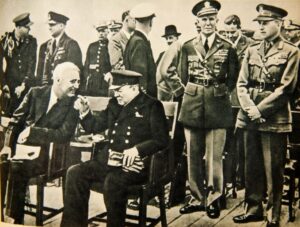 Churchill’s Leadership Traits
Churchill’s Leadership Traits
• Resilience and Determination: Churchill’s leadership was marked by an unwavering resilience and determination. Despite the dire circumstances faced by Britain during World War II, his refusal to give in to despair or defeatism rallied the British people. His perseverance in the face of adversity is a prime example of how resilience is a critical trait for leaders navigating crises.
• Oratory Skills: Churchill’s exceptional oratory skills were instrumental in his leadership. His speeches are legendary for their ability to inspire, motivate, and instill courage in the British populace and troops alike. His eloquence and ability to speak effectively demonstrate the value of communication in leadership.
• Strategic Foresight: Churchill exhibited strategic foresight in recognizing the threat posed by Nazi Germany early on. His capacity to anticipate future challenges and prepare accordingly is a trait that distinguishes effective leaders from their counterparts.
• Adaptability: Despite being initially sidelined in British politics for his views, Churchill’s adaptability allowed him to navigate political landscapes effectively and emerge as a central figure in Britain’s war effort. His capacity to adapt to changing conditions and leverage opportunities demonstrates the versatility required in leadership.
• Courage: Perhaps one of Churchill’s most defining traits was his courage. His readiness to make difficult decisions during the war, even in the face of widespread uncertainty and fear, exemplifies how courage underpins effective leadership, especially in crisis situations.
Impact of Churchill’s Leadership
Churchill’s leadership in World War II had a deep and long-lasting impact on Britain and the free world. His ability to instill confidence and unity in the British people, his strategic alliances with Allies, and his role in building the postwar world order all highlight the relevance of inherent leadership attributes in attaining historical objectives. Churchill’s leadership not only guided Britain through its darkest hour but also established the groundwork for peace and stability in the postwar years.
His leadership provides a compelling illustration of Trait Theory in action. His resilience, oratory skills, strategic foresight, adaptability, and courage are vivid examples of how certain traits can define a leader’s approach and effectiveness, especially in times of crisis. Churchill’s legacy teaches us that while situational factors are crucial, the inherent traits of a leader play a pivotal role in overcoming challenges and achieving success and underscores the importance of recognizing and developing key leadership traits to inspire and lead effectively.
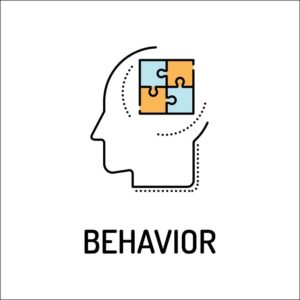
Behavioral Leadership Theories
Behavioral Leadership Theories emerged in the mid-20th century as a significant shift from the Trait Theory, focusing instead on the actions and behaviors of leaders rather than their innate qualities or characteristics. This paradigm shift was driven by the realization that effective leadership could be understood better through observable behaviors and actions that could be learned and taught, rather than fixed traits. Central to this approach was the understanding that leadership effectiveness could be enhanced through the development and adaptation of specific behaviors. Researchers began to categorize these behaviors into various styles, such as autocratic, democratic, and laissez-faire, each with distinct implications for how leaders interact with their teams, make decisions, and influence organizational outcomes. The Ohio State University and the University of Michigan were pioneers in this research area, identifying two critical dimensions of leadership behavior: consideration (the leader’s ability to create an environment of emotional support, warmth, and trust) and initiating structure (the leader’s ability to define roles, set goals, and lead the team toward achieving these goals).
Behavioral Leadership Theories have profoundly impacted leadership training and development, emphasizing that effective leadership skills can be acquired and refined. This perspective offered a more optimistic outlook compared to the deterministic view of the Great Man and Trait Theories, suggesting that leadership is accessible to more individuals through the right behavioral modifications. However, despite the valuable insights provided by Behavioral Theories, they were not without limitations. Critics argued that these theories often failed to account for the situational context in which leadership behaviors are displayed, leading to the development of Contingency Theories that sought to address this gap. Moreover, the assumption that certain behaviors are universally effective across all situations was challenged, highlighting the need for leaders to adapt their styles according to specific circumstances and follower needs. Nevertheless, the Behavioral Leadership Theories laid essential groundwork for understanding leadership as a set of actions that can be systematically observed, taught, and modified, thereby democratizing the concept of leadership and opening up avenues for research into how leadership effectiveness can be enhanced across diverse contexts.
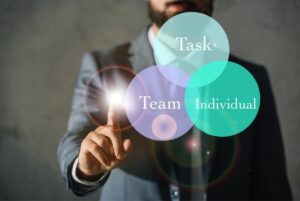
Contingency Theories
Contingency Theories of leadership represent a paradigm shift in the study of leadership, emphasizing the importance of context and situational factors in determining effective leadership. Emerging in the 1960s and 1970s, these theories challenged the one-size-fits-all approach of earlier leadership models, such as Trait and Behavioral Theories, which suggested that certain leadership styles could be universally effective. Contingency Theories, however, theorized that the effectiveness of a leader’s style is contingent upon how well it aligns with the situational variables. This approach introduced a more dynamic understanding of leadership, acknowledging that optimal leadership behavior depends on external conditions, including the nature of the task, the work environment, and the characteristics of followers. One of the foundational models in this genre is Fred Fiedler’s Contingency Model, which proposes that leadership effectiveness hinges on the match between a leader’s style (task-oriented vs. relationship-oriented) and the degree of situational control, measured through task structure, leader position power, and leader-member relationships.
Building on the groundwork laid by Fiedler, other models further nuanced the contingency approach by incorporating additional variables and offering more flexibility in leadership styles. For example, the Situational Leadership Theory, developed by Paul Hersey and Kenneth Blanchard, suggests that the most effective leaders adjust their style (from directing to delegating) based on the maturity level of their followers, considering their competence and commitment. Similarly, Robert House’s Path-Goal Theory suggests that leaders can adjust their style to influence the satisfaction and performance of followers by clarifying the path to goal achievement, thereby aligning with followers’ motivational needs. Contingency Theories have significantly enriched the field of leadership studies by highlighting the complex interplay between leaders, followers, and the situational context. This perspective encourages leaders to be more adaptive and responsive, recognizing that leadership is not merely about adopting a preferred style but about strategically aligning leadership behavior with situational demands to achieve optimal outcomes. Despite criticism for sometimes being overly complex and lacking in prescriptive clarity, Contingency Theories have underscored the critical importance of flexibility, situational awareness, and the capacity to adapt—a lesson that remains deeply relevant in today’s rapidly changing organizational environments.
Contemporary Theories
Contemporary leadership theories have significantly evolved to meet the demands of modern organizational life, emphasizing adaptability, ethical practices, and the capacity to inspire and engage with a shared vision. Marking a departure from traditional, hierarchical models, these theories advocate for a more inclusive, flexible, and dynamic leadership approach. Key among these is Transformational Leadership, which highlights the power of leaders to inspire followers beyond their self-interests, coupled with the critical role of Emotional Intelligence in understanding leadership success beyond mere cognitive abilities. Additionally, concepts like Servant Leadership and Authentic Leadership emphasize the importance of prioritizing follower well-being and ethical integrity. These contemporary perspectives present a nuanced view of leadership as an intricate blend of personal attributes, relationship dynamics, and contextual awareness, urging leaders to adopt a more reflective, empathetic, and adaptable approach. In our upcoming sessions, we will explore these concepts in greater depth, examining how they equip leaders to effectively navigate today’s complex and ever-changing global landscape.

Enduring Wisdom of Historical Leadership Perspectives in Modern Contexts
Overall, the historical development of leadership theories reflects a shift from a focus on innate characteristics and specific behaviors to a more refined understanding of the dynamic interaction between leaders, followers, and the situational context. Contemporary leadership theories emphasize adaptability, emotional intelligence, and ethical considerations, aligning with modern values and organizational needs. This evolution underscores the complexity of leadership and the ongoing quest to understand and improve its practice in changing environments.
The relevance of historical perspectives to modern leadership cannot be overstated, as they provide invaluable insights into the enduring principles of effective leadership while also highlighting the evolutionary nature of leadership theories and practices. Historical perspectives offer a lens through which we can examine the successes and failures of past leaders, extracting lessons that remain pertinent in today’s complex organizational environments. For instance, the transformational leadership exhibited by figures such as Martin Luther King Jr. or Winston Churchill demonstrates the timeless impact of vision, inspiration, and courage in leadership. These examples underscore the importance of leaders who can articulate a compelling vision and mobilize people towards achieving common goals, a principle that continues to resonate in contemporary leadership theories like Transformational Leadership.
Moreover, historical perspectives on leadership underscore the shift from the notion of leadership as a hierarchical, command-and-control function to a more inclusive, participative, and relationship-oriented process. Early theories such as the Great Man Theory and Trait Theory emphasized innate qualities and static characteristics of leaders, often overlooking the dynamic interplay between leaders, followers, and the context. However, as societal structures evolved, so did the conceptualization of leadership, moving towards models that value emotional intelligence, adaptability, and ethical stewardship, as seen in contemporary theories like Emotional Intelligence and Servant Leadership. This evolution reflects a deeper understanding of leadership as a multifaceted and situational phenomenon, highlighting the need for leaders who can adapt their style and approach to suit the needs of their followers as well as the situational demands.
Furthermore, the study of historical leadership perspectives enriches our understanding of the cultural and ethical dimensions of leadership. The diverse leadership styles and philosophies from different cultures and epochs offer a rich tapestry of approaches that modern leaders can draw upon to navigate the globalized and multicultural landscape of contemporary business. For example, the ethical and servant-oriented leadership philosophies of ancient Eastern traditions, such as those espoused by Confucius, complement modern discussions around corporate social responsibility and ethical leadership.
In conclusion, historical perspectives on leadership are not mere academic exercises; they are crucial to understanding the essence of effective leadership in the modern world. They remind us that while the contexts in which leadership is exercised may change, the core principles of vision, ethics, adaptability, and human-centric leadership remain constant. By reflecting on these historical insights, modern leaders can equip themselves with a more nuanced and comprehensive toolkit, enabling them to lead more effectively in an ever-changing global environment. This synthesis of historical wisdom and contemporary knowledge creates a more holistic approach to leadership, one that is capable of meeting the challenges of today while preparing for the uncertainties of tomorrow.

Exercise 2.1 Leadership Time Capsule: Connecting Past and Present
1. Team Formation and Challenge Briefing: Divide the group into two equal teams. Encourage teams to begin thinking quietly about a key leadership figure or concept from history (e.g., Confucius, Plato, Trait theory, etc.)
2. Team Relay: Start the 5-minute timer and allow a round-robin to occur within each team, where the first participant names the historical figure or trait and the team members respond by connecting this figure or trait and the philosophy to a modern leadership challenge or practice, explaining how the ancient wisdom can be applied today.
Group Discussion: Each team presents their synthesized insight, identifying and sharing some of their key takeaways on how historical leadership philosophies inform today’s leadership practices. This sparks a brief but insightful exchange of ideas among all participants.
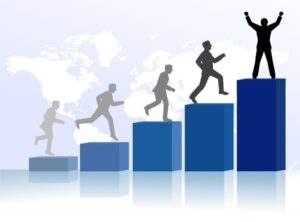
Course Manual 3: Leadership Evolution
As we transition from exploring the history of leadership theory to delving into the evolution of leadership practice, we enter a realm that examines the tangible applications and behaviors of leaders. While leadership theory provides the philosophical underpinnings and conceptual scaffolding for leadership, leadership practice embodies the real-world enactment of these ideas, showcasing how leaders have adapted their strategies, behaviors, and approaches to meet the demands of their times.
Leadership Practices
The progression of leadership practices throughout history reflects a fascinating transition from autocratic rule to collaborative and inclusive models, echoing the changing dynamics of societal values, economic conditions, and organizational structures. This narrative is not merely about the evolution of leadership but a broader reflection on how leaders have adapted their approaches in response to the world around them.

In ancient times, leadership was often synonymous with absolute power, divine rights, and a clear hierarchy. Leaders like pharaohs, emperors, and kings wielded unchecked authority, with their leadership practices rooted in the belief of their divine selection or noble birthright. Leadership practice remained largely top-down, with little input from those being led.
The Industrial Revolution marked a significant pivot in leadership practice, necessitating a move towards more structured and systematized approaches to manage the burgeoning workforce and complex operations. This era birthed the concept of scientific management, where leaders began to apply systematic methods to improve productivity and efficiency. The focus was on optimizing work processes and establishing clear lines of authority, mirroring the mechanistic view of organizations prevalent at the time.
The 20th century introduced a seismic shift in leadership practices with the human relations movement, recognizing the importance of human needs, motivation, and the social aspects of work. Leaders started to appreciate the value of communication, team dynamics, and employee satisfaction, moving beyond the purely transactional relationships of the past. This period saw a transition towards more participative leadership styles, where the input of team members became valued, and leaders worked to foster a more inclusive and motivating work environment.

The late 20th and early 21st centuries have been characterized by rapidly changing technological landscapes, globalization, and evolving organizational norms. Leadership practices have increasingly embraced adaptability, emotional intelligence, and ethical considerations. Leaders are now expected to inspire, engage, and cultivate an inclusive culture that values diversity and innovation. The emphasis has shifted toward models that prioritize the growth, well-being, and empowerment of followers.
Today, leaders face an unprecedented level of complexity and uncertainty, driven by technological advancements, environmental challenges, and the need for sustainable practices. The practice of leadership is evolving towards more collaborative, agile, and adaptive approaches, recognizing the interconnectedness of global systems and the importance of cross-cultural competence. Future leadership practices will likely emphasize co-creation, resilience, and the capacity to navigate through ambiguity, reflecting a deep understanding of the global, digital, and diverse nature of contemporary society.
Contemporary Leadership Practices
In the dynamic landscape of contemporary leadership, four major theories have emerged as cornerstones of effective leadership practice today: Transactional, Transformational, Servant, and Authentic Leadership. Each offers a distinct perspective on the leader-follower dynamic, addressing various aspects of organizational life and leadership effectiveness. Together, they provide a comprehensive framework for understanding and cultivating leadership that is responsive, ethical, and impactful.
Transactional Leadership
Transactional leadership stands as a pragmatic, results-oriented approach within the spectrum of leadership theories. Rooted in the principles of exchange between leaders and followers, this theory is based on a system of clear transactions or agreements. Leaders provide specific tasks or objectives to their followers, along with the corresponding rewards for successfully completing these tasks or penalties for failure.
This leadership style is characterized by its emphasis on order, structure, and efficiency, making it particularly suited to environments where tasks are clear-cut, and goals are well-defined.

The theoretical underpinning of transactional leadership is anchored in behaviorism and the contingency theory of leadership, which suggests that leader effectiveness depends on matching a leader’s style with the right organizational situation. Transactional leadership is delineated into three key components: contingent reward, where leaders offer rewards in exchange for performance; active management by exception, where leaders actively monitor work and take corrective action when standards are not met; and passive management by exception, where leaders intervene only when problems become apparent. This framework underscores a clear, logical approach to leadership, where expectations are defined, and performance is closely monitored.
In today’s organizational contexts, transactional leadership has significantly influenced leadership practices, particularly in environments that demand high levels of efficiency and routine compliance. Here’s how this theory has been applied in modern leadership practices:
• Performance-Based Rewards: Many organizations have adopted performance-based reward systems, a direct application of the contingent reward component of transactional leadership. Leaders set clear performance indicators, and rewards are distributed based on the achievement of these targets, motivating employees to reach organizational goals.
• Clear Structuring of Tasks and Objectives: Transactional leadership has led to the adoption of management practices that emphasize clear, well-defined roles and responsibilities. This clarity ensures that all team members understand what is expected of them, reducing ambiguity and enhancing productivity.
• Active Monitoring and Feedback Loops: Inspired by management by exception, leaders today actively monitor team performance and provide timely feedback. This practice helps in identifying issues early on and implementing corrective measures, ensuring that projects remain on track.
• Risk Management: The proactive aspects of transactional leadership have informed risk management practices. Leaders anticipate potential challenges and implement strategies to mitigate risks, maintaining project integrity and organizational stability.
• Efficiency in High-Volatility Environments: In sectors where rapid responses are crucial, such as emergency services or fast-paced retail environments, transactional leadership practices help maintain order and ensure that operations run smoothly, even under pressure.
• Employee Motivation in Task-Oriented Roles: For roles that are highly structured and routine, the transactional approach to leadership has been effective in maintaining motivation levels. By offering tangible rewards for specific achievements, leaders can sustain engagement and productivity.
While transactional leadership has been critiqued for its potential to overlook the importance of employee intrinsic motivation and innovation, it remains a valuable approach in contexts where structure, clarity, and efficiency are paramount. TAs part of a broader leadership strategy, transactional leadership practices offer a framework for achieving consistency, meeting targets, and maintaining high levels of operational efficiency in today’s diverse and dynamic organizational landscapes.
Transformational Leadership
Transformational leadership, a concept that has significantly shaped the discourse around effective leadership, is centered on the capacity of leaders to inspire and elevate their followers beyond immediate self-interests for the greater good of the organization. Rooted in the visionary work of James MacGregor Burns and later expanded by Bernard M. Bass, this theory suggests that through charisma, inspirational motivation, intellectual stimulation, and individualized consideration, leaders can transform the values, desires, and priorities of their followers, fostering a culture of excellence, innovation, and commitment.
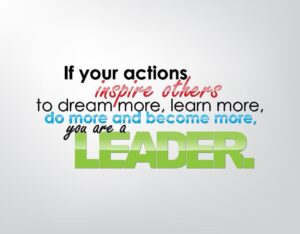
The four key components of transformational leadership—idealized influence, inspirational motivation, intellectual stimulation, and individualized consideration—outline a blueprint for leaders aspiring to enact profound, positive change within their teams and organizations.
Transformational leadership theory has profoundly influenced modern leadership practices, fostering environments that prioritize growth, adaptability, and collective achievement. Here’s how this transformative approach has been integrated into contemporary leadership practices:
• Cultivating a Shared Vision: Leaders today are encouraged to articulate a clear and compelling vision that aligns with the organization’s values and goals, inspiring followers to commit to a shared future. This practice of developing and communicating a visionary outlook has become a cornerstone of strategic leadership development programs, emphasizing the power of a unifying goal to motivate and guide teams.
• Promoting Innovation and Creativity: Inspired by the intellectual stimulation component of transformational leadership, organizations now place a greater emphasis on fostering environments that encourage questioning the status quo, problem-solving, and innovative thinking. Leadership training often includes modules designed to equip leaders with the skills to challenge traditional approaches and cultivate a culture of continuous improvement and creativity.
• Personalized Leadership Development: Reflecting the principle of individualized consideration, personalized development plans for employees have become a standard practice. Leaders are trained to recognize and nurture the unique talents and aspirations of their followers, facilitating mentorship programs, tailored training, and career development opportunities that address individual growth trajectories.
• Building Inspirational Leadership: The inspirational aspect of transformational leadership has led to a focus on enhancing leaders’ communication skills, enabling them to effectively convey passion, purpose, and optimism. Workshops and seminars on storytelling, public speaking, and emotional intelligence are common, aimed at equipping leaders with the tools to inspire and mobilize their teams.
• Ethical Leadership and Corporate Social Responsibility (CSR): Transformational leadership’s emphasis on higher ideals and ethical standards has influenced organizational policies and practices. Leaders are increasingly expected to champion CSR initiatives, demonstrating a commitment to ethical practices, sustainability, and community engagement, which reflects the broader values and mission of the organization.
• Adapting to Change: In today’s fast-paced and unpredictable business environment, the transformational leadership model has underscored the importance of adaptability and flexibility. Leaders are trained to lead change initiatives, navigating transitions with a focus on long-term success and resilience.
Transformational leadership has reshaped the landscape of leadership practices, steering them towards more visionary, adaptive, and people-centered approaches. By inspiring followers to achieve their full potential and aligning individual efforts with the collective goals of the organization, transformational leaders play a crucial role in driving innovation, enhancing organizational performance, and fostering a culture of commitment and collaboration. This leadership style’s emphasis on growth, ethics, and empowerment makes it particularly relevant in today’s complex and evolving organizational contexts, offering a pathway to sustained success and positive change.

Case Study: Nelson Mandela and the Power of Transformational Leadership
Nelson Mandela, a name synonymous with the struggle against apartheid in South Africa, is a quintessential example of transformational leadership. Born in 1918, Mandela dedicated his life to the fight against racial oppression, enduring 27 years of imprisonment before emerging to lead his country through a pivotal transition to democracy. His journey from a political prisoner to the first Black President of South Africa in 1994 is a testament to his resilience, vision, and unwavering commitment to an equal and just society.
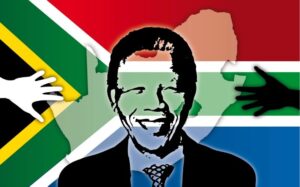
Mandela’s leadership style was marked by several key attributes that exemplify transformational leadership:
• Vision: Mandela had a clear vision of a South Africa free from apartheid. He articulated this vision compellingly, rallying support not only within South Africa but across the globe.
• Inspirational Motivation: Even from his prison cell, Mandela inspired hope among his followers. His release and subsequent leadership further galvanized the movement toward democratic change, proving that leadership can emanate powerfully from even the most challenging circumstances.
• Intellectual Stimulation: Mandela encouraged critical thinking and problem-solving among his followers. He was open to dialogue and debate, understanding that a true leader does not seek mere compliance, but engages followers in the vision and its realization.
• Individualized Consideration: Mandela showed a profound understanding and respect for individual differences. He listened attentively and acted with compassion, recognizing the unique contributions of each person to the collective struggle.
Mandela faced immense challenges, both personally and as a leader. His response to these challenges further illustrates his transformational leadership:
• Negotiating from a Position of Weakness: After his release, Mandela negotiated the end of apartheid with a government that had imprisoned him. He turned his apparent weakness into strength, using moral authority and the force of his personality to achieve a peaceful transition.
• Fostering National Reconciliation: Post-apartheid, Mandela faced the daunting task of uniting a deeply divided country. He established the Truth and Reconciliation Commission, promoting forgiveness and healing over revenge. His leadership during the 1995 Rugby World Cup, where he donned the Springbok jersey, a symbol of white Afrikaner nationalism, served as a powerful gesture of reconciliation.
• Leading by Example: Mandela’s presidency was marked by humility and a focus on unity and nation-building. He set an example by stepping down after one term, reinforcing his message that leadership is about serving and not personal power.
Mandela’s impact on South Africa and the world remains profound. He transformed not only a nation but also the global discourse on leadership, justice, and humanity. His legacy is a blueprint for transformational leadership—demonstrating that with vision, resilience, and compassion, leaders can change the course of history.
Servant Leadership
Servant Leadership, a paradigm that has significantly redefined the essence and practice of leadership, places the leader in a role of service to their team. Originated by Robert K. Greenleaf in the 1970s, this theory posits that the most effective leaders are those who prioritize the needs, growth, and well-being of their followers above their own. Servant leaders focus on empowering and uplifting those around them, believing that such support will naturally lead to improved organizational performance and success. The core of servant leadership lies in the desire to serve others, with leadership seen as a means of serving more effectively.
The servant leadership theory is built around several key principles, including compassion, understanding, healing, consciousness, reasoning, vision, stewardship, dedication to the development of individuals, and fostering a sense of community.
These principles emphasize the importance of understanding and addressing the needs of others, fostering a supportive and collaborative environment, and making decisions that benefit the team and organization as a whole.

Servant leadership has profoundly impacted contemporary leadership practices, offering a counter-narrative to traditional hierarchical and authoritarian models. Here’s how this approach has been integrated into current leadership methodologies:
• Fostering Empathy and Listening: Today’s leaders are increasingly encouraged to develop empathy towards their team members, striving to understand their perspectives, challenges, and aspirations. Active listening workshops and empathy training have become commonplace in leadership development programs, equipping leaders with the skills to genuinely connect with their followers.
• Promoting Employee Well-being and Development: Reflecting the servant leadership principle of prioritizing follower growth, organizations have adopted practices such as comprehensive mentorship programs, personalized career development plans, and well-being initiatives. Leaders are trained to identify and nurture the individual strengths and potential of their team members, facilitating their personal and professional growth.
• Building Collaborative and Inclusive Work Environments: Servant leadership’s emphasis on community and stewardship has led to the creation of more collaborative and inclusive workplaces. Leaders seek to foster a sense of belonging and mutual respect within their teams, encouraging diverse perspectives and fostering a culture where everyone feels valued and heard.
• Ethical Decision-making and Transparency: The ethical underpinnings of servant leadership have influenced organizational ethics and transparency. Leaders are expected to act with integrity, making decisions that are not only beneficial to the organization but also ethical and just. This approach has also led to greater transparency in leadership practices, with leaders being open about their decision-making processes and rationale.
• Empowering Teams and Delegating Authority: Servant leaders empower their followers by delegating authority and encouraging autonomy. This practice has shaped leadership approaches that trust employees to take ownership of their work, make decisions, and lead projects. Empowerment and delegation have been linked to increased innovation, engagement, and team performance.
• Commitment to Service and Community Engagement: Servant leadership has also reinforced the value of organizational service to the broader community. Leaders are encouraged to engage in and support community service projects, aligning organizational goals with societal well-being and demonstrating a commitment to making a positive impact beyond the corporate sphere.
Servant leadership has reoriented leadership practices towards more compassionate, ethical, and people-centered approaches. In today’s complex and interconnected world, the principles of servant leadership continue to inspire a leadership approach that values people over profits, fostering environments where employees feel genuinely supported to achieve their best.
Authentic Leadership
Authentic Leadership is rooted in the principle that genuine leadership is the most effective form of leadership. Emerging from the quest for leadership styles that foster trust, integrity, and transparency, the emphasis is on leaders who are true to themselves and consistently reflect their values in their actions, making them more likely to inspire and engage their followers. Authentic leaders are characterized by self-awareness, relational transparency, balanced processing, and an internalized moral perspective. They not only understand their strengths and weaknesses but also openly share their thoughts and beliefs, consider others’ viewpoints before making decisions, and guide their actions by deeply held ethical values.
The genesis of Authentic Leadership theory can be traced back to the early 2000s, as scholars and practitioners sought alternatives to leadership models that seemed disconnected from the real challenges and ethical dilemmas leaders faced. The theory has been bolstered by psychological research into how authenticity affects trust and follower engagement, showing that authenticity in leadership can lead to higher levels of employee satisfaction, commitment, and performance.
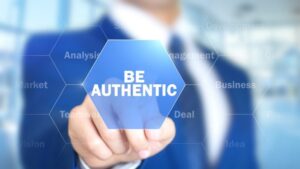
In translating theory into practice, Authentic Leadership has significantly shaped contemporary leadership approaches, emphasizing the importance of leading with integrity and transparency. It has manifested in modern leadership practices in the following ways:
• Development of Self-awareness: Leadership training programs now often include components designed to enhance self-awareness among leaders. Through reflective practices, feedback mechanisms, and emotional intelligence assessments, leaders are encouraged to gain a deeper understanding of their personal values, strengths, and areas for growth. This self-awareness is foundational to authentic leadership, as it enables leaders to be true to themselves and lead with confidence.
• Fostering Transparent Communication: Authentic Leadership has led organizations to value transparency in communication more highly. Leaders are taught to communicate openly with their teams, sharing not only successes but also challenges and failures. This openness helps to build trust and encourages a culture of honesty and mutual support within the team.
• Ethical Decision-making: The theory’s emphasis on an internalized moral perspective has reinforced the importance of ethics in leadership decisions. Training programs and organizational policies increasingly focus on ethical leadership, guiding leaders to consider the wider impact of their decisions and to act in accordance with ethical principles and organizational values.
• Encouraging Balanced Processing: Authentic leaders consider diverse viewpoints before making decisions. This aspect of the theory has influenced leadership practices by promoting inclusivity in decision-making processes. Leaders are encouraged to seek out and genuinely consider the perspectives of all team members, fostering an environment where diverse opinions are valued and contributing to more well-rounded and effective decisions.
• Building Genuine Relationships: At the heart of Authentic Leadership is the ability to build sincere and meaningful relationships with followers. Leadership practices today emphasize emotional intelligence, active listening, and empathy, enabling leaders to connect with their team members on a deeper level. By showing genuine care and concern for the well-being and development of their followers, authentic leaders can inspire loyalty, enhance team cohesion, and drive engagement.
In essence, Authentic Leadership theory has profoundly influenced modern leadership practices, steering them towards approaches that prioritize genuineness, ethical integrity, and deep connections with team members. As organizations continue to navigate the complexities of the modern business environment, Authentic Leadership offers a path toward more ethical, effective, and human-centered leadership. This approach not only leads to better organizational outcomes but also contributes to creating workplaces where trust, integrity, and authenticity are cherished and upheld.

Case Study: Authentic Leadership in Action: The Howard Schultz Story
Howard Schultz, the visionary behind Starbucks’ transformation from a local coffee shop in Seattle to a global coffee giant, exemplifies authentic leadership. Schultz’s journey is a testament to the power of authenticity, vision, and genuine concern for employees and customers alike. His leadership philosophy, deeply rooted in his personal life experiences and values, has fundamentally shaped Starbucks’ culture and business practices, demonstrating how authentic leadership can drive significant organizational success and social impact.

• Self-Awareness and Transparency: Schultz’s leadership is characterized by a high degree of self-awareness. Growing up in a low-income family, Schultz experienced firsthand the struggles of the working class. These experiences shaped his values and vision for Starbucks, aiming to create a company that not only served great coffee but also provided unparalleled care for its employees. Schultz has been open about his background and how it influences his leadership and decisions, fostering a culture of transparency and trust within Starbucks.
• Ethical and Moral Grounding: Schultz’s decision-making process is deeply ethical, focusing on what is right for the company, its employees, and the community. This was vividly illustrated when Schultz decided to provide comprehensive health care benefits to all employees, including part-time workers, and to invest in employee development programs like the Starbucks College Achievement Plan. These decisions, though costly, reflected his commitment to his values and his belief in the long-term benefits of investing in people.
• Relational Transparency: Schultz is known for his genuine interactions with employees at all levels, regularly visiting Starbucks locations to connect with baristas and managers. This hands-on approach has helped him maintain a direct line of communication with his team, encouraging openness and fostering a sense of belonging among employees. His leadership style demonstrates that leaders can maintain their authenticity while scaling their presence across a global organization.
• Balanced Processing: Throughout his tenure at Starbucks, Schultz demonstrated balanced processing by carefully considering diverse viewpoints before making strategic decisions. An example of this was his approach to addressing political or social issues. Schultz often engaged in dialogues with stakeholders, weighing the potential impact of Starbucks’ stance on its employees, customers, and brand. His willingness to listen and adapt his strategies based on feedback showcases the importance of balanced judgement in authentic leadership.
Under Schultz’s authentic leadership, Starbucks has not only seen exponential growth but has also set new standards for corporate responsibility and employee welfare. His leadership has inspired a generation of leaders to prioritize authenticity, ethical practices, and genuine care for their employees’ well-being.
In today’s leadership practices, Schultz’s story underscores the significance of aligning personal values with organizational goals, the impact of treating employees with dignity and respect, and the role of leaders in driving social change. His approach highlights how authentic leaders can build strong, resilient organizations capable of thriving in challenging environments and contributing positively to society.

Exercise 1.1 The Leadership Prism
1. Introduction: Begin with a brief overview of the four leadership practices. Ask four separate participants to each briefly explain just one of the four leadership practices: transactional, transformational, servant, and authentic leadership.
2. Group Formation: Divide all participants into four groups, each consisting of 2-3 members. Assign each group a unique scenario card that presents a leadership challenge.
3. Scenario Analysis and Role-play: Each group discusses their assigned scenario, deciding which leadership practice (transactional, transformational, servant, or authentic) best addresses the challenge presented.
Groups then prepare a short, verbal summary to demonstrate how their chosen leadership practice can be effectively applied to the scenario.
4. Presentation and Feedback: Each group takes a turn briefly presenting their challenge and summary to the entire workshop.
– How did the chosen leadership practice impact the outcome of the scenario?
– Could a different leadership practice have been more effective?
– What leadership qualities were most evident in addressing the challenge?
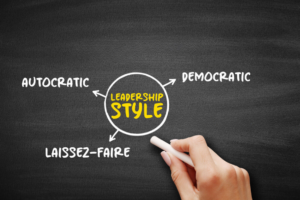
Course Manual 4: Style and Approaches
From autocratic to democratic, laissez-faire to adaptive, and situational, each leadership style offers unique approaches to managing teams, making decisions, and driving organizational goals. As we explore the various styles and approaches to leadership, we are continuing to build on the foundation set in previous sessions, discovering how each style can be strategically employed.
Autocratic Leadership Style
Autocratic leadership, characterized by individual control over all decisions and minimal input from team members, remains a significant style in organizational leadership. This style is best suited for environments where decisions need to be made quickly, without the need for consensus, or in situations where clear direction is paramount.
The effectiveness of autocratic leadership varies widely across different organizational contexts. In high-pressure environments where time is of the essence, such as in emergency services or certain manufacturing operations, the autocratic style can be particularly beneficial. It ensures swift decision-making and clear directives, which are crucial in scenarios where ambiguity can lead to inefficiencies or hazards. Conversely, in creative industries or knowledge-based sectors where innovation and employee engagement are key drivers of success, autocratic leadership may stifle creativity and reduce morale, potentially hampering overall performance.
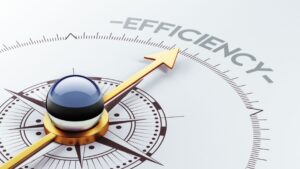
The main strengths of autocratic leadership include:
• Efficiency: Decisions are made quickly and implemented promptly, leading to efficient operations.
• Clarity: Clear directives and expectations eliminate ambiguity, providing a straightforward path for team members to follow.
• Authority: In situations requiring strong leadership to navigate crises or instill discipline, the autocratic style ensures that the leader has the final say, maintaining order and direction.
However, the autocratic leadership style also presents several challenges:
• Reduced Creativity and Innovation: The lack of team input can lead to a deficiency in creative solutions and innovations, as team members may feel their ideas are unwelcome or undervalued.
• Employee Dissatisfaction: The absence of participatory decision-making can result in low morale and job satisfaction, leading to high turnover rates.
• Lack of Ownership and Accountability: When decisions are solely made by the leader, team members might lack a sense of ownership and accountability for the outcomes, potentially affecting the quality of work and engagement levels.
For leadership professionals, understanding when and how to apply an autocratic style is crucial. It involves recognizing the specific needs of the situation and the organizational culture. Implementing this style effectively requires clear communication of the rationale behind decisions and actions, providing some level of context to team members even in a directive environment. Additionally, while maintaining control over decision-making, leaders can still foster a sense of inclusion and respect by acknowledging team efforts and providing constructive feedback.
Autocratic leadership can serve as a powerful tool in a leader’s repertoire when used judiciously and in the appropriate contexts. Balancing this style with elements of more participative leadership approaches can help mitigate its drawbacks while leveraging its strengths to achieve organizational goals. Understanding the nuances of autocratic leadership and its impact on team dynamics and performance is also essential when navigating the complexities of modern organizational culture effectively.
Democratic Leadership Style
Democratic leadership, also known as participative leadership, is a style characterized by team members’ involvement in the decision-making process. This approach values each team member’s input and expertise, fostering a collaborative environment where ideas and feedback are openly shared and considered.
The democratic leadership style is highly effective in environments that thrive on innovation, creativity, and employee engagement. Industries such as technology, education, and creative arts, where collaboration and idea-sharing are crucial to success, benefit significantly from this approach. It encourages a sense of ownership and accountability among team members, leading to higher job satisfaction and morale. However, in situations requiring quick decision-making or in high-pressure environments where clear, immediate direction is needed, the democratic style may slow down processes and lead to inefficiencies.
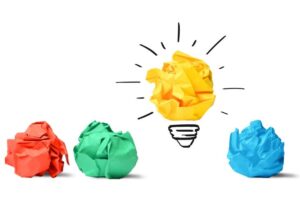
The democratic leadership style is characterized by specific strengths, including:
• Enhanced Creativity and Innovation: By valuing diverse perspectives, democratic leadership encourages creative solutions and innovation, driving the organization forward.
• Increased Employee Satisfaction: This style’s inclusive nature boosts morale and job satisfaction, as team members feel valued and heard.
• Improved Decision Quality: Decisions made through collective wisdom tend to be well-rounded and robust, considering multiple facets of a problem or opportunity.
However, this style also can suffer from several weaknesses.
• Time-consuming decision-making: Gathering input from all members can be lengthy, potentially delaying critical decisions.
• Risk of Consensus Paralysis: Striving for consensus may sometimes result in stalled decision-making, especially if team members have divergent views.
• Potential for Diminished Authority: In some cases, the leader’s authority may be perceived as diluted if decisions are consistently deferred to the team, potentially undermining leadership effectiveness in crisis situations.
For leaders aiming to implement a democratic style, it’s important to strike a balance between soliciting input and maintaining the ability to make timely decisions. This involves setting clear boundaries for participation and ensuring that the ultimate decision-making responsibility rests with the leader. Effective democratic leaders facilitate discussions that are focused and productive, guiding the team toward consensus while being prepared to make executive decisions when necessary. Additionally, they cultivate an environment where feedback is not just encouraged but acted upon, reinforcing the value of each team member’s contribution.
Leaders should also be adept at communication, clearly articulating the rationale behind decisions and the role of team input in shaping outcomes. Training in conflict resolution and negotiation can be beneficial, helping leaders navigate the complexities of group dynamics and differing opinions.
The democratic leadership style offers numerous benefits, including fostering a culture of innovation, engagement, and mutual respect. When applied appropriately, it can enhance decision-making processes and contribute to a positive organizational climate. Understanding the contexts in which this style is most effective and developing the skills necessary to leverage the strengths of a team while mitigating potential drawbacks, can harness the full potential of democratic leadership to achieve organizational goals and empower teams.
Laissez-Faire Leadership Style
The laissez-faire leadership style, often described as “hands-off,” allows team members significant autonomy in how they manage their work and make decisions. This style is predicated on the belief that employees are capable of self-direction and thrive when given the freedom to operate independently. Laissez-faire leadership can be particularly effective in certain organizational contexts but may present challenges in others.
Laissez-faire leadership excels in creative industries, research and development, and high-skill environments where professionals are highly trained and motivated by autonomy. It fosters an atmosphere of innovation and creativity, as team members feel empowered to explore new ideas without constant oversight. However, in settings that require strict guidelines, coordinated teamwork, or where team members lack experience or self-motivation, this leadership style may lead to underperformance, lack of direction, and decreased productivity.

The core strengths that characterize this style include:
• Promotes Innovation and Creativity: By granting team members the freedom to explore and experiment, this leadership style can lead to significant innovations and creative solutions.
• Increases Employee Satisfaction: Autonomy is a powerful motivator for many professionals, leading to higher job satisfaction and retention rates.
• Encourages Personal Growth: Team members may take the initiative to develop new skills and competencies, driven by the autonomy they are given.
The challenges in implementing this style are:
• Risk of Lack of Direction: Without clear guidance and checkpoints, projects may veer off course, or key objectives may be missed.
• Varied Performance Levels: In the absence of regular feedback and oversight, there can be significant disparities in individual performance and productivity.
• Potential for Decreased Cohesion: The hands-off approach may result in a lack of team unity and communication, as team members work in silos.
In a laissez-faire approach, it is critical to assess both the team’s capability for self-management and the nature of the work being undertaken. Implementing structured autonomy, where employees are given freedom within defined boundaries, can mitigate some of the risks associated with this leadership style. Establishing clear goals, available resources, and deadlines while remaining accessible for consultation can provide the necessary framework for success.
Effective laissez-faire leaders must also be adept at recognizing when to step in and provide direction or support. Regular check-ins, though not overly intrusive, can help ensure alignment with organizational goals and offer opportunities for feedback. Additionally, fostering a strong team culture that encourages collaboration and communication can counteract the potential for isolation inherent in this style.
The laissez-faire leadership style offers significant benefits in fostering innovation, autonomy, and personal growth within the right contexts. By understanding its strengths and weaknesses and strategically applying elements of this style, a team’s potential can be unlocked, driving them toward excellence in environments where creativity and independence are paramount. Balancing autonomy with strategic guidance and support is key to leveraging the laissez-faire approach effectively.
Adaptive Leadership Style
Adaptive leadership, a dynamic approach focused on navigating complexity and fostering resilience, is increasingly recognized as essential in today’s rapidly changing organizational landscapes. This style emphasizes the leader’s role in helping their team adapt to new challenges and environments by encouraging flexibility, learning, and innovation. Unlike traditional leadership models that may rely on established hierarchies and procedures, adaptive leadership is about understanding the evolving needs of both the organization and its people and adjusting strategies accordingly.
Adaptive leadership proves most effective in environments characterized by uncertainty, rapid change, or complex challenges that cannot be solved by standard approaches. It is particularly valuable in sectors like technology, healthcare, and global business, where external conditions and internal dynamics evolve swiftly. While this leadership style can drive significant growth and innovation, its less structured nature may be less effective in highly regulated industries or in situations where clear, direct guidance is required for success.
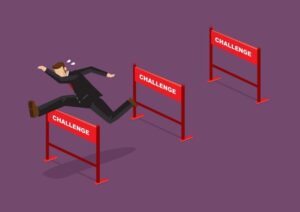
The primary strengths of this leadership style are:
• Encourages Flexibility and Innovation: Adaptive leadership fosters an environment where team members are encouraged to experiment and find creative solutions to new problems, enhancing the organization’s capacity for innovation.
• Builds Resilience: By promoting adaptability in the face of challenges, this leadership style helps teams become more resilient and capable of handling future disruptions.
• Facilitates Learning and Growth: Adaptive leaders focus on continuous learning, not just for themselves but for their teams, ensuring that the organization evolves by acquiring new skills and insights.
The main weaknesses are:
• Can Lead to Uncertainty: The emphasis on flexibility and change can sometimes result in confusion or uncertainty among team members who prefer clear, consistent direction.
• Demands High Emotional Intelligence: Adaptive leadership requires leaders to have a deep understanding of their team’s emotional landscape, a skill that not all leaders may possess or can develop easily.
• Requires Patience and Time: The process of adaptation and learning can be slow, and the benefits of this leadership style may not be immediately visible, requiring patience from both leaders and their teams.
When adopting an adaptive approach, key strategies include creating an open dialogue within the team about challenges and changes, encouraging a culture of experimentation and learning from failures, and continuously scanning the external environment for trends and disruptions that may impact the organization. Adaptive leaders must also develop their emotional intelligence to effectively support their team through transitions and cultivate a strong sense of purpose and shared goals to guide the organization through periods of change.
Moreover, adaptive leaders should balance the drive for innovation with the need for stability, providing enough structure to prevent disorientation while still allowing for flexibility. Implementing feedback mechanisms and reflective practices can also help in assessing the effectiveness of adaptation strategies and in making necessary adjustments.
Overall adaptive leadership is a powerful approach in today’s dynamic and complex organizational environments, enabling leaders and their teams to navigate change with agility and resilience. By fostering a culture that values learning, flexibility, and collective problem-solving, adaptive leaders can guide their organizations through uncertainty and emerge stronger and more capable. Understanding the nuances of this leadership style and its application in various contexts is essential to enhance effectiveness and drive meaningful change.
Situational Leadership Style
The situational leadership style manifested out of the situational leadership theory developed by Paul Hersey and Kenneth Blanchard, which is one of several contingency theories previously reviewed. It is a versatile and dynamic approach that posits there is no single “best” way to lead. Instead, effective leadership is achieved by adapting one’s style to the maturity level of the team members and the specific demands of the situation. This leadership style is predicated on the understanding that different circumstances require different styles of leadership, ranging from directive to supportive, coaching to delegating.
The situational leadership style is highly effective across a broad spectrum of organizational contexts due to its inherent adaptability. It shines in environments that are fast-paced and subject to frequent change, such as startups, technology firms, and project-based industries. In these settings, the leader’s ability to swiftly adjust their approach can significantly enhance team responsiveness and performance. However, its reliance on the leader’s judgment and flexibility may present challenges in highly structured or traditional settings where consistency in leadership style is valued.

Key strengths of this style include:
• Flexibility and Responsiveness: Situational leadership allows leaders to tailor their approach to meet the immediate needs of their team and the demands of the environment, enhancing the team’s responsiveness to changes.
• Enhanced Team Development: By assessing and responding to the development level of team members, leaders can provide the appropriate balance of guidance and autonomy, promoting individual growth and competency.
• Effective Communication: This style promotes open communication as leaders actively engage with team members to assess their needs and adjust their leadership style accordingly, fostering a climate of mutual understanding.
Inherent weaknesses of this style include:
Requires High Levels of Emotional Intelligence and Judgment: Successfully applying situational leadership demands that leaders have a deep understanding of their team members and the acumen to choose the correct style, which may be challenging for some.
Potential for Perceived Inconsistency: Varied leadership approaches with different team members or situations may be perceived as inconsistency or favoritism, potentially undermining trust.
Complexity in Implementation: Situational leadership’s dynamic nature can make it challenging to implement effectively, particularly for new leaders who must continuously assess and adjust their leadership style.
In adopting a situational approach, it is important to develop a keen understanding of the capabilities and readiness levels of team members. This involves not only ongoing dialogue and feedback but also a commitment to personal development in areas such as emotional intelligence and situational analysis.
Situational leadership offers a nuanced and effective framework. By embracing the principles of adaptability, tailored support, and open communication, leaders can foster environments where team members are empowered, responsive, and aligned with the evolving demands of their roles and projects. Mastery of situational leadership enables leaders to not only respond adeptly to current challenges but also to anticipate and prepare for future shifts, driving sustained organizational success and growth.

Case Study: Iconic Leaders and their Styles
Autocratic Leadership: Martha Stewart and Martha Stewart Living Omnimedia
 Martha Stewart, the founder of Martha Stewart Living Omnimedia, exemplifies an autocratic leadership style through her hands-on approach to managing her brand and business empire. Stewart’s meticulous attention to detail and insistence on perfection have become hallmarks of her brand, which spans television, publishing, and e-commerce. She has been known to make unilateral decisions regarding the creative and operational aspects of her company, closely overseeing everything from the layout of her magazines to the design of products bearing her name. This autocratic approach has allowed Stewart to maintain a cohesive and distinct brand identity, ensuring that every aspect of her business reflects her vision for domestic perfection. While her leadership style has sometimes been critiqued for being overly controlling, it has undeniably contributed to her status as a leading authority in lifestyle, cooking, and home decorating.
Martha Stewart, the founder of Martha Stewart Living Omnimedia, exemplifies an autocratic leadership style through her hands-on approach to managing her brand and business empire. Stewart’s meticulous attention to detail and insistence on perfection have become hallmarks of her brand, which spans television, publishing, and e-commerce. She has been known to make unilateral decisions regarding the creative and operational aspects of her company, closely overseeing everything from the layout of her magazines to the design of products bearing her name. This autocratic approach has allowed Stewart to maintain a cohesive and distinct brand identity, ensuring that every aspect of her business reflects her vision for domestic perfection. While her leadership style has sometimes been critiqued for being overly controlling, it has undeniably contributed to her status as a leading authority in lifestyle, cooking, and home decorating.
Democratic Leadership: Google’s Leadership Culture
Google, under the leadership of co-founders Larry Page and Sergey Brin, exemplifies democratic leadership. They fostered an open and collaborative work environment where employees felt valued and empowered to share their ideas. This approach is epitomized by Google’s famous “20% time,” where employees could spend 20% of their work time on projects, they were passionate about, leading to innovations like Gmail and AdSense. Google’s leadership believed in the collective wisdom of their team, encouraging participation in decision-making processes and creating a culture where feedback and dialogue contributed to the company’s innovative edge and high employee satisfaction rates.
Laissez-Faire Leadership: Warren Buffett and Berkshire Hathaway
Warren Buffett, the CEO of Berkshire Hathaway, is renowned for his laissez-faire approach to leadership. Unlike leaders who are involved in the day-to-day operations of their companies, Buffett places significant trust in the leaders of the companies within Berkshire Hathaway’s portfolio. He chooses to invest in companies led by managers he trusts and then allows them considerable autonomy in running their businesses. This hands-off approach has enabled Berkshire Hathaway to grow into a conglomerate with a diverse portfolio, as Buffett believes that giving leaders the freedom to operate maximizes their potential for success.

Adaptive Leadership: Satya Nadella at Microsoft
Satya Nadella’s tenure as CEO of Microsoft showcases adaptive leadership. When Nadella took over in 2014, he steered the company through significant shifts, including embracing cloud computing and open-source technologies—areas where Microsoft had previously lagged. Nadella’s ability to adapt to technological trends and industry demands while fostering a culture of learning and innovation revitalized Microsoft. He emphasized empathy, collaboration, and the need to continually learn and adjust strategies as key to navigating the rapidly changing tech landscape, leading to a resurgence in Microsoft’s growth and relevance in the tech industry.
Situational Leadership: Reed Hastings and Netflix
Reed Hastings, co-founder and CEO of Netflix, exemplifies situational leadership. As Netflix transitioned from a DVD rental service to a streaming platform, and then to a leading producer of original content, Hastings adapted his leadership style to meet the evolving challenges and opportunities each phase presented. He has been known to delegate extensively during periods of stability, allowing his team creative freedom, but also to take a more directive approach when navigating the company through shifts in strategy or market challenges. His flexible leadership approach has enabled Netflix to remain at the forefront of the entertainment industry despite significant changes in technology and consumer behavior.
As we close this exploration of leadership styles, let us carry forward the understanding that leadership is not a one-size-fits-all solution but a fluid, context-driven practice. The ability to adapt one’s style to the needs of the moment is what separates competent leaders from truly transformative ones. Armed with this knowledge, professionals are better equipped to lead with insight, empathy, and effectiveness, crafting legacies of success that resonate well beyond the confines of their organizations.

Exercise 4.1 Leadership Styles Simulation Exercise
1. Team Formation: Divide the group into pairs of two. Each pair is assigned one of the five leadership styles: autocratic, democratic, laissez-faire, adaptive, and situational.
2. Scenario Brief: The facilitator outlines a workplace scenario to the entire group around navigating a company-wide pivot to remote work, providing enough detail to set the stage for diverse leadership approaches.
3. Preparation: Each pair discusses their assigned leadership style and plans a brief outline on how they would handle the scenario using that style. Focus on the key decisions and include the strengths and potential pitfalls of their approach in the context of the scenario.
4. Presentations: Pairs take turns sharing their outline of the key actions, strengths, and pitfalls of their approach.
5. Group Reflection: After all pairs have presented, the group engages in a brief discussion, reflecting on the following points:
• How did the different leadership styles affect the approach to the scenario?
• Which style(s) seemed most effective in this context, and why?
• How could elements of different styles be integrated to enhance leadership effectiveness?

Course Manual 5: Power and Influence
Understanding the nuances of where power originates and how it can be wielded to inspire, motivate, and drive change is fundamental to leadership growth. Power and influence, while often spoken of together, stem from distinct sources and manifest in varied forms.
Power, in its essence, can arise from positional authority within an organization, expertise in a domain, the ability to reward or penalize, personal charisma, or the relationships and networks one cultivates. Influence, on the other hand, is the art of leveraging this power to guide others’ thoughts, behaviors, and actions toward a shared vision or goal.
In this session, we will review the five types of power originating from social psychologists John R. P. French and Bertram Raven’s 1959 study, “Bases of Social Power.” We will explore how leaders balance the hard power of their position with the soft power of relationships and persuasion to achieve outcomes that benefit both the organization and its members.
As we navigate through these concepts, remember the goal is not just to understand the sources of power and influence but to critically reflect on how we can apply this understanding to enhance our leadership practices. How do we leverage our positional authority without becoming autocratic? Can we use our expertise in a way that empowers rather than intimidates? How do we transform personal charisma into a force for positive change? And importantly, how do we cultivate a network of relationships that bolster our influence ethically and sustainably?
This exploration is not just about wielding power, but about transforming it into a tool for building a more inclusive, collaborative, and inspiring leadership practice.
Legitimate Power
Legitimate power emerges from the formal authority vested in a position rather than the individual holding that position. This type of power is inherent in the roles and titles within organizations, granting leaders the recognized right to make decisions, allocate resources, and direct others’ activities.

At its core, legitimate power is about the structure of hierarchy and the social contracts that define organizational life. It is predicated on the assumption of obedience in exchange for the security, order, and predictability that come with structured leadership. This form of power is most visible in the clear lines of authority and responsibility that define organizational charts, but its true essence lies in the acceptance by team members of their leader’s right to lead—a consent that is often implicitly given when individuals join an organization and embrace its norms and values.
Effective leaders wielding legitimate power understand that this authority is not a carte blanche for autocracy but a foundation for responsible and ethical decision-making. They recognize that the legitimacy of their power is continually earned through fair and principled leadership practices. These leaders leverage their positional power to inspire confidence, set clear expectations, and foster an environment where the collective goals of the organization are pursued with dedication.
However, the reliance on legitimate power alone is not without its pitfalls. Overemphasis on hierarchy can stifle innovation, suppress dissenting opinions, and erode trust if team members feel their voices are unheard or their contributions are undervalued. The most adept leaders balance their legitimate authority with other forms of power, such as expert and referent power, to cultivate a more dynamic and inclusive leadership style.
Legitimate power is a fundamental aspect of organizational leadership, providing a necessary structure for coordination and decision-making. Yet, its most effective application is achieved when leaders complement it with a genuine commitment to the growth and well-being of their team members, thereby ensuring that their authority is both respected and supported by a foundation of mutual trust and shared vision.

Case Study: Dr. Anthony Fauci: Demonstrating Legitimate Power in Healthcare Leadership
Dr. Anthony Fauci, renowned as a leading immunologist and Director of the National Institute of Allergy and Infectious Diseases (NIAID), embodies legitimate power in healthcare leadership.
In March 2020, amidst the global COVID-19 pandemic, Dr. Fauci emerged as a prominent voice of authority and expertise in the United States. Leveraging his position at NIAID and decades of experience studying infectious diseases, he became a trusted advisor to government officials, healthcare professionals, and the public. Through televised briefings, interviews, and public appearances, Dr. Fauci utilized his legitimate power to disseminate accurate information, clarify misconceptions, and advocate for evidence-based approaches to mitigate the spread of the virus.
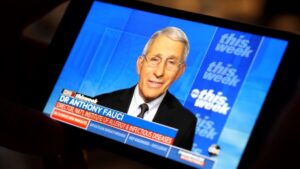 eAs an official appointed by the U.S. government and a respected figure in the scientific community, his recommendations carried significant weight and influenced decision-making at local, state, and national levels. Despite facing challenges and controversies, Dr. Fauci maintained his credibility by consistently prioritizing public health interests and adhering to scientific principles.
eAs an official appointed by the U.S. government and a respected figure in the scientific community, his recommendations carried significant weight and influenced decision-making at local, state, and national levels. Despite facing challenges and controversies, Dr. Fauci maintained his credibility by consistently prioritizing public health interests and adhering to scientific principles.
Throughout the pandemic, Dr. Fauci’s use of legitimate power extended beyond policymaking and public communication to fostering collaboration among healthcare professionals and researchers. By convening expert panels, participating in international conferences, and facilitating partnerships between government agencies and private organizations, he facilitated coordinated responses to the evolving challenges posed by COVID-19.
As a beacon of authority and integrity, Dr. Fauci’s leadership serves as a testament to the significance of legitimate power in advancing healthcare and addressing global health challenges.
Reward Power
Reward power stands as a pivotal mechanism through which leaders can motivate and shape the behavior of their teams. It originates from the leader’s capacity to bestow rewards or incentives upon team members for achieving desired outcomes or exhibiting preferred behaviors. These rewards can span a broad spectrum, from financial bonuses, promotions, and professional development opportunities to recognition, praise, and more flexible working conditions. Rooted in the principle of positive reinforcement, reward power is an essential tool for leaders aiming to foster a culture of achievement and motivation.

The effectiveness of reward power lies in its ability to clearly communicate expectations and goals within an organization. By defining what behaviors and achievements are valued, leaders can align individual efforts with the broader objectives of the team or organization. When applied judiciously, reward power not only enhances productivity and engagement but also strengthens the bond between leaders and their teams, creating a positive work environment where contributions are recognized and valued.
However, the use of reward power also necessitates a thoughtful approach. It requires leaders to be equitable and transparent in their distribution of rewards to avoid perceptions of favoritism or unfairness, which could undermine team cohesion and morale. Moreover, leaders must ensure that the rewards offered are genuinely valued by their team members, as misalignment between the rewards and individuals’ motivations can diminish the effectiveness of this power base.
Furthermore, an overreliance on extrinsic rewards may inadvertently limit intrinsic motivation, reducing tasks to mere transactions rather than opportunities for personal growth or fulfillment. Consequently, the most adept leaders employ reward power as part of a broader strategy, one that balances extrinsic incentives with opportunities for intrinsic satisfaction, such as autonomy in work, mastery of new skills, and a sense of purpose.
When embracing reward power, leaders must develop a keen understanding of their team members’ values and aspirations. This insight allows for the customization of rewards to fit individual motivations, thereby maximizing their impact. Additionally, integrating feedback and recognition into regular interactions can sustain motivation and commitment even when formal rewards are not feasible.
Coercive Power
The concept of power is multifaceted. Unlike its counterparts, coercive power operates on the principle of instilling fear and administering negative consequences to influence behavior. While it may seem counterintuitive in the pursuit of effective leadership, understanding coercive power is paramount for leaders navigating complex organizational landscapes.

Coercive power derives its potency from the ability to enforce compliance through the threat of punishment or adverse outcomes. Leaders wielding coercive power utilize fear as a tool to compel adherence to directives, regulations, or standards. This form of power is often associated with authoritarian leadership styles, where control is maintained through the imposition of sanctions for non-compliance.
The sources of coercive power can vary, encompassing formal authority structures, disciplinary measures, or hierarchical positions within an organization. For instance, managers possess coercive power through their authority to enforce disciplinary actions, such as reprimands, demotions, or even termination. Additionally, coercive power can manifest in broader institutional frameworks, where policies, regulations, and legal ramifications serve as coercive mechanisms.
While coercive power may yield immediate compliance, its reliance on fear can erode trust, morale, and long-term engagement within an organization. Leaders must navigate a delicate balance between enforcing accountability and fostering a positive organizational culture built on trust and collaboration. Moreover, excessive reliance on coercive power can breed resentment, resistance, and ultimately undermine the legitimacy of leadership authority.
Recognizing the nuanced interplay between coercive power and other forms of influence is paramount. Rather than relying solely on fear-based tactics, leaders should leverage a repertoire of leadership styles to inspire commitment and empower followers. By fostering a culture of accountability, transparency, and fairness, leaders can mitigate the need for coercive measures while promoting organizational resilience and adaptability.
Expert Power
Expert power is a vital asset in a leader’s arsenal, deriving its influence not from position or coercion, but from the leader’s knowledge, skills, and expertise in a specific domain. This form of power is based on the perception and respect that team members have for the leader’s proficiency and ability to provide insights, solve problems, and guide decisions with authority. Unlike other forms of power that might diminish over time or with changes in organizational structure, expert power tends to grow as the leader continues to demonstrate competence and share knowledge.
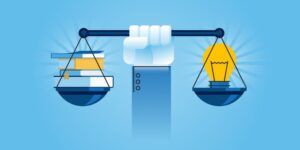
The essence of expert power lies in its foundation of trust and credibility. Leaders who possess expert power are sought after for their advice, are influential in their recommendations, and can inspire confidence in their vision and directives. This form of power is particularly effective in environments where technical skills, specialized knowledge, or innovative solutions are prized, such as in high-tech industries, healthcare, engineering, and academia. It empowers leaders to lead by example, demonstrating a commitment to excellence and continuous learning.
One of the strengths of expert power is its ability to foster a learning culture within an organization. Leaders with substantial expertise can mentor and develop their team members, elevating the overall competency of the group. This not only enhances team performance but also contributes to a more engaging and fulfilling work environment where employees feel valued and supported in their professional growth.
However, reliance on expert power alone is not without its challenges. Leaders must be wary of becoming so engrossed in their areas of expertise that they neglect the development of other essential leadership skills, such as emotional intelligence, communication, and the ability to delegate. Additionally, there is the risk of alienating team members who may feel intimidated or overshadowed by the leader’s expertise, potentially stifling open dialogue and collaboration.
To effectively leverage expert power, leaders should aim to balance their specialized knowledge with a collaborative and inclusive approach. This involves actively listening to team members, valuing their contributions, and encouraging diversity of thought.
Sharing expertise in a way that empowers others, rather than asserting superiority, can enhance a leader’s influence and foster a more dynamic and resilient team.
Incorporating expert power into a broader leadership strategy also means recognizing when to step back and let others lead in their areas of expertise, thereby promoting trust and respect. It’s about creating an environment where knowledge is shared freely, and where the leader is seen as a valuable resource rather than an inflexible authority.
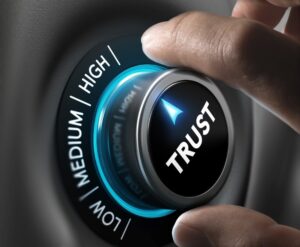
Referent Power
Referent power is a pivotal concept, representing a form of influence that stems from the admiration, respect, and trust followers hold for a leader. Within the framework of French and Raven’s five bases of power, referent power stands out as a potent force for building strong interpersonal connections and inspiring followership.
Unlike other forms of power, such as coercive or reward power, which rely on control over resources or the ability to dispense rewards and punishments, referent power is intangible and emerges from the leader’s personal qualities and character. It is rooted in the perception of the leader as someone who embodies desirable traits and values, such as integrity, authenticity, empathy, and vision.
Leaders who possess referent power have a magnetic quality that attracts and inspires others. They serve as role models, setting an example through their actions, decisions, and behaviors. Their authenticity and sincerity foster trust and loyalty among their followers, creating a sense of camaraderie and shared purpose within the team.
Building referent power requires a genuine commitment to fostering strong relationships and demonstrating consistent, ethical leadership. Leaders must invest time and effort in understanding their followers’ needs, concerns, and aspirations and strive to communicate openly and transparently.
One of the key strengths of referent power is its ability to transcend formal authority or positional hierarchy. Even in situations where a leader lacks formal power, their personal charisma and influence can still wield significant sway over others. This makes referent power particularly valuable in environments characterized by teamwork, collaboration, and shared decision-making.
In practical terms, leaders can leverage referent power to mobilize support, build consensus, and inspire collective action. By embodying the values and principles they espouse, leaders can cultivate a culture of trust, respect, and mutual accountability within their teams, laying the foundation for sustained success.
Core Ethical Principles and Value
The core ethical principles and values in leadership create a framework for guiding behavior, decision-making, and interactions within organizations. These foundational elements are crucial for building trust, fostering a positive organizational culture, and ensuring long-term success. Here are some of the key ethical principles and values that are widely recognized as essential to effective leadership:
1. Integrity: This is perhaps the cornerstone of all ethical principles. It involves being honest, transparent, and consistent in words and actions. Leaders with integrity are trustworthy and reliable, making decisions that are aligned with the organization’s values and ethical standards.
2. Accountability: Ethical leaders take responsibility for their decisions and actions, including their mistakes. They are open to scrutiny and are committed to making amends when necessary. Accountability also involves holding others to the same standards and creating an environment where people feel responsible for their part in the organization’s success and ethical standing.
3. Fairness: Treating all individuals justly and giving everyone equal opportunities for growth and success is fundamental to ethical leadership. Fairness involves making unbiased decisions, resolving conflicts impartially, and ensuring equitable treatment for all stakeholders.
4. Respect: This value entails recognizing the inherent worth of every individual, valuing diversity, and promoting an inclusive workplace. Respectful leaders listen actively, communicate effectively, and foster an environment where everyone feels valued and heard.
5. Transparency: Ethical leaders are open about their actions and decisions, providing clear reasons behind their choices and making information accessible to relevant stakeholders. Transparency builds trust and facilitates informed decision-making throughout the organization.
6. Compassion and Empathy: Understanding and genuinely caring for the well-being of others are crucial aspects of ethical leadership. These values encourage leaders to consider the impacts of their decisions on employees, customers, and the community, promoting a culture of support and empathy.
7. Courage: Standing up for ethical principles, especially in the face of adversity, requires courage. Ethical leaders are willing to make difficult decisions, challenge unethical practices, and advocate for what is right, even when it is not easy or popular.
8. Humility: Ethical leaders recognize their own limitations and the value of others’ contributions. They are open to feedback, willing to admit mistakes, and committed to continuous learning and improvement.
9. Sustainability and Social Responsibility: Today’s ethical leaders are also expected to consider the environmental and social impacts of their decisions, promoting sustainability and taking actions that contribute positively to society and the planet.
These principles and values serve as a guiding light for leaders aiming to navigate the complex ethical challenges of today’s business world. By embodying these values, leaders can inspire trust, loyalty, and excellence in their teams, creating organizations that are not only successful but also contribute positively to the broader community.

Case Study: Mary Barra: Leveraging Expert Power as CEO at General Motors (GM)
Mary Barra became the CEO of General Motors in January 2014, making history as the first woman to lead a major global automaker. With over three decades of experience at GM, Barra rose through the ranks, holding various leadership positions in engineering, product development, and management.

Barra’s extensive experience within GM’s engineering and product development divisions provided her with a deep understanding of the complexities of the automotive industry. She played a pivotal role in spearheading the development of several successful vehicle programs, including the Chevrolet Volt and the Chevrolet Malibu.
Under Barra’s leadership, GM has made significant strides in innovation, particularly in the areas of electric and autonomous vehicles. Her technical knowledge and strategic vision have guided GM’s transition towards sustainable mobility solutions, positioning the company as a leader in the rapidly evolving automotive landscape.
Barra’s leadership has been instrumental in driving GM’s transformation into a more agile, customer-focused, and forward-thinking company. Under her tenure, GM has experienced record profitability, launched innovative vehicle models, and expanded its presence in emerging markets.
Barra’s emphasis on innovation, quality, and customer satisfaction has rejuvenated GM’s brand image and positioned the company for long-term success. Her ability to combine technical expertise with strategic leadership has earned her accolades from both within and outside the automotive industry.
Mary Barra’s leadership and expertise have garnered widespread recognition and influence. She has been named among the world’s most powerful women by Forbes and Fortune magazines and has received numerous awards for her contributions to the automotive industry and business leadership.
Barra’s thought leadership on topics such as sustainability, diversity, and corporate governance has positioned her as a respected voice in the business community. She frequently participates in industry forums, conferences, and panels, where her insights and perspectives are highly valued.
Mary Barra exemplifies the effective use of expert power in leadership. Through her deep understanding of automotive engineering, strategic vision, and commitment to innovation, she has led General Motors to new heights of success. Her leadership serves as a compelling case study on how technical expertise can drive innovation, inspire confidence, and lead organizations to thrive in a competitive market environment.

Exercise 5.1 Navigating the Five Types of Power
• Legitimate Power: Derived from your official position or role.
• Reward Power: Based on your capacity to provide rewards.
• Coercive Power: Rooted in the ability to impose sanctions or punishments.
• Expert Power: Stemming from your expertise or knowledge.
• Referent Power: Arising from the respect and admiration others have for you.
• How often do I rely on this type of power in my leadership?
• In what ways has this type of power been effective in achieving my leadership goals?
• Have there been instances where relying on this type of power has posed challenges or ethical dilemmas? How did I address them?
• Are there types of power I could leverage more effectively?
• How can I develop areas where my power is less pronounced to become a more well-rounded leader?
• What steps can I take to ensure that my use of power supports ethical leadership and promotes a positive organizational culture?
Understanding Influence
Influence has emerged as a cornerstone of effective leadership. Unlike traditional notions of leadership that hinged on authority and positional power, today’s leadership is increasingly about the ability to inspire, persuade, and motivate a diverse group of stakeholders. This shift reflects a broader transformation in the business world, where flat hierarchies, cross-functional teams, and a premium on innovation demand a more nuanced approach to driving performance and effecting change.
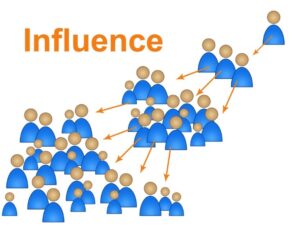
Influence, at its core, is the ability to effect outcomes, shape perceptions, and guide the behavior of others without relying on formal authority. It’s about winning hearts and minds, leveraging interpersonal skills, and embodying the values and vision that resonate with your team and organization. This form of leadership transcends the boundaries of traditional power structures, enabling leaders to mobilize resources, foster innovation, and navigate the complexities of global business environments.
The foundation of influence lies in credibility, which is cultivated through a combination of expertise, integrity, and reliability. Leaders who demonstrate a deep understanding of their domain, adhere to ethical standards, and consistently deliver on their promises earn the trust and respect of their colleagues, making them more inclined to follow their lead.
Understanding and genuinely caring about the needs, aspirations, and challenges of those you lead is crucial for building strong relationships. Empathy enables leaders to connect on a personal level, fostering a culture of openness and mutual respect that is conducive to collaboration and innovation.
Mastery of communication—both in articulating a compelling vision and in listening actively to others—is essential for influencing effectively. Leaders must be adept at conveying their ideas in a way that is both persuasive and relatable, while also being open to feedback and alternative perspectives.
The rapid pace of change in today’s business world requires leaders to be flexible and responsive. Being able to adapt your approach to different situations and individuals is key to maintaining influence across a range of contexts and challenges.

Influential leaders understand the power of networking and thought leadership. By building strategic relationships across and beyond their organizations, they can tap into new insights, resources, and opportunities. Similarly, by contributing to the broader conversation in their field—whether through speaking engagements, publications, or social media—they can shape industry trends and position themselves and their organizations as forward-thinking leaders.
However, with great power comes great responsibility. The ethical use of influence is paramount; manipulative or coercive tactics can lead to short-term gains but ultimately erode trust and undermine a leader’s effectiveness. Ethical leaders use their influence to serve the best interests of their team and organization, promoting a culture of integrity and accountability.
In today’s complex and interconnected business environment, the ability to influence is more critical than ever. Leaders who can inspire action, drive change, and build collaborative networks are better equipped to navigate the challenges and opportunities of the 21st century. By focusing on the development of personal and professional qualities that enhance their influence, leaders can elevate their impact and contribute to the success and sustainability of their organizations.
Navigating the Complex Relationship between Power and Influence
Effective leadership requires a delicate balance between wielding power and cultivating influence. Leaders must leverage their positional authority while recognizing that true influence arises from authenticity, empathy, and a commitment to serving the collective interests of the organization. By combining the diverse forms of power at their disposal with the art of influence, leaders can inspire commitment, foster collaboration, and drive positive change within their organizations.

Case Study: Oprah Winfrey: Harmonizing Referent Power with Influence for Significant Impact
Oprah Winfrey, renowned media mogul and philanthropist, exemplifies a leader who effectively integrates power and influence, particularly through the leverage of referent power. As the host of “The Oprah Winfrey Show” and founder of OWN (Oprah Winfrey Network), she has wielded her influence to inspire millions worldwide.

Oprah’s referent power stems from her magnetic charisma, authenticity, and unwavering connection with her audience. Throughout her career, she has cultivated a deep rapport with her viewers, earning their trust, admiration, and loyalty. Her ability to empathize with others, share personal stories, and uplift individuals has made her a beloved figure and a role model for millions.
As a result of her referent power, Oprah has amassed a devoted following who look to her for guidance, inspiration, and validation. Her influence extends beyond the realm of media and entertainment, as she has leveraged her platform to champion social causes, promote literacy, and empower marginalized communities.
Oprah’s leadership style is characterized by authenticity, empathy, and a commitment to uplifting others. By harnessing her referent power, she has created a supportive and inclusive environment that fosters personal growth, self-discovery, and empowerment.
Through her various ventures, including television, publishing, and philanthropy, Oprah has leveraged her influence to amplify the voices of marginalized individuals, advocate for social justice, and foster meaningful dialogue on important issues. Her ability to connect with people from all walks of life has enabled her to build a diverse and inclusive community that transcends cultural, racial, and socioeconomic barriers.
Oprah Winfrey’s impact and influence are evident in her widespread recognition and acclaim. She has been honored with numerous awards, including the Presidential Medal of Freedom, for her contributions to entertainment, media, and philanthropy.
Moreover, Oprah’s influence extends beyond her professional achievements, as she is revered as a cultural icon and a symbol of empowerment and resilience. Her ability to harmonize referent power with influence has made her a transformative figure whose impact extends far beyond the confines of her television show or network.
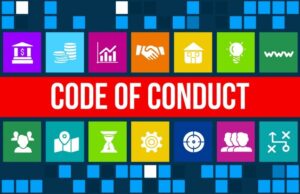
Course Manual 6: Ethics and Values
As leadership professionals, we are at the forefront of a transformative era, where the ability to navigate ethical complexities will significantly influence success and the impact of a person’s leadership. Ethical leadership is the heartbeat of an organization’s moral compass and encompasses several primary principles. In an age where reputation can be one of an organization’s most volatile assets, ethical leadership stands as a safeguard against the tides of skepticism and cynicism. Ethical leaders play a pivotal role in embedding values into their organizations’ DNA, creating a ripple effect that influences behavior at all levels.
Integrity
At its core, integrity in leadership embodies consistency between a leader’s words and actions, ensuring that promises made are promises kept and that principles guide practices. Integrity is the foundation upon which trust is built in any relationship, including that between leaders and their teams. Once established, trust becomes a powerful catalyst for engagement, motivation, and loyalty, driving organizational success and resilience.
Leaders with integrity approach decision-making with a moral clarity that prioritizes the greater good over personal gain, ensuring decisions are respected, even by those adversely affected. A leader’s integrity also sets a tone that permeates the entire organization, cultivating a culture of honesty, respect, and ethical behavior, helping to attract and retain talent who value an environment where integrity is prized. In today’s digital and interconnected world, a leader’s and an organization’s reputation can be their most valuable asset or their greatest liability. Integrity acts as a safeguard, ensuring that actions taken today will not become tomorrow’s scandals.
Despite its critical importance, maintaining integrity can be challenging in the complex and pressure-filled landscape of modern leadership. The temptation to compromise on principles for short-term gains or under external pressures can be significant. Overcoming these challenges requires a steadfast commitment to one’s values and the courage to make difficult choices, even when they come with personal or professional costs.
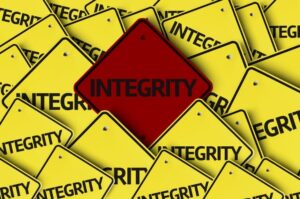
Integrity can be cultivated by regularly reflecting on one’s values, decisions, and actions, seeking regular feedback, leading by example, and implementing mechanisms for accountability, such as ethical guidelines and transparent decision-making processes.
As leadership professionals, embracing and nurturing integrity within yourselves and your organizations is a continuous journey, one that demands vigilance, courage, and a deep commitment to ethical excellence. By prioritizing integrity, you pave the way for sustainable success, earning the respect and loyalty of those you lead and serving as a beacon of ethical leadership in an increasingly complex world.
Accountability
Accountability is a pivotal force that extends beyond the mere acceptance of responsibility for one’s actions; it embodies a leader’s commitment to upholding standards, delivering on promises, and addressing the consequences of their decisions, both good and bad. It is fundamental in establishing a leader’s legitimacy and in building a strong foundation that enables teams to thrive.
At its root, accountability fosters trust. When leaders openly take responsibility for their actions and the performance of their team, it builds confidence among team members and stakeholders, creating a secure and transparent organizational climate. Accountability promotes high performance, by setting clear expectations and aligning them with the organization’s goals, motivating individuals to fully own their roles and contributions. Accountable leaders are more deliberate and thoughtful in their decision-making processes, weighing the consequences of their decisions carefully, leading to more informed and balanced outcomes. Accountability also ensures that leaders adhere to moral and ethical standards in their conduct and decision-making, serving as role models for others within the organization.
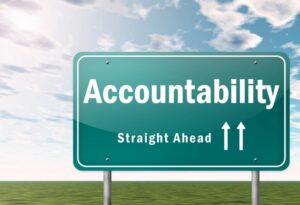
While the importance of accountability is widely recognized, practicing it can present challenges, particularly in complex situations where outcomes are influenced by factors beyond one’s control. Additionally, the fear of repercussions can sometimes lead to a culture where mistakes are hidden, rather than learned from. Overcoming these challenges requires a supportive environment where accountability is viewed not as a mechanism for assigning blame but as a tool for learning and improvement.
Cultivating accountability can be accomplished with several approaches, including setting clear expectations; modeling accountability; providing support and resources to one’s team; fostering open communication; and celebrating successes, while learning from failures. By embracing accountability, leaders not only enhance their credibility and the trust placed in them but also inspire their teams to adopt a similar stance of responsibility and openness.
Fairness
Fairness involves treating all individuals with respect, considering their perspectives, and making judgments that are not only unbiased but also reflective of the diverse needs and contributions of team members. It is about applying consistent standards in evaluating performance, recognizing achievements, and addressing issues, ensuring that every decision is grounded in ethical principles and a deep sense of justice.
Fairness is a critical driver of trust and respect in any relationship. When team members believe that their leader is fair, they are more likely to trust their leadership and feel respected and valued. Fair leadership practices encourage stronger team cohesion and collaboration, fostering a sense of belonging, leaders can create a harmonious work environment where cooperation and mutual support thrive. Employees who perceive their workplace as fair are also more engaged and motivated, knowing that their contributions will be recognized and rewarded appropriately. Fairness is foundational to ensuring all voices are heard and valued, regardless of background, identity, or perspective, enriching the organizational culture and driving innovation.

Despite its importance, practicing fairness can be challenging in the face of unconscious biases, complex organizational dynamics, and conflicting stakeholder interests. Leaders must navigate these challenges with wisdom and sensitivity, ensuring that their actions and decisions reflect a genuine commitment to equity and justice. This often requires ongoing self-reflection, education, and a willingness to listen and adapt.
When cultivating fairness, leaders should strive to acknowledge and address individual and team biases; establish clear criteria for making decisions; encourage open and honest communication; actively seek feedback and input from a diverse range of team members; and consistently model fairness in one’s own behavior.
Embracing and embodying the principle of fairness is crucial for building inclusive, high-performing teams. By prioritizing fairness, you can inspire a legacy of ethical leadership that not only achieves organizational goals but also contributes to a more just and equitable society.
Respect
Respect goes beyond the mere acknowledgment of another’s position or title, embedding itself deeply in the way leaders perceive, interact with, and value their team members and stakeholders. Respect encompasses recognizing the inherent worth and potential of every individual, valuing diversity of thought and experience, and fostering an environment where everyone feels valued and empowered. A respectful leader is one who treats others with dignity and kindness, regardless of their status or role within the organization.
Respect is a critical driver of trust and loyalty. When team members feel respected, they are more likely to develop a deep sense of trust in their leaders, leading to stronger commitment and loyalty to the organization. Respectful leadership practices contribute to healthier team dynamics, encouraging open communication, reducing conflict, and facilitating an environment where everyone feels comfortable sharing their ideas and opinions. A culture of respect is fundamental to achieving inclusion and diversity within organizations, allowing leaders to harness a wider range of perspectives and solutions. Organizations led by principles of respect often see improved performance and productivity, leading to higher job satisfaction, increased engagement, and a greater willingness among employees to go above and beyond in their roles.

While the concept of respect may seem straightforward, its application can be complex in the diverse and fast-paced environment of modern organizations. Leaders must navigate personal biases, cultural differences, and interpersonal conflicts, all of which can pose challenges to consistently practicing respect. Overcoming these challenges requires a commitment to personal growth, empathy, and cultural competence.
Respect is cultivated through several approaches, including practicing active listening; embracing and celebrating the diversity within one’s team; ensuring communication is clear, open, and considerate; modeling respectful behavior in all interactions; and facilitating a culture where constructive feedback is shared respectfully and received openly. By prioritizing respect, you create an empowering environment where trust flourishes, diversity is celebrated, and collective excellence is achieved.
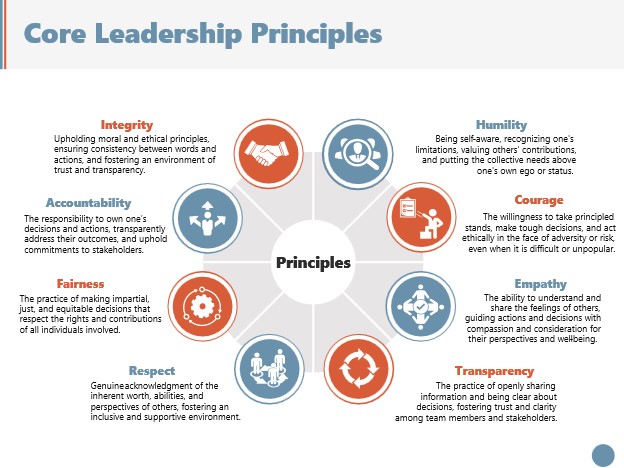
Transparency
In an era where information is abundant and stakeholders are savvy, the demand for transparent leadership has never been higher. Transparency in leadership is characterized by openness, communication, and candor in the leader’s relationship with team members, stakeholders, and the broader community. A transparent leader does not shy away from difficult conversations; instead, they approach them with honesty and integrity, ensuring that everyone affected by the organization’s actions has access to the information they need to understand and engage with those actions.
Transparency is the cornerstone of trust. When leaders are open about their decisions and the reasons behind them, people are more likely to trust their judgment and feel confident in their leadership, enhancing the organization’s internal and external reputation and credibility. Transparent leadership practices foster a sense of involvement and belonging among team members, resulting in employees feeling more engaged and committed to contributing to its success. Openness in sharing information and challenges encourages a culture of collaboration and innovation, inviting diverse perspectives and more collaborative problem-solving. Transparency also ensures that both successes and failures are acknowledged, promoting a culture of continuous improvement.
While the benefits of transparency are clear, achieving it can be challenging in practice. Concerns about revealing sensitive information, fear of negative reactions to sharing challenges or failures, and the difficulty of changing established organizational cultures can all act as barriers to transparency. Overcoming these challenges requires a deliberate strategy, courage, and the commitment to prioritize long-term trust and integrity over short-term comfort.

Despite the challenges, cultivating transparency can be accomplished through several effective strategies. These include establishing regular channels of communication; being vulnerable and open about the challenges the organization faces; ensuring consistent communication that aligns with the organization’s practices; balancing transparency with the need to protect sensitive information and individual privacy; and modeling transparency in one’s behavior, thereby setting the tone for others to follow.
Remember that an organization’s strength lies not in the perfection of its actions but in the honesty and openness with which it approaches its mission and engages with its stakeholders.
Empathy
Empathy in leadership is the capacity to understand and share the feelings of others, to see the world from their perspectives, and to use this understanding to guide actions and decisions. Empathy is not merely about being nice; it’s a strategic leadership competence that enables leaders to connect with their team members on a human level, building relationships based on understanding and trust. It involves active listening, openness to diverse perspectives, and the ability to communicate with sensitivity and respect.
Empathetic leaders inspire trust and loyalty, not through authority, but through their genuine concern for the well-being of their team members, enhancing the leader’s credibility and fostering team unity. Empathy improves communication by encouraging leaders to listen actively and respond with sensitivity, clarifying misunderstandings, resolving conflicts, and strengthening team relationships. When employees feel understood and supported by empathetic leaders, they are more engaged, motivated, and committed to their work, translating into higher productivity and innovation. Navigating organizational change requires understanding and addressing the concerns and emotions of those affected. Empathetic leaders are better equipped to manage resistance, motivate their teams, and guide them through transitions with compassion and resilience.

Despite its importance, embodying empathy can be challenging in a fast-paced, results-driven business environment. Leaders may struggle with balancing empathy with the need to make tough decisions, managing their own emotional responses, and ensuring that empathy leads to actionable outcomes. Developing true empathy requires continuous effort, self-awareness, and the willingness to step outside one’s comfort zone.
There are several different methods leaders can employ to fully develop a level of empathy that resonates. Actively listen, fully concentrating on what is being said, rather than just passively hearing the message; prioritize understanding others’ viewpoints and feelings without immediately jumping to conclusions or offering solutions; share one’s own experiences and challenges authentically; actively seek out and value different perspectives and experiences within your team; and be aware of personal biases and judgments that may hinder one’s ability to empathize with others.
Empathy in leadership is more than a soft skill; it is a critical leadership competency. By prioritizing empathy, you can foster an environment of trust, inclusivity, and resilience, empowering your organization to navigate the complexities of the modern business world with grace and humanity.
Courage
Courage in leadership is more than an act of bravery; it encompasses the resolve to make difficult decisions, stand by one’s convictions, and take principled actions even in the face of personal or professional risk. Courageous leadership is characterized by a leader’s willingness to confront challenges head-on, champion change, and address unethical behavior or practices without wavering. It involves stepping out of comfort zones, challenging the status quo, and persisting in the face of adversity or uncertainty. A courageous leader is not fearless but chooses to act rightly even when afraid or under pressure, demonstrating a commitment to ethical principles and organizational values.
Courage empowers leaders to uphold ethical standards, make tough ethical decisions, and address unethical actions, thereby fostering a culture of trust and respect. Courageous leaders inspire their teams to embrace change, explore new ideas, and overcome obstacles to progress. Facing and overcoming challenges with courage builds resilience, crucial for navigating the inevitable ups and downs of business. Leaders who demonstrate courage, especially in difficult situations, earn credibility and admiration from their teams and stakeholders, which is essential for motivating others to follow and support the leader’s vision.
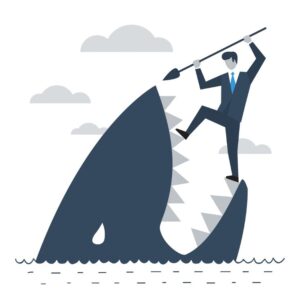
Practicing courage in leadership is often easier said than done. Leaders may face internal conflicts, fear of failure, resistance from within the organization, and the personal risk associated with standing up for what is right. Overcoming these challenges requires a deep sense of purpose, self-awareness, and an unwavering commitment to one’s values and the well-being of the organization and its people.
Courage is like a muscle, requiring regular use by employing key strategies. These include understanding your core values and the purpose behind your leadership; recognizing that vulnerability is a strength, not a weakness; surrounding yourself with mentors and advisors who embody courageous leadership; viewing failures as opportunities for learning and growth rather than setbacks; and promoting an environment where team members feel safe to express their ideas, concerns, and feedback.
Courageous leadership is not only about facing what lies ahead but also about inspiring those around you to rise to their fullest potential, creating a legacy of integrity, strength, and transformation.
Humility
Far from being a sign of weakness, humility in leadership embodies the strength of character, fostering an environment of respect, learning, and collective achievement. It involves recognizing one’s limitations, valuing the contributions of others, and being open to feedback and new ideas. It goes farther than the mere act of modesty; it is a profound acknowledgment of the interconnectedness of all members within an organization and the realization that leadership is a service to others. Humble leaders put the needs of their team and the organization above their own, to admit mistakes, and to share credit for successes.
Humble leaders recognize that they do not have all the answers and are open to learning from everyone at every level of the organization, fostering a culture of curiosity and continuous improvement. Humility encourages the recognition and appreciation of each team member’s contributions, facilitating a collaborative environment where ideas are freely shared, and diverse perspectives are valued. When leaders demonstrate humility, they build trust and earn the respect of their team members. Humble leaders are more likely to value diversity and promote inclusivity, recognizing the strength that comes from varied perspectives and backgrounds, enhancing creativity, problem-solving, and innovation. By being open to feedback and considering multiple perspectives, humble leaders can make more informed and balanced decisions that are more readily accepted and supported by the team.
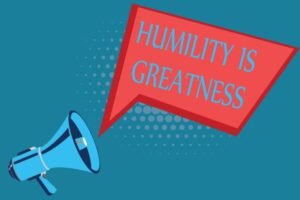
Practicing humility in leadership can be challenging, especially in traditional corporate cultures that often equate leadership with assertiveness and control. Overcoming the misconception that humility is a weakness rather than a strength requires a shift in mindset and a commitment to leading by example. Additionally, maintaining humility while exercising authority and making tough decisions can be a delicate balance to achieve.
Cultivating humility takes more effort than typically anticipated, particularly in certain environments that are more challenging. Regularly use self-reflection to understand how your actions and decisions impact others; openly acknowledge mistakes, viewing them as learning opportunities; actively seek feedback from team members and stakeholders, and be willing to act on it; make it a habit to share successes with your team and give credit where it’s due; and actively listen to others, valuing their input, and considering their viewpoints in decision-making processes.
Humility is not about diminishing one’s strength or authority but about leveraging these qualities in a way that uplifts and empowers others.

Case Study: Jacinda Ardern: A Paradigm of Ethical Leadership
Jacinda Ardern, the former Prime Minister of New Zealand, stands out as a quintessential example of ethical leadership, embodying principles such as integrity, fairness, respect, accountability, humility, courage, transparency, and empathy. Ardern’s leadership style, particularly during crises, provides a rich case study for leadership professionals seeking to understand the application of ethical principles in real-world contexts.
Ardern’s approach to leadership was grounded in honesty and transparency. Throughout her tenure, she communicated openly with the public, especially during the COVID-19 pandemic. Her regular, straightforward briefings and the clear presentation of data exemplified her commitment to transparency, earning her both national and international praise.

Her leadership was marked by a steadfast commitment to fairness and inclusivity. She championed policies aimed at reducing child poverty and improving the well-being of New Zealand’s most vulnerable populations. Ardern’s respect for diversity and inclusivity was also evident in her response to the Christchurch mosque shootings in March 2019. She immediately took action to unify the country and showed unprecedented support for the Muslim community, demonstrating deep respect for cultural diversity and the dignity of all citizens.
Ardern demonstrated accountability by taking decisive action in the face of adversity. Following the Christchurch attack, she swiftly enacted gun reform laws, holding herself and her government responsible for ensuring such a tragedy would not happen again. Her willingness to make tough decisions and stand by them is a testament to her strong sense of accountability.
Her humility was evident in her collaborative approach to governance and her ability to listen and change course when necessary. She was not afraid to admit when she didn’t have all the answers, and she frequently deferred to experts, especially during the pandemic, showcasing her humble approach to leadership.
She displayed remarkable courage in her leadership, tackling challenging issues head-on. Her response to the Christchurch shootings, decisive actions on climate change, and her firm stance on women’s rights and child welfare issues exemplify her bravery in addressing tough and often controversial issues.
Perhaps one of Ardern’s most recognized qualities was her empathy. Her empathetic leadership style was particularly visible in her response to national tragedies, where she showed genuine compassion and solidarity with the victims and their families. Her ability to connect with people on a personal level, understanding their pain and concerns, made her leadership deeply impactful.
Jacinda Ardern’s tenure as Prime Minister of New Zealand is a compelling example of how ethical leadership can not only guide a nation through crises but also inspire a global audience. Her ability to embody and balance the principles of ethical leadership has left a lasting imprint on the world stage, offering valuable insights for leaders across all sectors striving to lead with integrity, compassion, and courage.

Exercise 6.1 Ethical Leadership Challenge
1. Group formation: Create two equal groups of participants.
2. Introduction: Place eight scenario cards face down in the center of the table (each card has a real-life business scenario representing each of the eight ethical leadership principles).
3. The Quick-Fire Round: A participant from each group picks a scenario card from the pile, reads it aloud, and then places it in the center of the table. The groups then each discuss and propose a solution that best reflects the ethical leadership principle challenged by the scenario.
• A highly valued team member’s performance suddenly drops. Upon investigation, the leader learns that the employee is going through a difficult personal situation, affecting their work.
• The group quickly acknowledges the principle of empathy as central to addressing the situation. They emphasize the importance of understanding and supporting the team member during this challenging time.
• The group consensus is that the leader should have a private, compassionate conversation with the employee to express concern and offer support. Suggestions include flexible working arrangements, such as temporary remote work or reduced hours, and providing access to counseling services if available. The group also recommends checking in regularly with the employee to monitor their well-being and progress, ensuring they don’t feel isolated or overwhelmed.
4. After discussing each scenario, one person from each of the two groups reads the scenario, identifies the principle, and shares the solution.
5. Repeat as time allows.
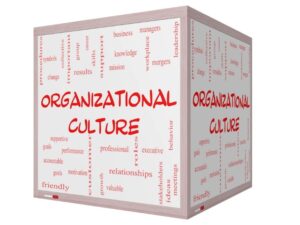
Course Manual 7: Organizational Culture
Organizational culture is not just an abstract concept; it’s the very fabric that weaves together the collective behaviors, values, and practices of your team. It influences every email sent, every decision made, and every strategy implemented. As leaders, you wield the extraordinary power to sculpt this invisible yet palpable force. Organizational culture is the lifeblood that fuels your team’s spirit, drives performance, and shapes your legacy. It’s about crafting an environment where innovation thrives, values are lived, and every member’s contribution is celebrated.
Your role as a leader in this creative process cannot be overstated. You are the architects of a culture that either elevates to new heights or anchors to outdated paradigms. Through your vision, actions, and daily interactions, you set the tone, embody the values, and build the framework within which teams operate.
Early Roots of Organizational Culture
The core elements of organizational culture have been developed and refined by numerous scholars and practitioners over time, rather than being attributed to a single individual. However, one of the most influential frameworks in understanding organizational culture was proposed by Edgar Schein in the 1980s. Schein, a professor at the MIT Sloan School of Management, identified three levels of organizational culture: artifacts (visible organizational structures and processes), espoused values (strategies, goals, philosophies), and underlying assumptions (unconscious, taken-for-granted beliefs, perceptions, thoughts, and feelings). Schein’s work laid the foundation for much of the subsequent research and thinking around organizational culture, emphasizing its complexity and depth. Over time, various experts have expanded on these ideas, identifying seven specific elements.
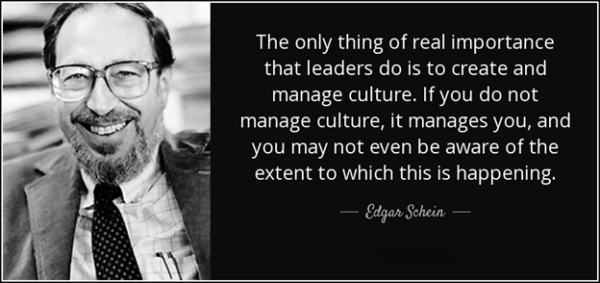
The Seven Elements of Organizational Culture
Organizational culture is composed of seven specific elements that interact to define the unique character of each organization. These elements include:
1. Values and Beliefs: The core principles and ideals that serve as the foundation of the organizational ethos, guiding behavior and decision-making.
2. Norms and Behaviors: The shared habits and practices that are accepted and expected within the organization, outlining how individuals conduct themselves and interact with others.
3. Communication Patterns: The ways in which information is disseminated and shared across the organization, including the channels used and the openness of dialogues.
4. Leadership Style: The approach leaders take to guide, motivate, and manage their teams, which can significantly influence the organizational climate and culture.
5. Decision-Making Processes: The methods by which decisions are made within the organization, highlighting who has input and how these decisions align with organizational values.
6. Rituals and Ceremonies: The formal and informal events that celebrate, reinforce, or exemplify the culture of the organization, from everyday routines to annual celebrations.
7. Physical and Social Environment: The physical workspace and the social atmosphere that it fosters, contributing to the sense of identity and belonging among members.
Understanding and intentionally shaping these elements are critical for leaders seeking to cultivate a positive, cohesive, and high-performing organizational culture. Each element plays a pivotal role in how the organization operates, how its members interact, and ultimately, how successfully it achieves its goals.

Case Study: Zappos: A Symphony of Organizational Culture Elements
Zappos, an online shoe and clothing retailer acquired by Amazon, is renowned for its vibrant and unique organizational culture. This case study explores how the seven specific elements of organizational culture – values and beliefs, norms and behaviors, communication patterns, leadership style, decision-making processes, rituals and ceremonies, and the physical and social environment – interact harmoniously to create a culture that not only defines Zappos but also drives its success.

• Values and Beliefs: Zappos’ foundational value is delivering outstanding customer service, which permeates every aspect of its operations. The company’s ten core values, including “Deliver WOW Through Service,” “Embrace and Drive Change,” and “Create Fun and A Little Weirdness,” guide behavior and decision-making at every level.
• Norms and Behaviors: These core values translate into specific behaviors and practices, such as going above and beyond in customer interactions, encouraging employees to take initiative, and fostering a fun workplace. Zappos empowers its employees to make judgment calls to satisfy customers, reflecting its deep commitment to service and innovation.
• Communication Patterns: Open and transparent communication is pivotal at Zappos. The company maintains an open office environment, where even the CEO doesn’t have a separate office, facilitating direct communication and collaboration across the organization.
• Leadership Style: Leadership at Zappos is inclusive and empowering. Leaders focus on serving their teams, embodying the company’s core values, and fostering a sense of autonomy and purpose among employees. This approach is encapsulated in their adoption of Holacracy, a system of self-organization that distributes decision-making through self-managed teams rather than through a traditional managerial hierarchy.
• Decision-Making Processes: Zappos emphasizes decentralized decision-making. By adopting Holacracy, the company allows teams to make decisions that directly impact their work, leading to faster innovation and greater accountability. This reflects a trust in employees’ judgment and a commitment to living out its values of empowerment and change.
• Rituals and Ceremonies: Zappos is famous for its unique culture-centric rituals, including company-wide parades, themed office parties, and the celebrated initiation process for new hires, which includes offering new employees money to quit after the first week of training, ensuring only those truly aligned with the company’s values and culture stay.
• Physical and Social Environment: The physical layout of Zappos’ headquarters in Las Vegas is designed to maximize employee interactions and to foster a sense of community and fun. It features an open floor plan, a nap room, and a large cafeteria space for socializing, all of which reinforce the company’s values of openness, fun, and collaboration.
The interplay of these seven elements at Zappos has cultivated an organizational culture that not only attracts talent but also inspires loyalty and drives performance. It demonstrates how a clear set of values, translated into everyday behaviors and supported by leadership practices, communication, and social rituals, can create a powerful and cohesive culture. This culture becomes the company’s brand, inside and out, attracting customers and employees alike who resonate with its values and way of life. Zappos’ success story underscores the importance of each element of organizational culture and the synergistic effect they have when aligned and integrated into the fabric of the organization.

Exercise 7.1 Navigating Cultural Dissonance
1. Read the Case Study of TechStart Inc.: Reflect on the company’s struggles with the misalignment of its stated values and actual practices, leading to various organizational challenges.
• Values and Beliefs vs. Norms and Behaviors
• Communication Patterns
• Leadership Style
• Decision-Making Processes
• Rituals and Ceremonies
• Physical and Social Environment

The Leader Toolkit
For a leader, organizational culture is more than a backdrop to daily operations; it serves as both a guiding light and a comprehensive toolkit, significantly shaping the way you lead, motivate, and manage teams. This profound influence necessitates a thoughtful approach to leveraging organizational culture, not just in understanding its components but in actively employing strategies that can positively transform it. Implementing these strategies involves a nuanced blend of leadership actions, team engagement practices, and organizational policies that collectively foster a vibrant, positive, and productive workplace culture.
1. Shaping Behavior: At the heart of influence is the leader’s ability to shape behavior, a critical aspect that molds the team’s approach to collaboration, communication, and conflict resolution. This shaping of behavior does not occur in isolation but is deeply embedded in the organization’s culture, setting the expectations for how team members interact with one another and the larger organizational ecosystem.

• Setting the Stage for Collaboration: Boost collaboration by making it a clear expectation and integrating it into daily routines. Create spaces and opportunities for team members to work together, share ideas, and build on each other’s strengths. Celebrating team achievements emphasizes the value of working together towards shared objectives.
• Enhancing Communication: Model and expect open, honest, and respectful communication. Encourage a culture where feedback is welcomed, and difficult conversations are handled with empathy. Ensuring everyone feels heard minimizes misunderstandings and promotes a healthy flow of information.
• Navigating Conflict with Integrity: Conflicts are natural, but how they’re managed can strengthen or weaken a team. Lead by example, focusing on fair solutions and understanding rather than placing blame. Encourage seeing conflicts as chances to grow and strengthen teamwork, embedding a resilient and cooperative culture.
• Aligning Actions with Organizational Values and Norms: Align every action, decision, and policy with your organization’s values. This consistency between what’s said and done reinforces organizational culture and clarifies expectations for your team. Leaders should embody these values, demonstrating through their actions the cultural ideals of the organization.
2. Driving Performance: A leader’s approach to leveraging cultural elements such as recognition, rituals, and motivational practices plays a pivotal role in fostering an environment where high performance is not just expected but passionately pursued.

• Recognition as a Cultural Cornerstone: Make recognition a part of the organization’s culture by celebrating efforts and achievements in ways that reflect the organization’s values. Publicly acknowledging successes, offering personalized thanks, and tying rewards to organizational goals not only show appreciation but also motivate behaviors that lead to further success. This approach fosters a sense of belonging and reinforces the importance of everyone’s contributions.
• Rituals to Reinforce Identity and Purpose: Rituals are key for leaders to strengthen a team’s sense of unity and shared purpose. Regular events like weekly meetings to celebrate wins, annual retreats for strategic planning, or casual get-togethers enhance team cohesion. These rituals remind team members of their shared mission and the values that drive their work, deepening their connection to the organization’s culture.
• Motivational Practices to Inspire Action: Boost motivation by connecting daily tasks and goals with the organization’s larger vision, making every effort feel meaningful. Setting achievable yet ambitious goals, fostering opportunities for personal growth, and offering constructive feedback are ways to ensure motivation is driven by the team’s collective aspirations and the organizational culture, rather than external rewards alone.
• Aligning Practices with Organizational Culture: Align performance-driving practices with the organization’s culture. It is important to understand the current culture deeply and introduce practices that embody and reinforce desired cultural qualities. This alignment ensures that the way work is done and celebrated enriches the organizational culture, creating a positive feedback loop that drives performance and cultural integrity.
3. Facilitating Adaptation: Facilitating the adaptation of new team members is a deliberate process of cultural integration and alignment. This involves not only communicating the explicit and implicit norms of the organization but also embodying the values and behaviors that define it.

• Communicating Culture: Explain the core values, beliefs, and what the organization stands for, emphasizing the importance of each member’s role in achieving collective goals. This guidance should be a part of everyday interactions and decisions, offering a consistent insight into the organizational ethos to every newcomer.
• Modeling Desired Behaviors: Exemplify the behaviors and attitudes expected within the team. Acting in ways that reflect the organization’s values in every situation not only reinforces these norms but also shows new members how to integrate these principles into their own roles, guiding them through example.
• Creating Inclusive Environments: Welcoming new members effectively means building an inclusive space where diversity is embraced, and everyone feels they belong. Promote an environment that encourages open communication, teamwork, and values the unique perspectives of each member. Such an approach demonstrates that the organization’s culture thrives on dynamic contributions and collective growth.
• Supporting Personal and Professional Growth: Facilitate the integration of newcomers by investing in their development within the organization. Identify opportunities that match their skills and aspirations and provide them with the tools and challenges to grow. This commitment not only helps them adapt but also embeds a culture of ongoing development and achievement.
• Navigating and Negotiating Cultural Boundaries: Aid new members in understanding the organization’s social and professional fabric. Offer guidance on navigating the complexities of the workplace, including understanding power dynamics and networking. This helps newcomers integrate smoothly, fostering a sense of belonging and effectiveness within their new roles.
4. Fostering Engagement and Retention: Fostering engagement and retention is a nuanced art in the realm of leadership, requiring a blend of insight, intentionality, and the strategic use of cultural tools. A leader’s cultivation of an environment that mirrors the organization’s positive cultural attributes plays a pivotal role in not just attracting talent but also ensuring its flourishing and longevity.

• Strategic Recognition and Appreciation: Boost morale and make your team feel valued by regularly recognizing their hard work and achievements. Use team meetings, personalized thank-you notes, and value-driven awards to affirm their contributions, strengthening their sense of belonging and value.
• Cultivating a Culture of Feedback: Foster a culture where feedback flows freely for everyone’s growth. Implement regular reviews, encourage open discussions, and maintain an open-door policy. This nurtures employee development and aligns it with the organization’s goals.
• Empowering Autonomy and Ownership: Drive engagement by letting team members take charge of their work. Support their autonomy with trust and clear guidelines, allowing them to innovate and own their results. This encourages risk-taking and deepens their commitment to the work.
• Investing in Professional Development: Show your team that their future matters by providing opportunities for growth. Offer training, mentorship, and paths for advancement that resonate with their career goals, cultivating a culture of continuous learning and development.
• Building Community and Connection: Create a supportive and connected team environment by organizing activities that go beyond work. Team-building events, social gatherings, and community projects enhance relationships, boosting job satisfaction and loyalty.
• Prioritizing Work-Life Harmony: Promote a healthy balance between work and personal life with flexible work options and considerate scheduling. This approach prevents burnout and signals that you value your team members’ well-being beyond their professional contributions.
5. Championing Change: Leaders are often at the forefront of cultural evolution within an organization. Leading change requires more than vision; it demands a deep connection with the very fabric of the organization’s culture and a deliberate use of tools and strategies to mold this culture in alignment with future aspirations.
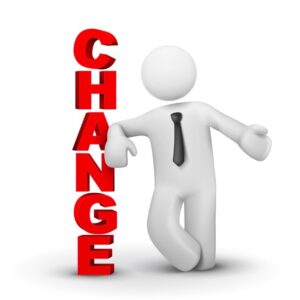
• Visionary Leadership: Share a clear and compelling vision that aligns with your organization’s core values, using clarity and passion to inspire everyone to move towards this shared goal.
• Strategic Storytelling: Use storytelling to connect emotionally with your team, sharing success stories and visions of the future that make change feel like a shared, exciting journey.
• Modeling the Change: Be the change you want to see. Adapt your behavior, decisions, and communication to mirror the cultural shift you’re aiming for, setting a live example for your team.
• Building Change Coalitions: Within your team, gather a group of enthusiastic change agents who believe in your vision and can influence others. Their support will amplify your efforts and help spread the commitment to change.
• Facilitating Open Dialogue: Encourage open discussions where team members can voice concerns, ask questions, and contribute ideas. This makes the change process inclusive and builds a stronger commitment across the board.
• Providing Support and Resources: Recognize the challenges of change by offering the necessary training, tools, and support. Showing you’re invested in your team’s success eases the transition and boosts morale.
• Celebrating Milestones: Acknowledge and celebrate key achievements along the change journey. This keeps morale high, acknowledges hard work, and reinforces the commitment to the new direction.
• Aligning Decisions with Cultural Values: Make decisions that reflect your organization’s values, using them as a guide to ensure actions strengthen rather than undermine your cultural foundation.
• Cultivating a Culture of Inclusivity in Decision-Making: Include diverse perspectives in decision-making processes. This not only enriches outcomes but also reinforces a culture that values diversity and collaboration.
• Promoting Transparency: Be open about the how’s and whys of your decisions. Sharing challenges and thought processes builds trust and reinforces a culture of transparency and accountability.
• Encouraging Innovative Problem-Solving: Foster a culture that values creative thinking and risk-taking. Support innovative approaches and reward creative solutions, strengthening a culture that embraces change.
• Facilitating Learning from Decisions and Outcomes: Use decisions and their outcomes as learning opportunities. Sharing these lessons organization-wide encourages a culture of continuous improvement and resilience.
• Modeling Ethical Decision-Making: Prioritize ethics in your decision-making, considering the wider impact on stakeholders and society. This commitment to ethics strengthens a culture of integrity and responsibility.
6. Decision-Making and Problem-Solving: An organization’s cultural framework influences how decisions are made, and problems are approached, ensuring that each decision and solution not only addresses immediate needs but also reinforces the desired cultural ethos.

• Aligning Decisions with Cultural Values: Every decision should reflect your organization’s core values. Use these values as a guide to ensure choices not only solve issues but also strengthen your culture. Reference these values when deciding and explain how choices align with them.
• Cultivating a Culture of Inclusivity in Decision-Making: Involve team members of diverse backgrounds in decisions. This inclusion brings more insights and fosters a culture that values diversity and teamwork.
• Promoting Transparency: Be open about how and why decisions are made. Share the challenges and reasoning behind choices to build trust and encourage feedback, showing that honesty is key in your culture.
• Encouraging Innovative Problem-Solving: Encourage creativity in solving problems. Use design thinking, provide a safe space for trial and error, and celebrate creative solutions to foster a culture that values innovation.
• Facilitating Learning from Decisions and Outcomes: Treat every outcome as a learning opportunity. Share what’s learned from successes and failures alike, promoting a culture focused on continuous improvement and growth.
• Modeling Ethical Decision-Making: Always consider the impact of your decisions on people, the environment, and society. By prioritizing ethical considerations, you strengthen a culture of integrity and responsibility.
Leveraging the strategies in a leader’s toolkit profoundly impacts organizational culture. These strategies are not isolated tools but are interconnected, with overlapping techniques that amplify their effectiveness. For instance, shaping behavior through clear expectations and norms directly supports the facilitation of adaptation for new members, ensuring they are integrated into the culture seamlessly. Similarly, driving performance with recognition and rituals reinforces fostering engagement and retention, as both rely on acknowledging individual and team contributions, thus creating a positive work environment that motivates and retains talent.
By embodying and advocating for change, leaders ensure that decisions reflect and reinforce the desired culture, leading to a dynamic yet consistent organizational identity. These overlaps—between fostering an inclusive environment for adaptation, enhancing performance through motivation, and steering the organization through ethical decision-making—highlight the synergistic nature of the toolkit. Each strategy reinforces the others, creating a cohesive culture that is resilient, adaptive, and aligned with organizational goals.
The integrated application of these strategies enables leaders to mold a culture that not only supports strategic objectives but also nurtures a shared sense of purpose and belonging. The power of these overlapping strategies lies in their ability to collectively shape an organizational culture that is vibrant, inclusive, and conducive to growth, innovation, and success. Through thoughtful implementation and alignment of these tools, leaders can profoundly influence the organizational culture, making it a cornerstone of competitive advantage and a beacon of shared values and aspirations.

Exercise 7.2 Assessing Your Leadership Impact on Organizational Culture

Course Manual 8: Strategic Leadership
Strategic leadership is the process of using well-considered tactics and strategies to communicate a vision for a team or organization and motivating individuals to pursue actions that align with this vision and strategic goals. It involves guiding a team or organization toward long-term success through effective planning, foresight, and management of resources and people. Strategic leadership relies on a unique blend of analytical skills to assess both the internal and external environments, creativity to envision new possibilities, and interpersonal acumen to motivate and mobilize teams toward common goals.
Why Strategic Leadership?
Organizations today confront a myriad of challenges, ranging from technological advancements and market shifts to geopolitical uncertainties and social changes. Strategic leaders excel at forecasting future trends and preparing to not only adapt but thrive in such dynamic environments. They cultivate a culture of continuous learning and innovation to ensure relevance and competitiveness. Additionally, strategic leadership is instrumental in fostering an engaged and motivated workforce. Through clear communication of the vision and each team member’s role in its realization, strategic leaders enhance morale, commitment, and productivity. They empower team members by granting autonomy to explore new ideas, make decisions, and take calculated risks within the framework of strategic objectives.
Furthermore, effective strategic leadership encourages collaboration and cross-functional synergy by dismantling silos and promoting open communication. This collaborative approach enhances problem-solving abilities, accelerates innovation, and fosters cohesive operations toward strategic goals. Ultimately, strategic leadership transcends day-to-day operations, guiding organizations toward sustainable growth, innovation, and adaptability. It serves as a cornerstone in leadership development, equipping leaders with the mindset and skills necessary to navigate complexity, drive change, and ensure team alignment and motivation. By imparting the principles of strategic leadership, leaders are prepared to navigate the intricate landscape of the modern business world.
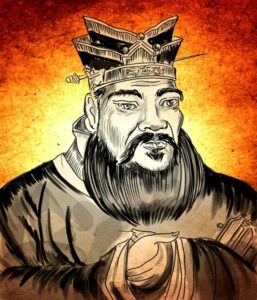
History of Strategic Leadership
Strategic leadership’s journey began with ancient military strategies, illustrated by leaders such as Sun Tzu, who in the 5th century BC wrote “The Art of War,” emphasizing strategy, leadership, and enemy understanding, and Alexander the Great, whose conquests showcased the power of visionary leadership and strategic planning. This foundation was built upon during the Industrial Revolution, as figures like Frederick Taylor and Henry Ford introduced principles of scientific management and operational efficiency, adapting leadership to complex organizational structures. By the mid-20th century, the concept began to crystallize, with Peter Drucker’s emphasis on management by objectives and innovation marking a significant shift towards strategic leadership in a business context. The latter part of the 20th century saw the global economic landscape rapidly changing, necessitating strategic leadership to navigate increased competition and technological advancements. Scholars like Michael Porter and Henry Mintzberg contributed to this understanding by focusing on competitive strategy, the crafting and implementation of strategy by leaders, and the importance of adaptability and strategic thinking.
Fundamental Elements
Strategic leadership encompasses several key elements that work together to ensure leaders can effectively set direction, inspire action, and navigate the complexities of the modern business environment.
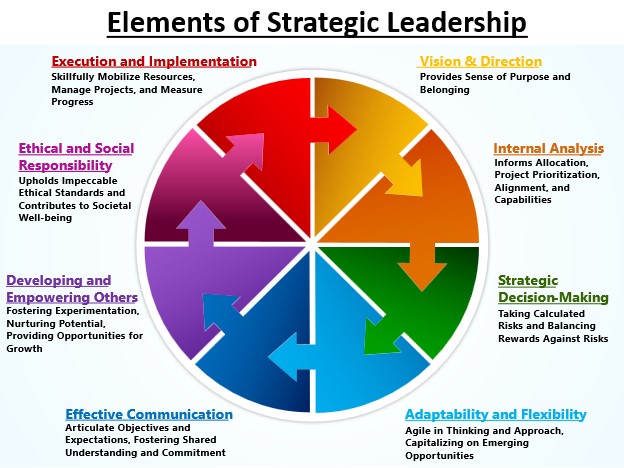
1. Vision and Direction: Strategic leadership embodies the art of guiding an
organization toward a bright and promising future. At the heart of strategic leadership lies the pivotal concept of Vision and Direction. Strategic leaders possess a unique ability to craft a clear and compelling vision that encapsulates what the organization aspires to achieve in the long term. This vision isn’t just a statement; it’s a beacon that lights the path for the entire organization, providing a sense of purpose and direction. What sets these leaders apart is their skill in articulating this vision in a manner that resonates deeply with employees, igniting their passions and motivating them to align their efforts towards these common objectives.
Implementation
• Immerse yourself in the current state and potential future of your team or organization to understand strengths, weaknesses, opportunities, and threats.
• Engage with diverse stakeholders for varied perspectives on what makes your team or organization unique.
• Reflect on these insights to craft a compelling, inspiring vision that sets a high but achievable standard, motivating others by demonstrating the impact of their work.
• Ensure the vision aligns with the organization’s core values to maintain authenticity and foster team connection.
• To effectively communicate the vision, use strategic communication techniques such as regular open dialogues, storytelling, and illustrating individual contributions to the broader goal.
• Demonstrate enthusiasm, commitment, and belief in the vision to inspire team engagement and foster a sense of ownership and commitment.
• Encourage feedback and discussions about the vision, emphasizing the importance of team input in the vision-alignment process.
2. Internal Analysis: Internal Analysis, a fundamental aspect of strategic leadership, involves a thorough examination of a team or organization’s internal landscape to assess its capabilities, resources, and vulnerabilities. This process entails delving deep into the core of the organization to identify inherent strengths and weaknesses, providing a foundation for realistic goal setting and strategy formulation. Strategic leaders utilize tools like SWOT analysis to systematically evaluate both tangible and intangible aspects, including technology, capital, organizational culture, employee skills, and leadership capabilities. The insights gained from internal analysis inform resource allocation, project prioritization, and capability development strategies, ensuring alignment with organizational objectives and enhancing overall effectiveness.

Implementation
• Embed internal analysis into strategic planning as a recurring, integral component.
• Initiate a regular review process for assessing organizational strengths, weaknesses, capabilities, and resources, conducted annually, bi-annually, or quarterly.
• Employ structured analytical tools for a detailed examination of both tangible and intangible assets.
• Foster a culture that values open communication and feedback, encouraging employees at all levels to share insights.
• Align resources and capabilities with strategic goals, which may include reallocating resources, investing in skill development, or refining processes.
• Monitor the effectiveness of strategic adjustments through key performance indicators and benchmarks.
• Implement a cyclical process of analysis, alignment, execution, and review to ensure strategies are based on a realistic understanding of capabilities and to adapt to changes in the competitive landscape.

Case Study: Procter & Gamble: Harnessing Internal Analysis for Strategic Advancement
Procter & Gamble (P&G), a global consumer goods powerhouse, exemplifies the effective implementation of internal analysis within its strategic leadership model. By consistently evaluating its internal landscape, P&G navigates the competitive consumer goods market with resilience and innovation, staying at the forefront of industry trends and consumer demands.

• Embedding Internal Analysis into Strategic Planning: Before launching new products or entering new markets, P&G conducts thorough internal assessments to understand its capabilities, resources, and potential vulnerabilities. This ensures that strategic decisions align with the organization’s strengths and opportunities, driving sustainable growth and market success.
• Regular Review Process: P&G establishes a bi-annual review process to assess its organizational strengths, weaknesses, capabilities, and resources, allowing P&G to stay responsive to changes in consumer preferences and market dynamics. By conducting frequent internal assessments, P&G remains proactive in addressing challenges and capitalizing on emerging opportunities.
• Employment of Structured Analytical Tools: P&G utilizes structured analytical tools like SWOT analysis to conduct detailed examinations of both tangible and intangible assets. For example, when considering the launch of a new product line, P&G assesses its manufacturing capabilities, brand reputation, and potential market challenges using SWOT analysis. This systematic evaluation informs strategic decision-making and resource allocation, ensuring efficient and effective execution.
• Fostering a Culture of Open Communication and Feedback: P&G encourages employees at all levels to share insights and perspectives, fostering a culture that values open communication and feedback. This ensures that internal analysis is enriched with diverse viewpoints, leading to more robust strategic decisions. Additionally, P&G’s innovation hubs and cross-functional teams facilitate collaboration and idea exchange, driving continuous improvement and adaptation.
• Alignment of Resources and Capabilities with Strategic Goals: P&G drives innovation and market leadership by aligning its resources and capabilities with strategic goals. When P&G identified a growing demand for sustainable products, the company invested in research and development to enhance its eco-friendly product lines. This strategic alignment enabled P&G to meet consumer expectations and maintain its competitive edge in the consumer goods industry.
• Monitoring Effectiveness through Key Performance Indicators: P&G monitors the effectiveness of its strategic adjustments through key performance indicators (KPIs) and benchmarks. For example, when launching a new marketing campaign, P&G tracks KPIs such as brand awareness, customer engagement, and sales performance. This data-driven approach allows P&G to measure the success of its initiatives and make informed decisions for future strategies.
• Implementation of a Cyclical Process: P&G implements a cyclical process of analysis, alignment, execution, and review to ensure that its strategies remain relevant and effective. By continuously iterating on this process, P&G stays agile and responsive to changes in the competitive landscape, driving innovation and market leadership in the consumer goods industry.
Procter & Gamble’s strategic leadership model demonstrates the effective implementation of internal analysis to drive innovation and achieve strategic objectives. By embedding internal analysis into strategic planning, fostering a culture of open communication, and aligning resources with strategic goals, P&G navigates the complexities of the consumer goods market with resilience and innovation.
3. Strategic Decision-Making: Strategic decision-making involves synthesizing information, anticipating future trends, and evaluating long-term implications. It requires a deep understanding of internal and external environments, including market trends, competitive landscapes, and internal capabilities. Leaders must gather and analyze data, consult stakeholders, and employ strategic frameworks to guide their decisions. Strategic decision-making involves taking calculated risks and balancing potential rewards against risks. Confidence in decision-making, based on knowledge and insight, is essential for navigating complexities and ensuring sustainable success.
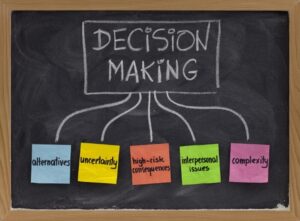
Implementation
• Shift towards a culture that prioritizes informed decisions and embraces calculated risk-taking.
• Foster an environment where decision-making is based on data and insights, using analytical tools to understand internal and external environments.
• Collect data on market trends, competitor behavior, customer preferences, and performance.
• Encourage a culture of openness and collaboration, seeking diverse perspectives from team members.
• Develop a risk-aware culture, understanding and strategically embracing risks, weighing potential benefits against risks.
• Model making calculated choices that align with the long-term goals, balancing innovation with caution.
• Reinforce a mindset of continuous learning and adaptability, being open to revising decisions based on new information or changing circumstances.
• Cultivate an environment where feedback is valued, and strategies can be agilely adjusted to evolving market conditions or needs.
4. Adaptability and Flexibility: Exceptional strategic leadership requires adaptability and flexibility, remaining agile in thinking and approach to respond to changes and capitalize on emerging opportunities. It involves proactive anticipation and preparation for future scenarios, vigilance about external trends, and fostering a culture of continuous learning. Leaders must re-evaluate strategies based on new information, making calculated decisions to pivot when necessary. This mindset views challenges as catalysts for innovation and growth, ensuring strategic planning evolves in real-time to meet the immediate and long-term needs of the team and organization.
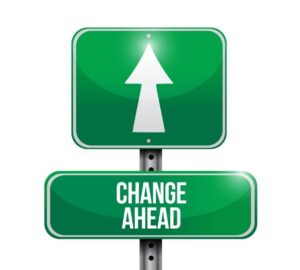
Implementation
• Cultivate an environment that anticipates and embraces change as part of growth.
• Foster a mindset that views change as an opportunity, not a threat.
• Demonstrate agility in response to the unexpected, highlighting its value.
• Stay informed about industry trends, competitor moves, and technological advancements for strategic pivots.
• Develop dynamic strategic planning processes that can accommodate shifts without losing focus on vision and goals.
• Set regular intervals for strategy review and adjustment based on new data and insights.
• Institutionalize strategy check-ins as part of the strategic management cycle for responsiveness.
• Adopt scenario planning to prepare for multiple potential futures and develop versatile strategies.
• Encourage a culture of experimentation and failure in order to achieve true adaptability.
• Create safe spaces for testing new ideas, emphasizing learning from every outcome.
• Commit to ongoing learning, openness to change, and questioning the status quo for sustained success.
5. Effective Communication: Effective communication is central to strategic leadership, facilitating the alignment of every member with the organization’s vision and their role within it. Strategic Leaders articulate objectives and expectations, fostering shared understanding and commitment. Meaningful dialogue and active listening allow for feedback and insights, enabling leaders to address issues proactively. Reinforcing the organization’s vision and goals maintains alignment, motivates teams, and cultivates transparency and trust. This ongoing communication solidifies the link between individual contributions and broader aspirations, empowering team members to drive results.

Implementation
• Develop a clear, compelling narrative that encapsulates the strategic vision and goals.
• Integrate this narrative consistently across all communication forms, from formal presentations to informal digital communications.
• Cultivate an environment that encourages open dialogue and feedback.
• Facilitate two-way communication through meetings, feedback sessions, and open-door policies.
• Value diverse perspectives and use insights to refine strategies and address issues.
• Adapt communication styles to suit different audiences for clear understanding and action.
• Translate complex strategic plans into accessible terms and utilize various platforms to reach a broader audience.
• Ensure all team members understand how their work contributes to broader strategic objectives.
• Prioritize clarity, openness, and adaptability in communication to build bridges between vision and action.
6. Developing and Empowering Others: The development and empowerment of others are essential aspects of effective leadership, by positioning leaders as catalysts for growth within their teams and organizations. Strategic leaders understand that an organization’s strength lies in its collective capabilities, committing to nurturing individual potential and providing opportunities for professional growth. Empowerment goes beyond delegation of responsibilities; it entails fostering a culture of experimentation, where failure is embraced as a learning experience and feedback is actively sought and applied. Strategic leaders delegate authority with clarity and trust, empowering team members to chart their course toward shared goals. This delegation is supported by an environment that encourages innovation and manages risks, fostering a culture of continuous improvement where teams are consistently seeking ways to enhance their processes, skills, and overall performance.

Implementation
• Actively create opportunities for growth and autonomy for team members.
• Commit to understanding each team member’s unique skills, aspirations, and potential through regular one-on-one meetings and performance reviews.
• Tailor development plans to align with individual career goals and the organization’s strategic objectives.
• Delegate authority to allow team members ownership of tasks and decisions, providing a clear framework for operation.
• Communicate expectations clearly, offer necessary resources, and establish boundaries while encouraging innovative solutions.
• Support risk-taking and view failure as a learning experience to boost creativity, innovation, and confidence.
• Foster a culture of continuous improvement via ongoing training programs, workshops, and exposure to industry trends and best practices.
• Encourage cross-functional projects and collaborations for diverse learning experiences.
• Recognize and reward efforts and achievements to reinforce the value of excellence and innovation.
• Be adaptable, patient, and genuinely interested in team welfare and development.
• Focus on team development and empowerment to enhance performance and satisfaction and achieve long-term organizational goals.
7. Ethical and Social Responsibility: The concepts of ethical leadership and social responsibility have evolved into fundamental pillars of strategic leadership, signaling a significant shift towards more conscientious and sustainable business practices. Strategic leaders play a vital role in nurturing a culture that not only achieves strategic objectives but also upholds impeccable ethical standards and actively contributes to societal well-being. Ethical leadership entails decision-making guided not only by profitability but also by morality, prioritizing integrity, fairness, and respect for individuals and communities. This fosters trust and credibility among stakeholders, fostering strong relationships with employees, customers, investors, and the broader public. A commitment to social responsibility compels the organization to consider the broader impact of their business activities on society and the environment. This involves embracing practices that promote sustainability, community engagement, and the welfare of all stakeholders. Strategic leaders recognize that addressing social and environmental challenges is integral to long-term success, prompting them to integrate social responsibility into their business models and strategies.
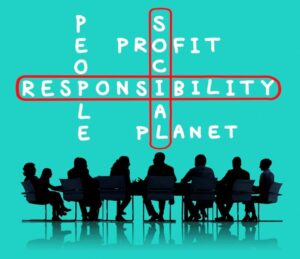
Implementation
• Clearly articulate ethical values in the organization’s mission and vision statements, embedding them into the culture and operations.
• Develop and enforce policies and practices promoting ethical behavior and social responsibility, including compliance training and clear guidelines for conduct.
• Establish channels for reporting unethical behavior and ensure consequences for violations, fostering a culture of integrity and accountability.
• Initiate programs addressing societal issues like environmental sustainability, community development, and social equity, such as greener business practices and philanthropy.
• Ensure transparency by openly communicating efforts and progress in upholding ethical standards and contributing to social well-being to build trust.
• Regularly review and assess ethical practices and social initiatives for continuous improvement and adaptation to changing expectations.
• Lead by example, championing ethical values in every decision and action to foster a culture prioritizing ethical conduct and social contribution.

Case Study: Patagonia: Blending Ethical Leadership with Social Responsibility for Sustainable Success
In the realm of outdoor apparel and gear, Patagonia stands out not only for its high-quality products but also for its unwavering commitment to ethical leadership and social responsibility. Founded by Yvon Chouinard in 1973, Patagonia has become a beacon of sustainability and ethical business practices, setting a precedent for the industry and beyond.

• Clear Articulation of Ethical Values: From its inception, Patagonia embedded ethical values into its mission and vision statements, making sustainability and environmental stewardship central to its identity. Chouinard famously stated, “We are in business to save our home planet,” setting a clear directive for the company’s culture and operations.
• Implementation of Ethical Policies and Practices: Patagonia goes beyond lip service by implementing concrete policies and practices to promote ethical behavior and social responsibility. For example, the company offers extensive compliance training to employees, emphasizing the importance of fair labor practices and environmental conservation. Patagonia’s strict adherence to fair labor standards ensures that its supply chain operates ethically and transparently.
• Establishment of Reporting Channels and Accountability: To uphold its ethical standards, Patagonia provides multiple channels for employees to report unethical behavior. The company maintains a zero-tolerance policy for violations, ensuring accountability across all levels of the organization. This fosters a culture of integrity and transparency, where employees feel empowered to speak up against wrongdoing.
• Initiation of Social Impact Programs: Patagonia takes its commitment to social responsibility beyond its own operations by initiating impactful programs addressing societal issues. For instance, the company’s “1% for the Planet” initiative donates 1% of its annual sales to environmental organizations worldwide. Additionally, Patagonia supports community development projects and advocates for social equity through various philanthropic efforts.
• Transparency in Communication: Patagonia prides itself on transparency, openly communicating its efforts and progress in upholding ethical standards and contributing to social well-being. The company regularly publishes reports detailing its environmental and social impact, allowing stakeholders to hold Patagonia accountable for its actions.
• Continuous Improvement and Adaptation: Patagonia recognizes that the journey towards ethical leadership and social responsibility is ongoing. The company continuously reviews and assesses its practices and initiatives to identify areas for improvement and adaptation. By staying nimble and responsive, Patagonia remains at the forefront of sustainable business practices.
• Leading by Example: At the helm of Patagonia, Yvon Chouinard exemplifies ethical leadership, championing values of integrity, fairness, and social responsibility in every decision and action. His personal commitment to sustainability inspires employees and stakeholders alike, fostering a culture that prioritizes ethical conduct and social contribution.
Patagonia serves as a shining example incorporating ethical leadership and social responsibility into their strategic leadership platform. By embedding ethical values into its mission, implementing robust policies and practices, and championing social impact initiatives, Patagonia has not only built a successful business but also made a meaningful difference in the world. As other companies strive to emulate Patagonia’s strategic model, they can draw valuable lessons from its holistic approach to business and societal well-being.
8. Execution and Implementation: The transition from vision to tangible outcomes relies heavily on effective execution and implementation, where strategic objectives are translated into actionable steps. This phase demands strategic leaders to skillfully mobilize resources, manage projects, and meticulously measure progress. It necessitates a deep understanding of the team’s capabilities, a clear allocation of responsibilities, and a steadfast commitment to monitoring and adapting strategies as needed. Strategic Leaders have the ability to break down strategic plans into manageable tasks, empowering team members with the authority and resources necessary for effective execution. Establishing clear, measurable milestones is crucial for tracking progress, identifying areas for adjustment, and maintaining momentum toward strategic goals. Effective communication is pivotal, ensuring alignment and keeping all stakeholders informed and engaged throughout the process.
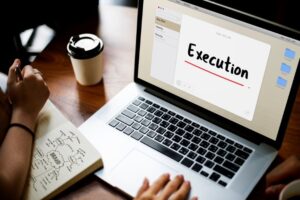
Implementation
• Break down the strategic plan into specific, manageable tasks and projects, assigning them to appropriate team members or departments.
• Empower individuals with authority and resources necessary for effective task execution, fostering a culture of ownership and accountability.
• Establish measurable milestones and key performance indicators (KPIs) aligned with strategic objectives to track progress and evaluate effectiveness.
• Conduct regularly scheduled reviews to assess progress, celebrate achievements, and address challenges promptly, maintaining momentum and focus.
• Ensure continuous communication across all levels, updating team members on progress and changes to the plan.
• Foster an environment where feedback is encouraged and valued, aligning team efforts with strategic goals and building a motivated workforce.
Understanding and intentionally shaping all nine elements not only influences the operational dynamics of an organization and the interactions among its members but also deeply impacts its ability to navigate challenges and achieve its objectives. By nurturing these components, strategic leaders cultivate a resilient and adaptive organizational culture that thrives amidst uncertainty and complexity. Each element serves as a crucial building block, contributing to the overarching framework of strategic leadership. Through deliberate attention to these facets, leaders not only guide their organizations through current obstacles but also lay the groundwork for enduring
success in an ever-evolving landscape.

Exercise 8.1 Vision Crafting: Mapping Your Team’s Future
1. Identify Goals, Objectives, and Values: Take a moment to think about where you want your team to be one year from now. Briefly answer the following questions:
• What are the main goals and objectives for your team?
• How do you see your team contributing to the organization’s success?
• What values are important to your team’s culture?
2. Assess Your Team’s Strengths: Think about what your team does well. Consider its strengths, skills, and resources and briefly answer the following questions:
• What are your team’s key strengths and advantages?
• Are there any areas where your team could improve?
• What resources does your team need for growth and development?
3. Craft Your Vision Statement Outline: Based on the answers above, create a simple vision statement outline for your team. Your vision statement outline should be clear and inspiring. Consider these tips and use the template below as a guide.
• Keep it short and focused, capturing your team’s purpose.
• Make sure it reflects your team’s values and goals.
• Use language that motivates and energizes your team.
• Purpose: Define the main goal of your team.
Example: “Our team’s purpose is to [insert purpose].”
• Values: List the core values guiding your team’s actions.
Example: “We value [value 1], [value 2], and [value 3].”
• Impact: Describe the desired outcomes your team aims to achieve.
Example: “We aspire to [desired impact].”
• Future State: Paint a picture of success for your team in the future.
Example: “We envision a future where [desired state].”
• Call to Action: Inspire your team to action with clear steps.
Example: “Together, we will [action] to achieve our vision.”
4. Group Share (if time permits): Share your vision statement outline with the group.

Course Manual 9: Leader-Follower Dynamics
Leader-follower dynamics focus on the interactions, relationships, and influence between leaders and their followers. This dynamic is pivotal to understanding how effective leadership can drive an organization’s success and foster a positive work environment. Grasping the nuances of leader-follower dynamics is crucial for developing leaders who can inspire, motivate, and guide their teams toward achieving shared goals.
Defining the Leader-Follower Dynamic
Leader-follower dynamics refers to the reciprocal relationship between leaders and followers, where influence and communication flow both ways, from leaders to followers and vice versa. This relationship is not static but evolves over time based on factors such as trust, respect, and mutual understanding. Leaders are not just individuals in positions of authority but are individuals who inspire action and are willing to lead by example. Followers, on the other hand, are not passive subordinates but active participants in the leadership process, whose support and engagement are essential for achieving organizational objectives.
Origins
The concepts of leader-follower dynamics do not originate from a single source or researcher; instead, they have evolved over time through the contributions of numerous scholars and practitioners in the fields of organizational behavior, psychology, and management studies. However, several key figures have made significant contributions to the development and understanding of these dynamics:
One of the most influential figures in the study of followership is Robert Kelley, who is renowned for his work on the roles and effectiveness of followers. In his seminal article “In Praise of Followers” published in the Harvard Business Review in 1988, Kelley categorized followers based on their levels of engagement and critical thinking, introducing types such as “Yes People,” “Alienated Followers,” “Star Followers,” and others. His work emphasized the importance of active and effective followership in achieving organizational success.

Source: Carnegie Mellon University, Tepper School of Business
Another prominent scholar in this field is Barbara Kellerman, who has extensively explored the dynamics of leadership and followership. Her work categorizes followers based on their level of engagement, ranging from “Isolates” to “Diehards.” Kellerman’s contributions highlight the dynamic relationship between leaders and followers and the impact of this interaction on leadership effectiveness and organizational change.
Although primarily known for his work on leadership, James MacGregor Burns introduced the concept of “transforming leadership,” which underscores the reciprocal relationship between leaders and followers in achieving significant change. His theory suggests that leaders and followers raise one another to higher levels of motivation and morality, emphasizing the mutual influence and dependency in the leader-follower relationship.
An early pioneer in organizational theory and management, Mary Parker Follett introduced ideas about the power of collective action and the importance of reciprocal relationships between leaders and followers. Her work in the early 20th century laid the groundwork for understanding the complexities of human interactions in organizational settings, including the dynamics between leaders and followers.
These scholars, among others, have contributed to the rich tapestry of research and theory surrounding leader-follower dynamics. Their work collectively underscores the complexity and significance of the relationships between leaders and followers, highlighting the need for both parties to actively engage in the leadership process for effective organizational leadership and change.

Importance in Leadership Development
Leader-follower dynamics are central to the theory and practice of effective leadership. A comprehensive understanding of these dynamics enables current and aspiring leaders to cultivate meaningful relationships with their followers, adapt their leadership style to fit the changing needs of their team, and ultimately drive their organization toward success.
Awareness of these dynamics helps leaders to tailor their approach to meet the needs and expectations of their followers, thereby enhancing their leadership effectiveness. Leaders learn to adapt their style and strategies to various situations and individual follower needs, fostering a more flexible and responsive leadership approach.
Effective leader-follower relationships contribute to building a positive organizational culture characterized by open communication, trust, and mutual respect. This culture not only attracts talent but also motivates employees, reduces turnover, and increases overall job satisfaction.
Leaders who understand and leverage these dynamics are better equipped to drive change within their organizations. They can more effectively communicate vision, inspire commitment, and mobilize followers to embrace and implement change.
By recognizing the value of their followers, leaders can empower them by delegating authority, encouraging participation in decision-making, and fostering a sense of ownership over work processes and outcomes. This engagement leads to higher levels of creativity, innovation, and productivity.
A nuanced understanding of leader-follower dynamics also aids in building cohesive teams where members feel valued, understood, and motivated to contribute. It supports the development of leadership within the team, encouraging members to take on leadership roles as needed and support the collective success of the group.

Defining The Follower
Followers play a role just as pivotal as leaders themselves. Understanding the definition and role of followers, alongside the dynamics of follower behavior, enhances leadership effectiveness but also promotes a more collaborative, resilient, and adaptive organizational culture.
Followers are individuals within an organization who typically do not hold formal leadership positions but are crucial to the success of the leadership process. They are active participants in the leadership dynamic, possessing the ability to influence leaders and contribute significantly to the achievement of group and organizational goals. Followership, then, is not a passive state but a dynamic role that involves engagement, critical thinking, and participation in the leadership process.
Types of Followers
Followers, far from being a monolithic group, exhibit a wide range of behaviors and attitudes that influence their interactions with leaders and their contributions to the organization.
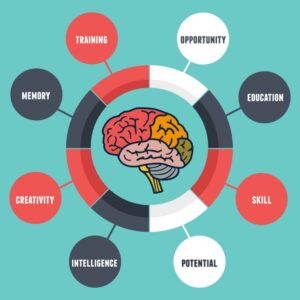
Active vs. Passive Followers
• Active Followers: These individuals are characterized by their high level of engagement and participation in organizational processes. They take initiative, offer constructive feedback, and are willing to take on responsibility beyond their defined roles. Active followers are often seen as invaluable assets for their ability to contribute ideas, drive change, and support their leaders in achieving organizational goals. Their proactive approach helps in creating a dynamic and innovative work environment.
• Passive Followers: In contrast, passive followers typically exert minimal effort beyond what is required of them. They tend to follow instructions without questioning and are less likely to offer feedback or suggestions. While they may be reliable in completing tasks, their lack of initiative can mean missed opportunities for improvement and innovation. Leadership strategies that engage these followers can tap into untapped potential, encouraging greater participation and contribution.
Independent vs. Dependent Followers
• Independent Followers: These followers exhibit a strong sense of autonomy and self-direction. They are capable of working effectively without close supervision and are comfortable making decisions within their scope of authority. Independent followers are critical thinkers who often challenge the status quo in a constructive manner, promoting growth and innovation. Leaders can leverage the strengths of independent followers by entrusting them with leadership roles in projects and decision-making processes.
• Dependent Followers: Conversely, dependent followers rely heavily on their leaders for direction, approval, and motivation. They may struggle with making decisions independently and often look to their leaders to define their tasks and objectives. While their reliance on guidance ensures that they adhere closely to organizational policies and goals, it can also limit their growth and contribution to the organization. Effective leadership involves providing these followers with opportunities to develop their decision-making and leadership skills.
Other Types of Followers
Indeed, the landscape of followership is diverse, extending beyond the types already listed. Understanding the full spectrum of follower types can provide leadership professionals with deeper insights into team dynamics and strategies for engaging effectively with various individuals. Below are additional follower types that are recognized.
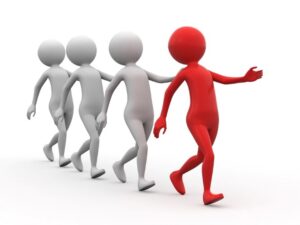
• Pragmatic Followers: Practical and cautious, they evaluate the risks and benefits before supporting initiatives. Their balanced approach ensures that enthusiasm is matched with practicality, helping to maintain stability within the organization.
• Conscientious Followers: Highly dedicated and ethical, these followers are committed to doing their job well and upholding organizational values. They serve as moral compasses within teams, promoting integrity and accountability.
• Exemplary Followers: The ideal blend of active engagement and independent thinking, these followers are leaders in their own right. They inspire others through their dedication, creativity, and willingness to take on challenges, driving collective success.
• Yes People: Always in agreement with their leader, these followers prioritize approval over constructive dialogue. While supportive, their lack of critical feedback can limit growth and innovation.
• Alienated Followers: Critical and independent yet disengaged, often due to past negative experiences. Re-engaging these followers involves addressing their concerns and valuing their contributions, which can unlock valuable insights and innovations.
• Survivors: Adaptable and risk-averse, survivors navigate through changing circumstances with caution, aiming to maintain stability above all. They can help buffer teams through transitions, though their cautious nature may slow down decision-making.
• Passive Followers (Specifically Disengaged): This subgroup of Passive Followers is characterized by a deeper level of disengagement, where the followers do just enough to meet minimum requirements and show a lack of interest in their work or in taking any initiative beyond what is strictly necessary. Their detachment can stem from various factors, including dissatisfaction with their role, lack of motivation, or misalignment with organizational values and goals.
• Opportunists: Primarily self-interested, opportunists align with leaders and initiatives that benefit them personally. While challenging, aligning their goals with organizational objectives can harness their ambition for mutual gain.

This diversity within the leader-follower dynamic enriches the organizational culture, drives innovation, and contributes to the achievement of shared goals. By recognizing and appreciating the various follower behaviors, as well as the unique contributions of each follower type, leaders can tailor their approaches to meet the unique needs of their team members. This involves not only directing and motivating but also listening to, empowering, and developing followers. Leaders can further develop strategies to engage, motivate, and leverage the full potential of their teams. Partaking in followership in a respectful manner is key to fostering an environment where both leaders and followers can thrive and succeed together.
The complexities of follower dynamics also enrich leadership practices, making them more responsive, adaptive, and effective in meeting the challenges of today’s dynamic organizational environments.
The Role of Followers
The role of followers and the dynamics of their behavior are integral to the leadership process. Leaders need to acknowledge and appreciate the contributions of their followers, understanding that effective leadership is not just about leading well but also about fostering an environment where followers can thrive, contribute, and engage meaningfully. Understanding the characteristics of both successful and unsuccessful relationships provides insights into how leaders can cultivate positive interactions with their followers.

• Support and Execution: Followers are primarily responsible for executing the vision and directives established by leaders. Their support is crucial in transforming strategic goals into practical outcomes.
• Feedback and Perspective: They provide leaders with feedback on policies, strategies, and the overall organizational climate. This feedback is invaluable for leaders to adjust their approach and strategies effectively.
• Innovation and Change Agents: Often, followers are the source of innovation within organizations. Their close proximity to daily operations and processes positions them uniquely to propose innovative solutions and drive change from within.
• Ethical Gatekeepers: Followers play a critical role in upholding ethical standards within the organization. They can support ethical leadership through their actions and decisions and can also serve as a check on leadership power, calling attention to unethical practices or decisions.
Dynamics of Follower Behavior
The behavior of followers within an organization is influenced by various factors, including personality traits, the leadership style they experience, organizational culture, and the situational context.
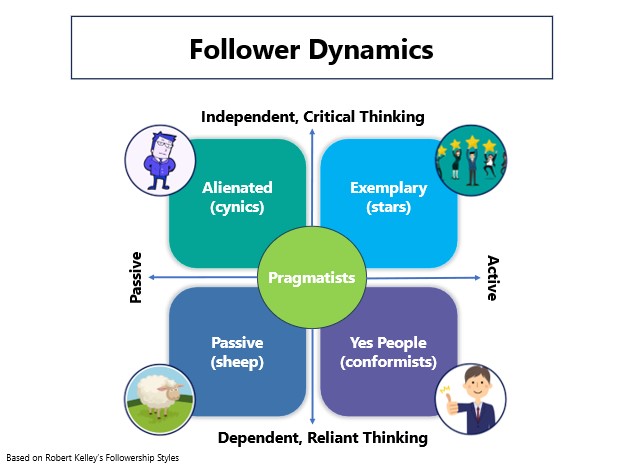
• Engagement Level: Followers can range from being actively engaged to being completely disengaged. Their level of engagement is often a reflection of the leadership style they experience and the organizational culture in which they operate.
• Critical Thinking vs. Conformity: Some followers exhibit strong critical thinking skills, challenging processes, and decisions to foster improvement. Others may conform more readily, prioritizing harmony and stability over questioning the status quo.
• Proactivity vs. Passivity: Followers also vary in their proactivity. While some take initiative and act as change agents within the organization, others may adopt a more passive role, requiring direct guidance and instruction to contribute effectively.
• Adaptability: Followers’ ability to adapt to changing circumstances and leadership styles is crucial. Adaptive followers can more effectively navigate shifts in leadership, strategy, and organizational climate.
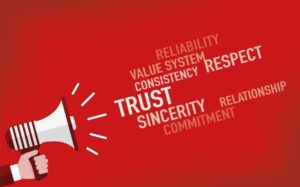
Successful Leader-Follower Relationships
Successful leader-follower relationships are characterized by mutual respect, trust, and communication. These relationships lead to high levels of engagement, productivity, and satisfaction among team members. Key elements include:
• Mutual Respect: Successful relationships are built on a foundation of respect for each other’s abilities, contributions, and perspectives. Leaders who value and acknowledge their followers’ input foster a sense of worth and belonging among team members.
• Trust: Trust is paramount in these relationships. Leaders earn trust by being consistent, reliable, and transparent in their actions and decisions. In return, followers commit to their roles and responsibilities, confident in their leader’s direction.
• Effective Communication: Open and clear communication channels between leaders and followers ensure that expectations are understood, feedback is shared, and ideas are exchanged freely. This fosters an environment where problems are solved collaboratively, and innovations are encouraged.
• Empowerment: Successful leaders empower their followers by delegating authority, providing resources, and offering opportunities for professional growth. This empowerment leads to increased autonomy and encourages followers to take initiative and demonstrate leadership within their roles.
• Alignment of Goals: Aligning the organization’s goals with the personal goals of followers ensures that everyone is working towards a common purpose. This alignment motivates followers to contribute their best efforts towards achieving shared objectives.
Unsuccessful Leader-Follower Relationships
Conversely, unsuccessful leader-follower relationships are marked by mistrust, poor communication, and a lack of alignment, leading to disengagement, low morale, and underperformance. Characteristics of these relationships include:

• Lack of Trust: When followers perceive leaders as inconsistent, secretive, or untrustworthy, it erodes the foundation of the relationship. This lack of trust hinders cooperation and loyalty, impacting team cohesion and effectiveness.
• Poor Communication: Ineffective communication creates confusion, misunderstandings, and frustration. Leaders who fail to communicate expectations clearly or listen to their followers’ concerns contribute to a dysfunctional team dynamic.
• Micromanagement: Leaders who micromanage demonstrate a lack of confidence in their followers’ abilities, undermining their autonomy and motivation. This can lead to decreased job satisfaction and a lack of initiative among team members.
• Misalignment of Goals: When followers’ personal goals and values are not aligned with those of the organization, it can lead to a lack of engagement and commitment. Leaders need to understand and connect with their followers’ motivations to foster a sense of shared purpose.
• Neglecting Professional Development: Leaders who fail to invest in their followers’ growth and development miss opportunities to build capability and loyalty within their teams. This neglect can lead to stagnation and turnover among talented team members.
The distinction between successful and unsuccessful leader-follower relationships lies in the dynamics of respect, trust, communication, empowerment, and goal alignment. Leaders need to be adept at recognizing the signs of potential relationship failures and taking proactive steps to address them. By fostering successful leader-follower relationships, leaders can unlock the full potential of their teams, driving organizational success and creating a fulfilling work environment for all involved.

Case Study: Empowerment and Unity: Unpacking the Leader-Follower Dynamics Behind Costco
A compelling example of leader-follower dynamics is seen in the transformative journey of the retail giant Costco under the leadership of co-founder and former CEO Jim Sinegal. His leadership from Costco’s founding in 1983 until his retirement in 2011 is a testament to how visionary leadership, coupled with a strong commitment to company values, can cultivate a highly engaged and loyal workforce, driving substantial organizational success.

Jim Sinegal co-founded Costco with the vision of creating a new kind of wholesale club: one that would offer low prices on bulk items without sacrificing quality or ethical standards. Under Sinegal’s leadership, Costco revolutionized the warehouse club industry by combining high-quality products with low prices, achieved through a no-frills shopping environment and a keen focus on operational efficiency.
Sinegal’s leadership philosophy was centered around respect, fairness, and a deep sense of responsibility to both employees and members (customers). He believed that taking care of employees was not just the right thing to do but also a powerful driver of business success. Sinegal famously maintained an open-door policy and was known for his hands-on leadership style, regularly visiting Costco stores to interact with employees and ensure operations aligned with the company’s values.
Implementation of Leader-Follower Dynamics
• Employee First Approach: Costco under Sinegal was renowned for its employee-first approach, offering higher wages and better benefits than competitors. This strategy was grounded in the belief that well-compensated, happy employees deliver superior customer service, driving repeat business and loyalty.
• Leading by Example: Sinegal epitomized servant leadership, often seen performing tasks alongside employees, demonstrating humility and a willingness to engage in the groundwork of the business. This approach deeply influenced the company culture, promoting a sense of unity and shared purpose.
• Transparency and Open Communication: Sinegal’s leadership was marked by transparent communication and openness, fostering trust and respect across all levels of the organization. Employees were kept informed about company performance, challenges, and strategic decisions, making them feel valued and part of the company’s success.
• Empowerment and Ownership: By empowering employees to make decisions and take ownership of their work, Sinegal cultivated a highly motivated workforce. Employees were encouraged to provide input on store operations and customer service strategies, leading to a culture of continuous improvement and innovation.
The leader-follower dynamics under Sinegal’s leadership propelled Costco to become a leader in the global retail sector. The company not only achieved remarkable financial success but also maintained high employee satisfaction and retention rates, setting a benchmark for ethical and sustainable business practices in the retail industry.
Lessons Learned
Jim Sinegal’s leadership at Costco offers valuable lessons on the impact of ethical leadership and the power of prioritizing employee welfare:
1. Employee Welfare as a Business Strategy: Investing in employees through fair wages, benefits, and a respectful work environment can lead to high levels of engagement, loyalty, and productivity, which are critical for long-term business success.
2. The Importance of Leading by Example: A leader’s actions and commitment to company values can significantly influence organizational culture, promoting unity and shared goals.
3. Transparency Builds Trust: Open and honest communication fosters a culture of trust and respect, which is essential for effective leader-follower dynamics.
4. Empowerment Drives Ownership: Empowering employees to contribute ideas and make decisions enhances their sense of ownership and commitment to the organization’s success.
Jim Sinegal’s leadership of Costco underscores the significance of ethical leadership and a strong commitment to employee welfare in building a successful, sustainable business. His approach to leader-follower dynamics, characterized by respect, empowerment, and leading by example, offers timeless insights for leaders aiming to cultivate a positive and productive organizational culture.

Exercise 9.1 Mapping Your Team’s Follower Landscape
• Are there one or more predominant follower types on your team?
• How does this shape the team’s overall dynamics?
• Are there patterns of collaboration or conflict?
• How might the make up of follower types impact your team’s performance and workplace atmosphere?
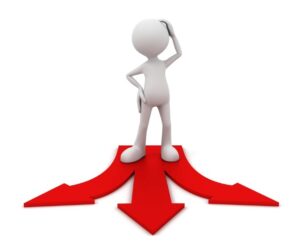
Course Manual 10: Adaptive Leadership
Adaptive leadership is a transformative approach to leadership that emphasizes the importance of navigating complexity, leading through change, and fostering environments where learning, innovation, and resilience are paramount. This approach is particularly relevant in today’s fast-paced, uncertain global landscape, where leaders are often faced with challenges that do not have easy or obvious solutions. Adaptive leadership is about mobilizing individuals and organizations to tackle tough challenges, adapt to changing environments, and thriving in the face of adversity.
The godfather of adaptive leadership is Ronald Heifetz, a founding director of the Center for Public Leadership at the Harvard Kennedy School. Heifetz introduced the concept in his seminal book, “Leadership Without Easy Answers,” published in 1994, and further elaborated on it with co-authors in “The Practice of Adaptive Leadership: Tools and Tactics for Changing Your Organization and the World” in 2009. Heifetz’s work on adaptive leadership emerged from his rich experiences in the realms of psychiatry and music, combined with his deep interest in leadership and public affairs. This unique blend of perspectives allowed him to develop a unique understanding of leadership as a practice that extends beyond mere technical solutions to deeply engage with the values, beliefs, and behaviors of individuals and groups.
At its core, adaptive leadership challenges the traditional view of leadership as a top-down, authority-driven process. Instead, it proposes a model where leadership is a dynamic and interactive process that involves both leaders and followers. Heifetz argues that effective leadership in complex situations often requires questioning the status quo, experimenting with new approaches, and learning from experiences. This means not only solving problems but also identifying and tackling the underlying issues that prevent progress—what Heifetz refers to as “adaptive challenges.”
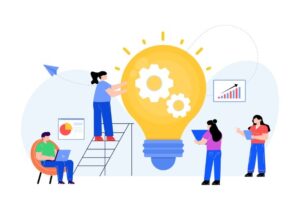
Adaptive challenges are distinguished from technical challenges by their complexity and the fact that they cannot be solved by existing knowledge or standard operating procedures. Instead, they require people to change their mindsets, attitudes, and behaviors. Addressing these challenges necessitates a leadership approach that encourages adaptation, fosters resilience, and builds the capacity of individuals and organizations to navigate the unknown.
The development of adaptive leadership as a concept was a response to the recognition that the challenges facing leaders in the 21st century are increasingly complex and interconnected. Globalization, technological advances, and societal shifts have created a world where the pace of change is relentless, and the future is unpredictable. In this context, adaptive leadership offers a framework for understanding and responding to the demands of leadership in a way that is inclusive, innovative, and effective.
Differentiating Between Technical and Adaptive Challenges
One of the foundational principles of adaptive leadership is the distinction between technical challenges and adaptive challenges. Technical challenges can be addressed with existing knowledge and skills, often through authoritative expertise or standard operating procedures. In contrast, adaptive challenges are complex problems that require new learning, innovative thinking, and changes in people’s priorities, beliefs, habits, and loyalties. Adaptive leadership focuses on identifying and tackling these adaptive challenges, recognizing that true progress often requires deep, systemic change.
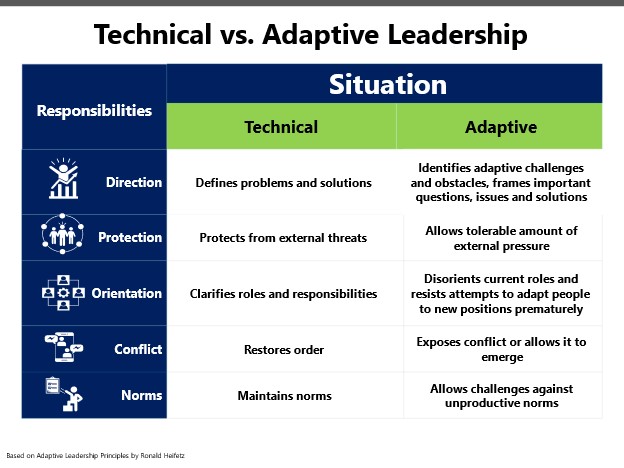
Leading from the Balcony
The principle of “leading from the balcony” refers to the ability of leaders to gain a higher perspective on the “dance floor” of action. This metaphor emphasizes the importance of stepping back to observe and analyze the broader context and dynamics at play within an organization. From the balcony, leaders can better identify patterns, interrelationships, and emerging opportunities or threats. This perspective allows them to strategize and mobilize resources more effectively, ensuring that their actions are informed and strategic rather than reactive.
Regulating Distress
Adaptive leadership acknowledges that change, especially when it involves challenging deeply held beliefs or practices, can generate significant distress. Leaders must learn to regulate this distress within their organizations, maintaining it at a productive level. Too little distress may result in complacency, while too much can lead to panic or resistance. Effective leaders use techniques such as pacing, framing challenges in a way that inspires action, and providing direction, protection, orientation, and order to navigate through periods of discomfort and uncertainty.
Fostering an Adaptive Culture
Creating a culture that values and practices adaptability is crucial in adaptive leadership. This involves encouraging a mindset of curiosity, learning, and experimentation. Leaders must champion an environment where failure is seen as an opportunity to learn and where employees feel safe exploring new ideas and approaches. By promoting diversity of thought, open dialogue, and collective problem-solving, leaders can cultivate a resilient and innovative organizational culture capable of navigating adaptive challenges.

Giving the Work Back to the People
Adaptive leadership posits that the solutions to adaptive challenges often lie with the people facing those challenges. Rather than providing answers, leaders should empower their teams to take ownership of problems and their solutions. This principle involves delegating responsibility, encouraging autonomy, and facilitating the development of leadership capacities throughout the organization. It’s about creating a sense of agency and participation, allowing individuals and teams to engage deeply with the challenges they face and to experiment with solutions.
Protecting Voices of Leadership from Below
Encouraging and protecting dissenting voices or minority perspectives is vital in adaptive leadership. These voices often raise critical questions and offer unique insights that can lead to breakthrough solutions. Leaders should create channels for these voices to be heard and ensure that they are not silenced by the majority or organizational hierarchy. By valuing and integrating diverse perspectives, leaders can enrich their understanding of challenges and enhance the organization’s capacity for innovation and adaptation.
Sectors Where Adaptive Leadership Flourishes
Adaptive leadership is particularly well-suited to certain industries and sectors. Its effectiveness, however, can vary depending on the organizational culture, the nature of the industry, and the specific challenges an organization faces. Understanding where adaptive leadership thrives and where it may encounter limitations offers valuable insights into its applicability and potential impact.

• Technology and Innovation-Driven Industries: The rapid pace of change in technology sectors makes adaptive leadership essential. Organizations in fields such as software development, biotechnology, and renewable energy face constant innovation and disruption. Adaptive leadership enables these companies to remain agile, embrace new technologies, and pivot in response to emerging trends and market demands. The emphasis on learning and experimentation is a natural fit for industries where the next breakthrough idea can redefine the market.
• Global Non-Profit and Social Enterprises: Entities that operate in the non-profit and social enterprise sectors often deal with complex social challenges that do not have straightforward solutions. Adaptive leadership is invaluable in these contexts because it encourages a deep understanding of the systemic issues at play and fosters innovative approaches to problem-solving. Moreover, mobilizing communities and stakeholders around a shared vision for change is a cornerstone of adaptive leadership, aligning well with the mission-driven nature of these organizations.
• Healthcare and Education: Both sectors are characterized by complex challenges that involve numerous stakeholders with diverse needs and perspectives. Adaptive leadership can facilitate the collaborative problem-solving necessary to address issues such as public health crises or educational reform. The capacity to navigate uncertainty and foster environments that prioritize learning and adaptation is crucial for driving improvements in healthcare and education systems.
Sectors Where Adaptive Leadership May Encounter Challenges
While adaptive leadership offers a dynamic approach for navigating complexity and fostering innovation, there are sectors where its principles may not flourish as effectively. This includes traditionally structured industries and heavily regulated sectors with inherent needs for stability, predictability, and strict adherence to regulations. In addition, environments characterized by established hierarchies and procedural rigidity, may limit the flexibility and rapid decision-making that adaptive leadership advocates. Consequently, while adaptive leadership can provide value in any context, its impact may be more limited in sectors where operational consistency and regulatory compliance are paramount.

Highly Regulated Industries: Sectors such as banking, utilities, and government agencies operate under strict regulatory frameworks that can limit the flexibility and responsiveness adaptive leadership promotes. In these environments, the pace of change is often slower, and the room for experimentation may be constrained by regulatory compliance and risk management considerations. While adaptive leadership can still offer value in fostering a culture of innovation within these constraints, the impact may be more muted.
Traditional Manufacturing: Industries characterized by established processes and a focus on efficiency and scale, such as traditional manufacturing, may find the principles of adaptive leadership challenging to implement. The emphasis on experimentation and navigating uncertainty might conflict with the operational imperatives of cost control, predictability, and process optimization. However, as manufacturing sectors increasingly embrace digital transformation and sustainability challenges, the need for adaptive leadership is growing.
Navigating the Fit for Adaptive Leadership
The effectiveness of adaptive leadership is influenced by the organization’s willingness to embrace change, its cultural readiness for empowerment and learning, and the leaders’ ability to navigate the tensions between innovation and operational stability. In sectors where adaptive leadership is a natural fit, it can catalyze significant innovation and transformation. In more traditionally structured or regulated industries, embedding adaptive leadership may require a more subtle approach, balancing the need for flexibility with operational and compliance requirements.

For companies and leaders contemplating the adoption of adaptive leadership practices, the key lies in understanding the unique challenges and opportunities of their sector, tailoring the approach to fit their context, and navigating the balance between adaptation and operational imperatives with skill and sensitivity. Embracing the principles of adaptive leadership, regardless of sector, requires a commitment to continuous learning, an openness to change, and a deep engagement with the complex human systems within which organizations operate.
Implementation of Adaptive Leadership
Implementing adaptive leadership effectively calls for tangible actions and methodologies that leaders can adopt to bring about meaningful change.
1. Encourage Experimentation and Learning by initiating “Innovation Labs” within your organization where teams are tasked with tackling specific challenges without the fear of failure. For instance, a retail company facing declining sales might set up a lab to reimagine the in-store customer experience through technology, new layout designs, or service offerings. Conduct regular “Learning Reviews” instead of traditional performance reviews. Focus these sessions on what was learned from both successes and failures, encouraging a mindset shift from performance to growth.
2. Cultivate Diversity of Thought by creating cross-functional teams for projects, intentionally including members from diverse backgrounds, departments, and levels of seniority. For example, a software development firm could form a product innovation team comprising engineers, marketing professionals, customer service representatives, and even customers to ensure a wide range of perspectives in the development process. Host regular “Perspective Gatherings,” where employees from different parts of the organization are invited to share their views on a challenge the company is facing. This can be as formal as a workshop or as informal as a lunch-and-learn session.

3. Mobilize the Organization Through Engagement by implementing a “Change Champions” program, identifying and training individuals across the organization who are enthusiastic about the change initiative. These champions can help in spreading the vision, addressing concerns, and motivating their peers through the transition. For a hospital adopting new digital health records, change champions from each department could help their colleagues understand the benefits, address technical challenges, and adapt to the new system. Utilize digital platforms to create an “Idea Marketplace” where employees can propose solutions to adaptive challenges the organization faces, vote on ideas, and volunteer to pilot promising concepts. This democratizes the process of innovation and leverages collective intelligence
4. Manage Distress Within the Change Process by developing “Resilience Workshops” aimed at building emotional intelligence, stress management skills, and coping mechanisms for employees. These workshops can be particularly valuable in high-stress industries or during significant organizational changes. Introduce “Change Curves” sessions where leaders openly discuss the emotional journey of change with their teams, acknowledging the ups and downs and normalizing the feelings of uncertainty and resistance. This can be done through regular team meetings or special sessions during major transitions.
5. Foster Reflective Leadership Practices that encourage the practice of keeping a leadership journal, where leaders and aspiring leaders reflect on their daily experiences, challenges faced, and lessons learned. This can help in developing self-awareness and a reflective mindset. Host quarterly “Reflection Retreats” for leadership teams, providing a space to step back from day-to-day operations, assess the progress of adaptive initiatives, and recalibrate strategies based on learning and feedback.
Implementing adaptive leadership is a dynamic process that requires ongoing effort, commitment, and a willingness to learn and grow. By adopting these practical strategies, leaders can begin to foster an adaptive culture within their organizations, one that is capable of responding to change with resilience, creativity, and collective intelligence. Through experimentation, engagement, and reflective practice, leaders can guide their teams through the complexities of the modern world, transforming challenges into opportunities for innovation and growth.
Pros and Cons of Adaptive Leadership
Adopting any leadership style, including adaptive leadership, comes with its unique set of strengths and limitations. Understanding these intricacies is crucial for leaders aiming to apply these styles effectively within their organizations. Adaptive leadership offers significant advantages in today’s rapidly changing world. However, it also presents challenges and nuances that leaders must navigate.

Pros and Strengths
• Flexibility in Uncertain Environments: Adaptive leadership thrives in uncertain and volatile environments. Its inherent flexibility allows leaders and organizations to pivot quickly in response to new information or changes in the external landscape, making it particularly relevant in industries subject to rapid change.
• Empowerment and Engagement: By involving followers in the problem-solving process and encouraging them to take ownership of challenges, adaptive leadership can significantly increase engagement and motivation. This empowerment leads to a more dynamic, innovative, and committed workforce.
• Fostering Innovation and Learning: Adaptive leadership’s emphasis on learning from both successes and failures creates a culture that values innovation. This approach not only supports the development of novel solutions to complex challenges but also contributes to the continuous growth and development of the organization’s members.
• Enhanced Problem-Solving: The focus on diversity of thought and encouraging multiple perspectives under adaptive leadership can lead to more comprehensive and nuanced problem-solving. By valuing contributions from all levels of an organization, leaders can tap into a wide range of experiences and expertise.

Cons and Challenges
• Resistance to Change: One of the most significant challenges of implementing adaptive leadership is resistance from those who prefer stability and predictability. Change, especially that which challenges deep-seated beliefs and practices, can be uncomfortable and met with resistance, requiring skilled navigation and management.
• Pacing and Timing: The adaptive leadership process can be slow and iterative, often requiring significant time to diagnose challenges, experiment with solutions, and implement changes. This pacing can be at odds with external pressures for quick results or the desire for immediate problem resolution.
• Emotional Toll: Navigating through uncertainty and leading change can be emotionally taxing for leaders and followers alike. The distress caused by challenging existing norms and practices, coupled with the potential for increased conflict, can strain relationships and impact well-being.
• Risk of Overload: By encouraging experimentation and leveraging the collective intelligence of the organization, there is a risk of information overload or decision-making paralysis. Leaders may find it challenging to sift through diverse opinions and options to make timely and effective decisions.
While adaptive leadership offers a powerful framework for navigating the complexities of the modern world, its implementation is not without challenges. By understanding the pros and cons and developing strategies to address the subtleties of this leadership style, leaders can leverage its strengths to foster resilient, innovative, and adaptable organizations.

Case Study: The Transformation of Nokia Under Risto Siilasmaa’s Adaptive Leadership
Nokia, once a titan in the mobile phone industry, faced severe challenges with the advent of smartphones. The Finnish company, renowned for its mobile devices, found itself struggling to compete as the market shifted towards software-driven smartphones.
In 2008, Risto Siilasmaa took over as chairman of Nokia’s board, stepping into a company on the brink of irrelevance in the rapidly evolving tech landscape.
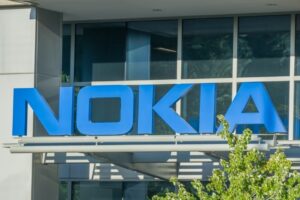
When Siilasmaa assumed leadership, Nokia was losing its foothold in the mobile market to competitors like Apple and Samsung. The company was heavily reliant on its hardware, with little presence in the burgeoning smartphone software ecosystem. Nokia’s Symbian operating system was unable to compete with iOS and Android, leading to declining sales and market share. The company needed a dramatic strategic pivot to survive.
Adaptive Leadership in Action
Siilasmaa’s first step was acknowledging the harsh reality facing Nokia. Unlike traditional leadership approaches that might double down on existing strategies, Siilasmaa adopted an adaptive leadership mindset. He initiated a comprehensive review of Nokia’s strategy, operations, and product offerings, fostering an environment where difficult questions and innovative ideas were encouraged.
Cultural Transformation
Understanding that Nokia’s transformation required more than just strategic shifts, Siilasmaa focused on changing the company culture. He encouraged open communication, transparency, and a willingness to experiment and learn from failure. This cultural shift was crucial in mobilizing the organization towards a shared vision of change.
Strategic Pivot
In one of his most critical decisions, Siilasmaa led Nokia through a significant pivot from hardware to software and services. Recognizing that competing in the smartphone market was no longer viable, he steered Nokia towards the telecommunications infrastructure and network equipment sector. This involved making tough decisions, including the sale of its mobile phone business to Microsoft in 2013.
Investing in the Future
Under Siilasmaa’s leadership, Nokia acquired Alcatel-Lucent in 2016, a move that significantly expanded its footprint in the telecommunications equipment industry. He also placed a strong emphasis on research and development, particularly in emerging areas like 5G technology and the Internet of Things (IoT), positioning Nokia as a leader in these sectors.
Outcomes
The transformation of Nokia under Risto Siilasmaa is a testament to the power of adaptive leadership. By 2020, Nokia had successfully repositioned itself as a major player in the telecommunications equipment industry, with a strong focus on innovation and future technologies. While the journey involved difficult decisions and significant shifts in strategy and culture, Nokia emerged as a resilient, adaptable organization ready to face the challenges of the digital age.
The Nokia transformation highlights several key insights into adaptive leadership:
• Facing Reality: Effective leaders confront the most brutal facts of their current reality while maintaining faith that they will prevail in the end.
• Cultural Shift: Organizational transformation requires cultural changes that foster openness, learning, and resilience.
• Strategic Adaptability: Leaders must be willing to make bold strategic pivots when faced with existential threats, even if it means venturing into uncharted territory.
• Empowering Innovation: Encouraging experimentation and investing in future technologies are critical for staying relevant in rapidly changing industries.
Risto Siilasmaa’s tenure at Nokia exemplifies how adaptive leadership can guide companies through tumultuous times, transforming challenges into opportunities for growth and reinvention. Through a combination of strategic insight, cultural transformation, and a commitment to innovation, Siilasmaa not only saved Nokia from near-oblivion but also laid the foundation for its future success.

Exercise 10.1 The Adaptive Challenge Simulator
1. Scenario Description: Divide participants into two equal groups, group 1 and group 2. Each group reads their corresponding scenario below.
2. Understanding the Adaptive Challenge: Each group discusses what makes their situation an adaptive challenge rather than a technical problem.
3. Brainstorming Session: Each group brainstorms potential solutions across four different categories outlined below and writes down their solutions. Work to generate a solution for each category.
• Innovation & Product Development
– Launch a beta testing program for new products with real-time user feedback.
– Develop a cross-industry product collaboration to merge technologies or services.
– Implement a hackathon or innovation challenge focusing on emerging technologies.
• Market Expansion & Partnerships
– Create a co-branding initiative with companies in complementary sectors.
– Enter new geographic markets through strategic local partnerships.
– Leverage digital platforms for global e-commerce expansion.
• Customer Engagement & Feedback
– Introduce a loyalty app that collects feedback in exchange for rewards.
– Host virtual focus groups or community forums for product development input.
– Launch a “Customer Day” event inviting customers to share experiences and ideas.
• Organizational Culture & Change
– Start a leadership development program emphasizing adaptive leadership skills.
– Establish “Change Agents” across departments to foster a culture of continuous improvement.
– Implement flexible work arrangements to encourage innovation and adaptability.
4. Crafting an Adaptive Leadership Strategy: Based on the brainstormed solutions, each group briefly outlines an adaptive leadership strategy with the framework below. Where possible identify specific actions or initiatives.
– Engage: Who needs to be involved or buy into the change?
– Experiment: What small-scale tests can you run to learn more?
– Evolve: How will you implement learnings and scale successful experiments?
5. Group Share and Debrief: Each group shares their identified challenge, brainstormed solutions across categories, and their strategic framework for applying adaptive leadership. Close with a discussion highlighting specific insights or takeaways from this exercise.
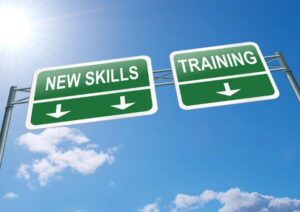
Course Manual 11: Learning and Development
Developing a culture of growth, learning and development within a team or organization is a leadership strategy that prioritizes continuous improvement, knowledge acquisition, and skill development as foundational to success. This approach recognizes that the rapid pace of change in today’s world requires organizations to be adaptable, with employees who are prepared to grow, innovate, and tackle new challenges. Such a culture is built on the premise that learning is an ongoing process, not confined to formal training sessions or the early stages of one’s career.
A culture of growth and learning manifests in several key ways. Leaders foster an environment where asking questions, seeking knowledge, and challenging the status quo are valued and rewarded. This encourages employees to think critically and creatively about how they can contribute to the organization’s goals. Organizations commit resources to employee development, including access to courses, seminars, mentorship programs, and opportunities for cross-functional learning. This investment demonstrates a tangible commitment to each employee’s growth.
Rather than stigmatizing mistakes, a learning culture views them as essential to the innovation process. Failures are analyzed for insights, and lessons learned are shared openly to prevent future errors and foster resilience. Regular, constructive feedback becomes a cornerstone of daily operations. Employees know where they stand, understand how they can improve, and see how their growth aligns with organizational objectives.
Developing a learning culture demands a deliberate and sustained effort from leaders at all levels. It requires balancing the immediate operational needs of the organization with long-term investment in employee development. When successfully implemented, such a culture not only enhances organizational performance and innovation but also contributes to a more fulfilled, engaged, and skilled workforce. Leaders play a crucial role in modeling learning behaviors, removing barriers to growth, and aligning developmental opportunities with strategic objectives, thereby ensuring that the culture of learning translates into tangible benefits for both individuals and the organization.
Key Contributors Shaping Modern Development
Several scholars and practitioners across various disciplines have significantly contributed to our understanding of growth, learning and development, often championing specific processes or methods that have influenced both organizational and individual development. Notable figures include:
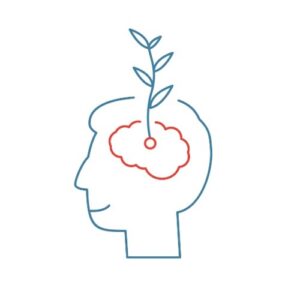
Growth Mindset: Carol Dweck, a psychologist at Stanford University, introduced the concept of “growth mindset” in her research on motivation and personality. Her work distinguishes between a fixed mindset, where individuals believe their abilities are static, and a growth mindset, where individuals believe their abilities can be developed through hard work, good strategies, and input from others. Dweck’s growth mindset theory has profound implications for education, leadership, and personal development, emphasizing that how we perceive our capabilities can significantly impact our learning and growth.
The Learning Organization: Peter Senge, a senior lecturer at the MIT Sloan School of Management, is best known for his work on learning organizations. In his seminal book “The Fifth Discipline,” Senge outlines the concept of the learning organization, which is an organization that continuously transforms itself by facilitating the learning of its members and continuously transforming itself. Senge’s five disciplines—systems thinking, personal mastery, mental models, shared vision, and team learning—provide a framework for organizations seeking to foster a culture of continuous learning and improvement.
Experiential Learning: David A. Kolb, an educational theorist, developed the Experiential Learning Theory (ELT), which emphasizes the central role that experience plays in the learning process. According to Kolb, effective learning is seen when a person progresses through a cycle of four stages: concrete experience, reflective observation, abstract conceptualization, and active experimentation. Kolb’s Learning Style Inventory (LSI) also helps individuals understand their unique learning styles within this cycle, offering insights into how they can optimize their learning processes.
Organizational Culture and Leadership: Edgar Schein’s work, in the field of organizational development (which we discussed in detail in session 7), is influential particularly in understanding organizational culture and its impact on change and learning. Schein’s model of organizational culture emphasizes the importance of leadership in shaping and changing organizational culture, outlining how leaders can foster cultures that promote learning and adaptability.

Reflective Practice: Donald Schön was an influential thinker in developing the concept of reflective practice. Schön’s work focuses on the importance of reflection in learning, particularly in professional settings. He argued that professionals learn most effectively through the process of reflecting on their experiences, enabling them to develop a deeper understanding of their practice and continuously improve their skills.
These scholars, their research and theories have laid foundational frameworks that continue to influence how learning and growth are understood and facilitated within various domains, including education, psychology, business, and leadership development. Each of these scholars has introduced significant ideas that have shaped practices and methodologies aimed at enhancing the capacity for learning and adaptation in both individuals and organizations. Their contributions are widely recognized and utilized in efforts to cultivate environments that prioritize continuous development, reflective practice, and the harnessing of a growth mindset.
Revolutionizing Growth, Learning and Development in the 21st Century
The field of growth, learning and development has undergone significant transformation in the 21st century, driven by technological advancements, shifts in the global economy, and evolving workforce dynamics. These changes have prompted a reevaluation of traditional learning models and sparked innovation in how individuals and organizations approach development. Key trends and evolutions in the field include:

1. Digital and Blended Learning: The rise of digital technologies has revolutionized the accessibility and delivery of education and professional development. Online platforms, virtual classrooms, and e-learning tools have made it possible for learners to access a wealth of knowledge and training opportunities from anywhere in the world. Blended learning models, which combine online digital media with traditional classroom methods, have become increasingly popular for their flexibility and effectiveness.
2. Microlearning and Just-in-Time Learning: There’s a growing emphasis on microlearning—short, focused learning units designed for quick consumption. This approach caters to the modern learner’s shorter attention spans and busy schedules, allowing for learning to be seamlessly integrated into daily work. Just-in-time learning resources, such as short tutorial videos or quick-reference guides, provide immediate support and information, enabling learners to apply knowledge precisely when needed.
3. Focus on Soft Skills: As automation and artificial intelligence take over more routine tasks, there’s an increased focus on developing soft skills such as emotional intelligence, critical thinking, creativity, and adaptability. These skills are seen as essential for navigating the complexities of the modern workplace and fostering innovation and leadership.
4. Personalized and Adaptive Learning: Technological advancements have also enabled more personalized learning experiences, where content and pace are tailored to the individual’s needs, preferences, and performance. Adaptive learning systems use algorithms to adjust the learning path based on the learner’s interactions, ensuring a more effective and efficient learning process.
5. Lifelong and Life-wide Learning: There’s a growing recognition of the importance of lifelong learning—the ongoing, voluntary, and self-motivated pursuit of knowledge for personal or professional reasons. This concept has expanded to include life-wide learning, which recognizes that learning occurs in various contexts and experiences beyond formal education or training programs. Individuals are encouraged to cultivate a mindset of continuous growth and exploration throughout their lives and across all areas of their lives.

6. Social and Collaborative Learning: Learning is increasingly seen as a social activity, with collaboration among peers being a key component of the learning process. Social learning platforms, online forums, and collaborative projects leverage the collective knowledge and experiences of a group, enhancing learning outcomes and fostering a sense of community.
7. Corporate Universities and In-House Development: Organizations are investing more in their in-house training and development programs, creating corporate universities or comprehensive learning ecosystems tailored to their specific needs and strategic goals. This trend reflects a commitment to employee growth, talent retention, and building a competitive workforce equipped to meet future challenges.
8. Integration of Learning into Work: The concept of learning in the flow of work emphasizes integrating development opportunities into the daily activities of employees. This approach leverages natural work processes and projects as learning experiences, blurring the lines between working and learning.
As the field continues to evolve, it’s clear that flexibility, adaptability, and a focus on meeting the individual needs of learners are paramount. These trends reflect a broader shift towards more dynamic, integrated, and personalized approaches to development, preparing individuals and organizations to thrive in an ever-changing world.
Strategic Steps for Effective Learning Initiatives
Implementing a growth, learning and development initiative that is embraced by a team requires a leader to be thoughtful, inclusive, and adaptive. It’s about creating an environment that not only fosters but celebrates continuous development as a key component of the team’s success. Strategic planning can empower leaders to ensure the success and positive reception of their initiatives.
Understand Your Team’s Needs and Aspirations
Conduct Surveys and Discussions: Start with understanding the unique needs, career aspirations, and learning preferences of your team members through surveys, one-on-one discussions, and team meetings. This insight will help tailor learning initiatives to be more relevant and engaging.
Align Learning with Team and Organizational Goals
Set Clear Objectives: Ensure that growth, learning and development activities are clearly aligned with both the team’s objectives and the broader organizational goals. This alignment demonstrates the value of learning activities in contributing to shared success.
Foster a Culture of Psychological Safety
Create a Safe Environment: Cultivate a team culture where it’s safe to ask questions, admit mistakes, and share ideas without fear of criticism. Psychological safety is crucial for encouraging experimentation and learning from failures.
Offer Diverse and Flexible Learning Opportunities
Provide Options: Recognize that learning styles vary among individuals. Offer a variety of learning opportunities, including workshops, online courses, mentoring, cross-functional projects, and more, to accommodate different preferences. Incorporating flexibility in how and when learning can take place (e.g., self-paced online modules) will increase accessibility and participation.
Lead by Example
Model Continuous Learning: Demonstrate your own commitment to growth, learning and development by sharing your learning experiences, seeking feedback, and showing how continuous development has impacted your leadership. Leaders who are learners inspire their teams to embrace growth.
Make Learning Social and Collaborative
Leverage Peer Learning: Encourage knowledge sharing sessions, learning circles, and team-based learning projects. Peer learning can make the process more engaging and reinforces the practical application of new skills or knowledge.
Recognize and Reward Learning Achievements
Celebrate Progress: Acknowledge and celebrate both the efforts and achievements in growth, learning and development. Recognition can be formal, like awards or certifications, or informal, such as shout-outs in team meetings. This not only motivates learners but also highlights the importance placed on growth.

Integrate Learning into Work Processes
Apply Learning in Real-Time: Design opportunities for team members to apply what they learn directly to their work. Real-world application enhances learning retention and provides immediate value to the team.
Provide Support and Resources
Ensure Accessibility: Make sure your team has access to the necessary resources, time, and support to engage with learning activities. This might mean allocating specific hours for learning or providing subscriptions to online learning platforms.
Continuously Evaluate and Adapt
Seek Feedback and Adjust: Regularly collect feedback on the learning initiatives to understand what’s working and what isn’t. Be prepared to adapt your approach based on this feedback to better meet the needs of your team.
Implementing the right kind of l strategy requires a nuanced understanding of your team’s dynamics, a clear connection to shared goals, and a genuine commitment to fostering an environment where continuous development is valued and supported. By taking these steps, a leader can create a learning ecosystem that not only meets the needs of their team but also drives innovation and success.

Exercise 11.1 Strategic Blueprint: Elevating Your Team’s Learning Journey
(Note: If your organization has initiated learning strategies that apply to your team, please list those)
Rewards and Realities
Fostering a culture of growth, learning and development within an organization holds the promise of unlocking unprecedented innovation, engagement, and leadership development. This strategic endeavor can transform an organization, making it more adaptable to the ever-evolving market landscape and technological advancements. By committing to continuous development, organizations not only sharpen their competitive edge but also build a more fulfilled and loyal workforce. However, the journey to embed a culture rich in growth, learning and development is multifaceted, presenting both remarkable benefits and considerable challenges. It requires a delicate balance, careful planning, and an unwavering commitment from leaders at all levels to navigate the complexities involved.

The benefits of fostering a culture that promotes growth, learning and development are significant:
• Increased Innovation and Adaptability: With continuous learning, organizations can more easily adapt to market changes and technological advancements, maintaining or gaining a competitive edge.
• Enhanced Employee Engagement and Retention: Employees who feel invested in and see clear paths for personal and growth are more likely to be engaged with their work and loyal to their organization.
• Cultivation of Leadership at All Levels: By encouraging growth and learning, organizations can develop leadership skills across all levels, creating a robust pipeline of future leaders.
However, cultivating such a culture is not without its challenges:
• Resource Intensive: Significant time, money, and effort are required to create and maintain learning opportunities. Not all organizations may be willing or able to make such investments.
• Resistance to Change: Ingrained habits and the comfort of familiar routines can lead to resistance among some employees and managers, particularly if they feel threatened by the changes or uncertain about their role in a culture that values continuous improvement.
• Overemphasis on Learning for Learning’s Sake: Without clear alignment to organizational goals or practical application, learning initiatives may become disconnected from the organization’s core mission, leading to wasted resources and disillusionment.

Further Enrichment
Beyond the foundational aspects previously discussed, there exists a spectrum of advanced insights and innovative strategies that can significantly enhance the efficacy of learning initiatives. By embracing these expanded perspectives, leaders can unlock new dimensions of growth, fostering an environment where learning transcends traditional boundaries and becomes a catalyst for profound transformation.
• Embracing a Holistic View of Learning: Understanding that learning extends beyond professional development into personal growth can enrich the learning culture. Emphasizing holistic development—incorporating emotional, social, and physical well-being alongside intellectual growth—can enhance overall performance and satisfaction.
• The Role of Technology in Learning: Exploring the role and potential of technology. This includes leveraging digital platforms for collaborative learning, utilizing data analytics to personalize learning experiences, and understanding the impact of emerging technologies such as AI on future learning needs and opportunities.
• Cross-Generational Learning: Addressing the dynamics of a multi-generational workforce, with diverse learning preferences and expectations, is crucial for leadership professionals. Strategies to foster cross-generational mentoring, knowledge sharing, and leveraging the strengths of different age groups can enhance growth, learning and development across the organization.
• Measuring the Impact of Learning: Developing metrics and methods to assess the impact of learning initiatives on individual performance, team productivity, and organizational outcomes is important for demonstrating value and making informed adjustments. This may involve setting clear learning objectives, using performance data, and gathering feedback to evaluate progress.
• Developing a Personal Learning Philosophy: Encouraging teams to develop their personal philosophy towards growth, learning and development can be a powerful exercise. Reflecting on their beliefs about learning, their role as leaders in facilitating growth, and how they can embody these principles in their leadership practices can lead to deeper engagement and commitment to fostering a learning culture.
By addressing these additional areas, leaders can be better equipped to navigate the complexities of promoting learning in today’s dynamic organizational landscapes.

Case Study: Siemens AG – Engineering a Culture of Continuous Learning
Siemens AG, a global powerhouse in electronics and electrical engineering operating across industry, energy, and healthcare sectors, has long been synonymous with innovation and quality. However, the rapid pace of technological advancements and the increasing complexity of global markets posed significant challenges to maintaining this legacy. Recognizing the need to stay ahead in a competitive landscape, Siemens embarked on a transformative journey to foster a culture of continuous growth, learning and development.

The primary challenge for Siemens was adapting to the digital revolution transforming the industry. This required not only upgrading technological capabilities but also cultivating a workforce agile enough to innovate and execute in a rapidly changing environment. Siemens needed to move beyond traditional training methods to develop a learning culture that could drive sustained growth and innovation.
Strategies for Cultivating a Learning Culture
• Leadership Commitment: The initiative began with a strong commitment from Siemens’ leadership to make growth, learning and development a strategic priority. This commitment was communicated clearly throughout the organization, signaling the importance of continuous learning to Siemens’ future success.
• Siemens Learning Campus: Siemens established the Learning Campus, a central hub for growth, learning and development that offered a wide range of programs tailored to diverse needs—from technical skills in digitalization to leadership development. The Learning Campus served as a physical and virtual space where employees could access resources, share knowledge, and collaborate on innovative projects.
• Digital Learning Platforms: To complement traditional learning methods, Siemens invested in digital learning platforms that offered flexible, on-demand learning opportunities. These platforms enabled employees to personalize their learning experiences, access content relevant to their roles and goals, and learn at their own pace.
• Cross-Functional Projects and Rotations: Siemens encouraged employees to engage in cross-functional projects and job rotations. This approach allowed employees to apply their skills in new contexts, gain a broader understanding of the company, and foster a network of collaboration across departments.
• Feedback and Reflection: Continuous feedback and reflection were integral to Siemens’ learning culture. Employees were encouraged to regularly assess their learning progress, seek feedback, and reflect on their experiences to derive insights and identify areas for further growth.
Overall Impact
• Innovation and Adaptability: The emphasis on continuous growth, learning and development fostered an environment of innovation and adaptability. Employees were more willing to experiment, take calculated risks, and embrace new technologies, contributing to Siemens’ position as a leader in digitalization.
• Employee Engagement and Retention: The focus on personal and growth led to higher levels of employee engagement and retention. Siemens’ commitment to developing its workforce was recognized as a key factor in attracting and retaining top talent.
• Leadership Development: The initiative also succeeded in developing a pipeline of future leaders equipped to navigate the complexities of the global market. Through targeted leadership programs and exposure to diverse experiences, Siemens nurtured leaders who embodied the values of continuous learning and innovation.
Siemens AG’s journey to cultivate a culture of continuous growth, learning and development exemplifies how organizations can adapt to the demands of the 21st century. By strategically investing in learning initiatives, embracing digital platforms, and fostering an environment that values innovation and collaboration, Siemens not only enhanced its competitive edge but also ensured its legacy of innovation and quality for future generations, underscoring the profound impact that a commitment to growth, learning and development can have on an organization’s ability to innovate, adapt, and thrive in an ever-changing landscape.

Exercise 11.2 The Learning Exchange
• The objective of the initiative.
• Key actions taken to implement the strategy.
• The impact on the team or organization, including any measurable outcomes.
• Lessons learned and insights gained from the process.
• Common threads or patterns identified across the shared experiences.
• The positive impacts or specific challenges of the initiatives.
• Any new ideas, approaches or insights gained from learning about other’s experiences.

Course Manual 12: Personal Development
Personal growth stands as a cornerstone, shaping leaders who are not only effective in their roles but also resilient, empathetic, and visionary. A comprehensive approach to leadership development goes beyond the acquisition of skills and dives deeper into self-awareness, emotional intelligence, resilience, and the cultivation of a growth mindset, fostering leaders who are not only adept at navigating the complexities of the business world but also capable of inspiring and empowering those around them to achieve their fullest potential. It is through this foundational understanding that leaders can embark on a path of targeted growth and transformation.
Integral to this journey is the deployment of specific tools and methodologies designed to foster self-reflection and growth. These resources are vital in enabling leaders to actively pursue their leadership development goals, enhancing both their personal and professional lives.
At its core, prioritizing personal growth in leadership development weaves a vibrant mosaic of opportunities, empowering leaders to elevate their effectiveness, fortify their resilience, and magnify their impact. Through immersive engagement in this multifaceted journey, leaders emerge equipped to carve pathways to enduring success.
Summary of Core Components
Leadership extends beyond operational expertise, deeply rooted in the continuous cultivation of personal qualities and competencies. We review the ten core components of personal growth in leadership, each interconnected, reinforcing and building upon each other. Together, they form a comprehensive framework for addressing the internal qualities needed for personal growth as well as the external competencies required for leading others effectively. Below is an overview, however, certain components will be learned in more detail and with greater application in future workshops, as part of the total curriculum.
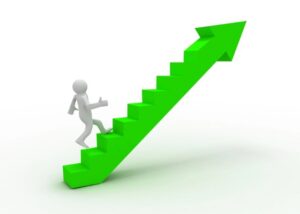
1. Self-awareness: The bedrock of personal growth, self-awareness illuminates a leader’s journey, revealing strengths to be harnessed and areas ripe for development. It is the lens through which leaders can introspectively navigate their paths, ensuring alignment between their actions and their core values.
2. Emotional Intelligence (EQ): The cornerstone of relational leadership, EQ equips leaders with the finesse to manage their own emotions while empathetically engaging with others. This emotional acumen is indispensable for navigating the intricate tapestry of human dynamics within any organization.
3. Resilience: Resilience stands as a beacon of strength, enabling leaders to weather storms and emerge steadfast. This resilience not only sustains the leader’s drive but also inspires perseverance within their teams.
4. Continuous Learning: The hallmark of a visionary leader is an insatiable curiosity and a commitment to lifelong learning. This pursuit of knowledge and wisdom ensures leaders remain at the forefront of innovation and adaptation.
5. Vision and Purpose: The clarity of vision and the conviction of purpose are what distinguish leaders who merely manage from those who inspire. Articulating a compelling vision rallies individuals towards a shared goal, embedding a sense of purpose in their collective efforts.
6. Effective Communication: Mastery in communication transcends the conveyance of ideas; it is about forging connections, building trust, and fostering an environment where every voice is valued. Leaders adept in communication can navigate the complexities of human interactions with grace and impact.

7. Relationship Building: At its essence, leadership is about relationships. Cultivating a foundation of trust, respect, and support is critical for nurturing collaborative teams and fostering a culture of unity and achievement.
8. Decision-Making: The essence of leadership is the courage to make decisions amidst ambiguity. Balancing intuition with analysis, leaders must navigate the delicate balance of risk and reward, shaping the destiny of their organizations with each choice.
9. Adaptability: In a world characterized by flux, adaptability is the leader’s compass, guiding them through uncharted territories and emerging paradigms. It is the agility to pivot, to evolve, that ensures leaders and their organizations thrive amidst change.
10. Ethical Integrity: Leadership, in its truest sense, is a reflection of one’s ethical compass. Integrity is the non-negotiable currency of trust, compelling leaders to uphold the highest standards of conduct, serving as exemplars of principled action.
By focusing on these personal growth areas, leaders can cultivate a well-rounded set of skills and attributes that enable them to lead with confidence, inspire their teams, and achieve organizational objectives. Remember that the pursuit of personal growth is an enduring voyage, one that demands persistence, curiosity, and the courage to confront one’s own limitations. Herein lies the path to not just becoming a better leader but also a beacon of inspiration and positive change.
Essential Skills for Impactful Leadership
Soft skills are critical for effective leadership, influencing how leaders communicate, motivate, and influence their teams and organizations. Regular assessment and improvement of these skills can significantly enhance a leader’s effectiveness. Again, a deeper exploration and application of these skills comes in future workshops, however, it is important to review and assess them when laying the foundation for personal growth.
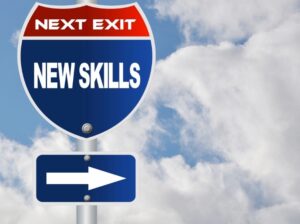
• Emotional Intelligence: The ability to understand and manage your own emotions, as well as recognize and influence the emotions of others, is paramount. EQ encompasses self-awareness, self-regulation, motivation, empathy, and social skills.
• Communication: Effective leaders must excel in both verbal and non-verbal communication. This includes listening actively, conveying messages clearly and concisely, and being able to read and respond to the body language of others.
• Adaptability: The skill to adjust quickly to new challenges, pivot strategies, and remain flexible in the face of change is crucial in today’s fast-paced environment.
• Problem-Solving and Critical Thinking: Leaders need to assess situations critically, think creatively, and solve problems effectively. This involves being able to analyze information, identify solutions, and make sound decisions.
• Conflict Resolution: The ability to navigate disagreements, mediate disputes, and arrive at mutually beneficial resolutions is important for maintaining a healthy team dynamic.

• Teamwork and Collaboration: Fostering a collaborative environment where team members feel valued and motivated to contribute to shared goals is key. Leaders should work on building trust, encouraging diverse viewpoints, and leveraging the strengths of their team.
• Empathy: Understanding and sharing the feelings of others is vital for creating connections and building strong relationships within the team. Empathy helps leaders to motivate and support their team members effectively.
• Resilience: Leaders often face setbacks and challenges. The ability to bounce back from failure, maintain a positive outlook, and learn from experiences is crucial for long-term success.
• Time Management: Effective leaders manage their time efficiently, prioritizing tasks, delegating appropriately, and ensuring that both they and their teams are focusing on high-impact activities.
• Influence and Persuasion: The ability to inspire, persuade, and motivate others to take action or embrace change is a powerful skill for leaders. This requires a deep understanding of human behavior and effective communication techniques.
Regular assessment of these soft skills is important, being sure to seek feedback from peers, mentors, and team members to identify areas for improvement. Developing an action plan that includes specific goals, learning resources, and practical application opportunities will also help leaders enhance these skills. Regular reflection on progress and adjustments to the development plan as needed will ensure continuous growth in these critical areas.
Core Components vs. Soft Skills
The distinction between the soft skills of leadership and the core components of personal growth lies in their scope and application. While there’s significant overlap, each category serves a unique function in the development and effectiveness of a leader.
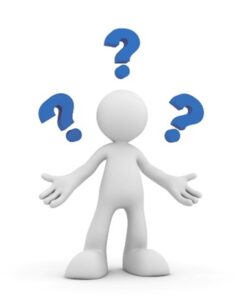
Soft Skills of Leadership
Soft skills are the behavioral and interpersonal abilities that people need to engage with others in a productive and peaceful manner. In the context of leadership, soft skills encompass abilities related to communication, empathy, emotional intelligence, teamwork, and adaptability, among others. These skills facilitate effective collaboration, conflict resolution, motivation, and the creation of a positive work environment. Soft skills are crucial for managing team dynamics, influencing organizational culture, and navigating the complex web of relationships within and outside an organization.
Core Components of Personal Growth for Leaders
The core components of personal growth for leaders, while inclusive of certain soft skills, represent a broader framework for leadership development. These components are comprehensive qualities and competencies that a leader cultivates to enhance their overall effectiveness, resilience, and vision. This includes:
Intrinsic qualities such as self-awareness, ethical integrity, and resilience, form the bedrock of a leader’s character and decision-making.
Interpersonal skills, a subset of which can be considered soft skills, such as effective communication, relationship building, and emotional intelligence, are essential for interacting with others.
Strategic abilities like vision and purpose setting, adaptability, and continuous learning, which are crucial for navigating organizational challenges, steering change, and fostering innovation.
The core components encompass both the internal (personal qualities and mindsets) and external (skills and behaviors) aspects of leadership. They provide a holistic view of what it takes to lead effectively, including but not limited to the interpersonal interactions highlighted by soft skills.
Key Differences

• Scope: Soft skills primarily focus on the interpersonal and behavioral aspects of leadership, while the core components cover a broader spectrum, including personal qualities, strategic thinking, and ethical considerations.
• Application: Soft skills are applied in day-to-day interactions and in managing team dynamics. The core components, however, extend to the overall approach to leadership, including personal development, strategic direction, and organizational impact.
• Development: While both sets can be developed and refined over time, soft skills often involve improving how one relates to and communicates with others, whereas the core components involve a deeper level of personal and professional growth, encompassing a leader’s values, resilience, and strategic vision.
In summary, while soft skills are a crucial part of effective leadership, they represent only a portion of the broader range of qualities and competencies encapsulated in the core components of personal growth for leaders. Together, these elements contribute to a leader’s ability to inspire, influence, and achieve results.

Exercise 12.1 Strategic Blueprint: Elevating Your Team’s Learning Journey
Strategies for Personal Growth
In the fast-paced and demanding world of leadership, finding time for personal growth can seem daunting. However, dedicating just minutes a day to strategic activities can significantly enhance a leader’s effectiveness and well-being. Below we review some concrete strategies that busy leaders can implement to foster personal growth amidst their hectic schedules.
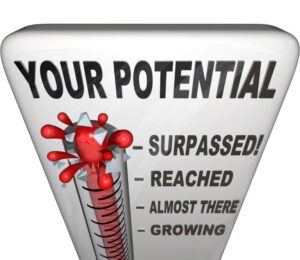
• Reflective Journaling: Spend a few minutes at the end of each day reflecting on and journaling about your experiences. Focus on what went well, what challenges you faced, how you responded, and what you learned. This practice can increase self-awareness and help identify areas for growth.
• Targeted Reading: Allocate time each day to read articles, book chapters, or listen to audiobooks or podcasts on leadership, management, or personal development topics. Choose materials that address your specific growth areas or interests to maximize the benefit of this time.
• Mindfulness and Meditation: Incorporate time daily for mindfulness or meditation to improve focus, reduce stress, and enhance emotional intelligence. There are also numerous apps and online resources available to guide you through quick meditation or mindfulness exercises.
• Skill Microlearning: Dedicate weekly or monthly time to microlearning—a form of learning that delivers content in small, specific bursts. Many online platforms offer short courses or videos on a wide range of skills relevant to leadership and professional development.
• Feedback Solicitation: Regularly reach out to a colleague, mentor, or team member to ask for specific feedback on a recent decision, project, or meeting you led. Be specific in your request to make it easier for them to provide useful feedback. Reflect on this feedback and identify action steps for improvement.
• Goal Setting and Review: Start your week with dedicated time for goal setting. Identify three personal growth goals you want to focus on for the week. Break these down into daily actions that can be completed within your schedule. At the end of the week, review your progress and adjust your goals for the next week accordingly.
• Network Expansion: Carve out time to regularly connect with someone outside your immediate circle. This could be a professional in your industry you admire, a leader in a different field, or someone with a skill you want to develop. Use this time for a quick coffee chat, a virtual meet-up, or even a brief email exchange to gain new insights and perspectives.
• Physical Exercise: Incorporate a quick 30-minute workout into your daily routine. Physical exercise not only benefits your health but also improves mental clarity and emotional resilience. Consider activities that can also serve as thinking time, such as walking, running, or cycling.
• Practice Gratitude: Spend a few minutes each morning writing down three things you are grateful for. This practice can shift your mindset, reduce stress, and increase positivity, impacting your leadership presence and effectiveness.
• Focused Breathing: Take short breaks throughout your day to practice focused breathing exercises on your own or through specific meditation or relaxation. This can center your thoughts, reduce stress, and improve decision-making and presence.
By integrating these strategies into daily routines, leaders can make personal growth a sustainable part of their busy lives. Each of these activities not only contributes to individual development but also enhances overall leadership capacity, making the investment of just minutes a day both feasible and profoundly impactful.

Case Study: Visionaries of Growth: How Personal Development Shapes Leadership Excellence
In the dynamic realm of business, the principles of personal growth and leadership excellence are increasingly intertwined. Four visionary leaders harnessed the power of personal growth to steer their organizations towards unprecedented success. Through their unique approaches, they demonstrate how nurturing personal qualities can profoundly impact leadership effectiveness and organizational culture.
Marc Benioff – Chairman & CEO of Salesforce
Marc Benioff’s leadership at Salesforce is marked by a holistic approach that values mindfulness, empathy, and continuous personal growth. Under his stewardship, Salesforce has not only emerged as a cloud computing giant but also as a beacon of progressive corporate culture. Initiatives like mindfulness zones and comprehensive wellness programs underscore Benioff’s belief that employee well-being is integral to innovation and business success. His vision for a value-driven organization has cultivated an environment where personal development and professional excellence flourish in tandem.

• Employing Mindfulness: Marc Benioff has been a strong proponent of mindfulness in the workplace, believing in its power to enhance focus, empathy, and decision-making. One specific practice he incorporated for his personal growth and introduced at Salesforce is the concept of “mindfulness zones.” These dedicated spaces within Salesforce offices encourage employees to take breaks, meditate, and reflect, fostering a culture of mindfulness that Benioff credits with improving innovation and productivity.
Arianna Huffington – Co-founder of The Huffington Post, Founder of Thrive Global
After experiencing the adverse effects of stress and sleep deprivation, Arianna Huffington shifted her focus towards well-being and resilience, integrating these elements into her leadership philosophy. Through Thrive Global, she advocates for a corporate culture that prioritizes health and continuous learning, influencing leaders and organizations worldwide. Huffington’s journey underscores the critical role of personal well-being in sustaining effective leadership and organizational vitality.
• Championing Well-being: Arianna Huffington made sleep a cornerstone of her personal growth strategy. She championed the cause of well-being through better sleep habits, both in her personal life and through Thrive Global’s initiatives. Huffington has openly shared how prioritizing sleep has transformed her productivity and leadership effectiveness, advocating for a shift in corporate culture to recognize sleep as a critical component of success.
Indra Nooyi – Former CEO of PepsiCo
Indra Nooyi’s tenure at PepsiCo was distinguished by her visionary thinking and steadfast commitment to ethical integrity, embodied in her pioneering “Performance with Purpose” philosophy. Nooyi championed a forward-looking approach that redefined corporate success to include not just financial achievements but also societal and environmental stewardship. She drove PepsiCo toward producing healthier products, reducing the company’s environmental footprint, and actively engaging in community empowerment. This strategic direction, deeply rooted in Nooyi’s personal values, underscored the critical importance of aligning corporate objectives with broader societal needs. Her leadership exemplified how integrating visionary thinking with a strong ethical foundation can inspire meaningful innovation and set new standards for social responsibility in the business world.
• Incorporating Reflection: Indra Nooyi incorporated regular deep reflection and strategic thinking into her personal growth. Nooyi has been known to set aside quiet moments during her busy schedule to think about the long-term direction of PepsiCo and to contemplate the broader impact of the company’s actions on society and the environment. This practice of deliberate reflection allowed her to align PepsiCo’s business strategies with her vision of “Performance with Purpose,” ensuring that the company’s growth did not come at the expense of societal welfare. Through this habit of contemplative planning, Nooyi demonstrated the value of mindfulness and foresight in leadership, highlighting how taking the time to reflect can lead to more thoughtful, ethical, and impactful decision-making.
Jack Ma – Co-founder and former Executive Chairman of Alibaba Group
Jack Ma’s leadership journey embodies the essence of resilience, adaptability, and visionary thinking. As the architect of Alibaba, one of the world’s largest e-commerce platforms, Ma’s emphasis on learning from failures and maintaining a positive outlook has been central to his leadership approach. He champions the idea that embracing change, pursuing lifelong learning, and fostering a culture of openness and innovation are key drivers of personal and organizational success. Ma’s story is a testament to how personal growth principles can guide leaders through the challenges of the digital age and beyond.

• Developing Resilience: Jack Ma’s approach to personal growth has been significantly influenced by his attitude towards failure. He has often spoken about his numerous rejections and failures, including being turned down for a job at KFC and being rejected from Harvard 10 times. Ma has embraced these setbacks as learning opportunities, advocating for a culture where failure is not seen as a defeat but as a step towards growth and success. This perspective on learning from failure and maintaining resilience has been a key driver in his journey from a humble beginning to leading a global tech giant.
Common Threads and Impact
Across these diverse leadership narratives, several common themes emerge:
• Holistic Well-being: A shared understanding that leadership effectiveness is deeply connected to personal well-being and mindfulness.
• Empathy and Values-Driven Leadership: The practice of empathy and adherence to core values as central components of a transformative leadership style.
• Continuous Learning and Adaptability: A unanimous emphasis on the importance of lifelong learning and the ability to adapt to change as indispensable qualities for modern leaders.
• Visionary Thinking: The ability to articulate a compelling vision and inspire others to engage in a shared journey towards achieving it.
Together, these leaders illustrate the profound impact of personal growth on leadership. Their commitment to developing themselves and those around them has not only propelled their organizations to new heights but also helped redefine the landscape of what effective leadership looks like in the 21st century.
Your Leadership Development Blueprint
Crafting a personal growth plan is essential for leaders. A well-structured plan not only propels leaders towards their professional objectives but also enhances their personal well-being and resilience. When creating your plan, there are eight key elements that help ensure the plan takes a holistic view while still providing a clear path for action.
• Leadership Self-Assessment: Start with a deep dive into your leadership strengths, weaknesses, and areas for development. Consider leadership-specific assessments or feedback tools to gain insights into your leadership style, emotional intelligence, and impact on others. Reflecting on your leadership experiences, identify key lessons and areas where you wish to improve.
• Vision for Leadership: Articulate a clear vision of the kind of leader you aspire to be. Think about the impact you want to have on your team, organization, and the broader community. This vision should resonate with your core values and serve as a guiding light for your leadership journey.
• Set Leadership Goals: Break your vision into actionable leadership goals using the SMART criteria. These goals might involve enhancing specific leadership competencies, such as strategic thinking, communication, or empathy. Each goal should contribute to your overarching vision and have clear metrics for success.
• Learning and Development Opportunities: Identify resources and opportunities that can help you achieve your leadership goals. This might include leadership development programs, mentorship, executive coaching, or self-study through books and online courses tailored to leadership skills.
• Action Plan for Leadership Development: Develop a detailed action plan that outlines the steps you’ll take to reach your goals. Include timelines, key milestones, and strategies for integrating leadership development activities into your busy schedule. Consider how you will apply new learnings in practical leadership scenarios to reinforce your growth.
• Build a Support Network: Cultivate a support network of mentors, coaches, and peers who understand leadership challenges and can offer guidance, feedback, and encouragement. Engaging in leadership communities or forums can also provide valuable perspectives and support.
• Evaluate Your Leadership Growth: Regularly assess your progress towards your leadership goals. This should involve seeking feedback from your team and peers, reflecting on your leadership practices, and adjusting your plan as necessary. Maintaining a leadership journal can facilitate this reflective practice and highlight insights gained.
• Acknowledge Your Achievements: Recognize and celebrate your leadership growth and achievements. Acknowledging successes, big or small, reinforces your commitment to continuous improvement and motivates you to persist in your leadership development journey.
A personal growth plan is a living document that evolves as you do. It requires commitment, flexibility, and a willingness to step out of your comfort zone. By thoughtfully crafting and diligently following your plan, you set the foundation for continuous improvement, empowering yourself to achieve excellence in both your personal and professional life.

Exercise 12.2 Integrating Personal Growth into Leadership Practice
Project Studies
Project Study (Part 1) – Customer Service
The Head of this Department is to provide a detailed report relating to the Key Principles process that has been implemented within their department, together with all key stakeholders, as a result of conducting this workshop, incorporating process: planning; development; implementation; management; and review. Your process should feature the following 12 parts:
01. Defining Leadership
02. Historical Perspectives
03. Leadership Evolution
04. Style and Approaches
05. Power and Influence
06. Ethics and Values
07. Organizational Culture
08. Strategic Leadership
09. Leader-Follower Dynamics
10. Adaptive Leadership
11. Learning and Development
12. Personal Development
Please include the results of the initial evaluation and assessment.
Project Study (Part 2) – E-Business
The Head of this Department is to provide a detailed report relating to the Key Principles process that has been implemented within their department, together with all key stakeholders, as a result of conducting this workshop, incorporating process: planning; development; implementation; management; and review. Your process should feature the following 12 parts:
01. Defining Leadership
02. Historical Perspectives
03. Leadership Evolution
04. Style and Approaches
05. Power and Influence
06. Ethics and Values
07. Organizational Culture
08. Strategic Leadership
09. Leader-Follower Dynamics
10. Adaptive Leadership
11. Learning and Development
12. Personal Development
Please include the results of the initial evaluation and assessment.
Project Study (Part 3) – Finance
The Head of this Department is to provide a detailed report relating to the Key Principles process that has been implemented within their department, together with all key stakeholders, as a result of conducting this workshop, incorporating process: planning; development; implementation; management; and review. Your process should feature the following 12 parts:
01. Defining Leadership
02. Historical Perspectives
03. Leadership Evolution
04. Style and Approaches
05. Power and Influence
06. Ethics and Values
07. Organizational Culture
08. Strategic Leadership
09. Leader-Follower Dynamics
10. Adaptive Leadership
11. Learning and Development
12. Personal Development
Please include the results of the initial evaluation and assessment.
Project Study (Part 4) – Globalization
The Head of this Department is to provide a detailed report relating to the Key Principles process that has been implemented within their department, together with all key stakeholders, as a result of conducting this workshop, incorporating process: planning; development; implementation; management; and review. Your process should feature the following 12 parts:
01. Defining Leadership
02. Historical Perspectives
03. Leadership Evolution
04. Style and Approaches
05. Power and Influence
06. Ethics and Values
07. Organizational Culture
08. Strategic Leadership
09. Leader-Follower Dynamics
10. Adaptive Leadership
11. Learning and Development
12. Personal Development
Please include the results of the initial evaluation and assessment.
Project Study (Part 5) – Human Resources
The Head of this Department is to provide a detailed report relating to the Key Principles process that has been implemented within their department, together with all key stakeholders, as a result of conducting this workshop, incorporating process: planning; development; implementation; management; and review. Your process should feature the following 12 parts:
01. Defining Leadership
02. Historical Perspectives
03. Leadership Evolution
04. Style and Approaches
05. Power and Influence
06. Ethics and Values
07. Organizational Culture
08. Strategic Leadership
09. Leader-Follower Dynamics
10. Adaptive Leadership
11. Learning and Development
12. Personal Development
Please include the results of the initial evaluation and assessment.
Project Study (Part 6) – Information Technology
The Head of this Department is to provide a detailed report relating to the Key Principles process that has been implemented within their department, together with all key stakeholders, as a result of conducting this workshop, incorporating process: planning; development; implementation; management; and review. Your process should feature the following 12 parts:
01. Defining Leadership
02. Historical Perspectives
03. Leadership Evolution
04. Style and Approaches
05. Power and Influence
06. Ethics and Values
07. Organizational Culture
08. Strategic Leadership
09. Leader-Follower Dynamics
10. Adaptive Leadership
11. Learning and Development
12. Personal Development
Please include the results of the initial evaluation and assessment.
Project Study (Part 7) – Legal
The Head of this Department is to provide a detailed report relating to the Key Principles process that has been implemented within their department, together with all key stakeholders, as a result of conducting this workshop, incorporating process: planning; development; implementation; management; and review. Your process should feature the following 12 parts:
01. Defining Leadership
02. Historical Perspectives
03. Leadership Evolution
04. Style and Approaches
05. Power and Influence
06. Ethics and Values
07. Organizational Culture
08. Strategic Leadership
09. Leader-Follower Dynamics
10. Adaptive Leadership
11. Learning and Development
12. Personal Development
Please include the results of the initial evaluation and assessment.
Project Study (Part 8) – Management
The Head of this Department is to provide a detailed report relating to the Key Principles process that has been implemented within their department, together with all key stakeholders, as a result of conducting this workshop, incorporating process: planning; development; implementation; management; and review. Your process should feature the following 12 parts:
01. Defining Leadership
02. Historical Perspectives
03. Leadership Evolution
04. Style and Approaches
05. Power and Influence
06. Ethics and Values
07. Organizational Culture
08. Strategic Leadership
09. Leader-Follower Dynamics
10. Adaptive Leadership
11. Learning and Development
12. Personal Development
Please include the results of the initial evaluation and assessment.

Project Study (Part 9) – Marketing
The Head of this Department is to provide a detailed report relating to the Key Principles process that has been implemented within their department, together with all key stakeholders, as a result of conducting this workshop, incorporating process: planning; development; implementation; management; and review. Your process should feature the following 12 parts:
01. Defining Leadership
02. Historical Perspectives
03. Leadership Evolution
04. Style and Approaches
05. Power and Influence
06. Ethics and Values
07. Organizational Culture
08. Strategic Leadership
09. Leader-Follower Dynamics
10. Adaptive Leadership
11. Learning and Development
12. Personal Development
Please include the results of the initial evaluation and assessment.

Project Study (Part 10) – Production
The Head of this Department is to provide a detailed report relating to the Key Principles process that has been implemented within their department, together with all key stakeholders, as a result of conducting this workshop, incorporating process: planning; development; implementation; management; and review. Your process should feature the following 12 parts:
01. Defining Leadership
02. Historical Perspectives
03. Leadership Evolution
04. Style and Approaches
05. Power and Influence
06. Ethics and Values
07. Organizational Culture
08. Strategic Leadership
09. Leader-Follower Dynamics
10. Adaptive Leadership
11. Learning and Development
12. Personal Development
Please include the results of the initial evaluation and assessment.

Project Study (Part 11) – Logistics
The Head of this Department is to provide a detailed report relating to the Key Principles process that has been implemented within their department, together with all key stakeholders, as a result of conducting this workshop, incorporating process: planning; development; implementation; management; and review. Your process should feature the following 12 parts:
01. Defining Leadership
02. Historical Perspectives
03. Leadership Evolution
04. Style and Approaches
05. Power and Influence
06. Ethics and Values
07. Organizational Culture
08. Strategic Leadership
09. Leader-Follower Dynamics
10. Adaptive Leadership
11. Learning and Development
12. Personal Development
Please include the results of the initial evaluation and assessment.

Project Study (Part 12) – Education
The Head of this Department is to provide a detailed report relating to the Key Principles process that has been implemented within their department, together with all key stakeholders, as a result of conducting this workshop, incorporating process: planning; development; implementation; management; and review. Your process should feature the following 12 parts:
01. Defining Leadership
02. Historical Perspectives
03. Leadership Evolution
04. Style and Approaches
05. Power and Influence
06. Ethics and Values
07. Organizational Culture
08. Strategic Leadership
09. Leader-Follower Dynamics
10. Adaptive Leadership
11. Learning and Development
12. Personal Development
Please include the results of the initial evaluation and assessment.
Program Benefits
Management
- Improved Morale
- Greater Collaboration
- Enhanced Productivity
- Efficient Communication
- Unified Purpose
- Empowered Teams
- Effective Delegation
- Reduced Conflict
- Optimized Performance
- Supportive Culture
Human Resources
- Talent Retention
- Strategic Hiring
- Employee Satisfaction
- Effective Recruitment
- Talent Development
- Growth Mindset
- Robust Training
- Enhanced Reviews
- Streamlined Onboarding
- Employee Recognition
Operations
- Efficient Processes
- Streamlined Operations
- Enhanced Productivity
- Optimal Resourcing
- Improved Logistics
- Improved Accountability
- Effective Planning
- Increased Accountability
- Improved Workflow
- Increased Engagement
Client Telephone Conference (CTC)
If you have any questions or if you would like to arrange a Client Telephone Conference (CTC) to discuss this particular Unique Consulting Service Proposition (UCSP) in more detail, please CLICK HERE.







